




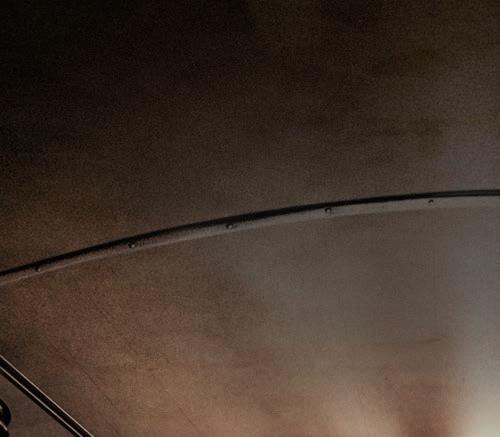


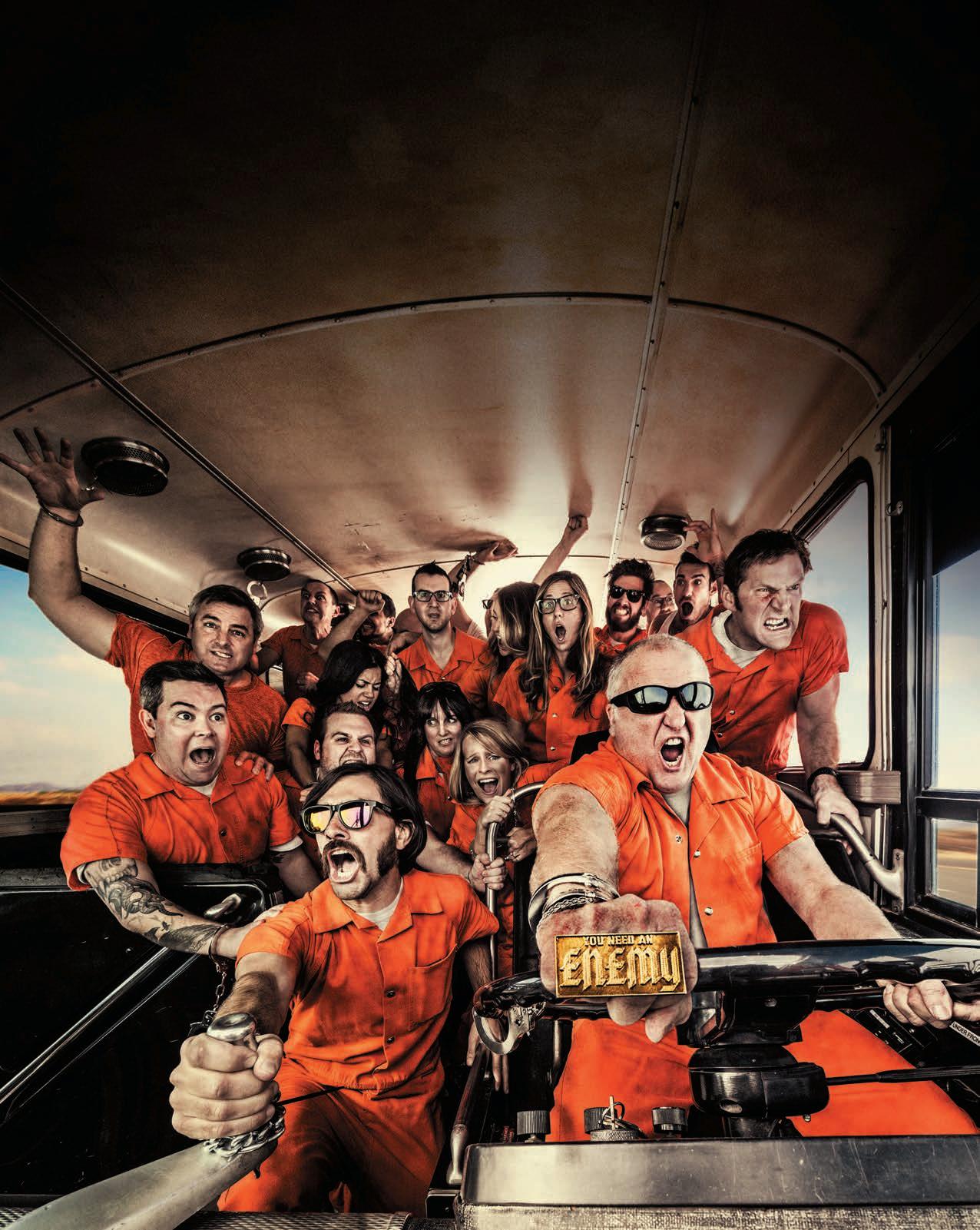



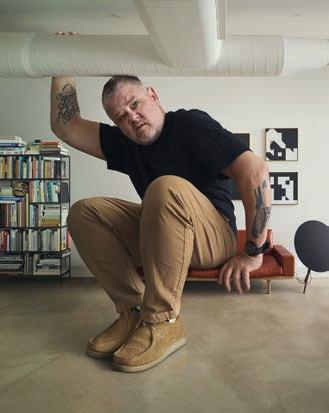

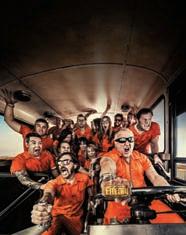
‘But’ is an interesting word, don’t you think? A word that enables limitless possibilities and unending potential.
I shouldn’t, but…
You’re right, but…
We can’t, but…
‘But’ allows for change, and in advertising – as in life, generally –the only thing we can usually depend upon is that what we take for granted today won’t necessarily be the same tomorrow. Whether that’s trends, inspirations, job descriptions, technologies, public mores or client needs, to paraphrase Benjamin Franklin, change is as inevitable as death and taxes.
But… some things don’t change. Some things are so enduring that they refuse to alter. A trait which each of the people featured across the next 70-odd pages of this magazine have in common is one which both sets them apart and binds them together; their ongoing desire for creative di erence. Whichever field that’s in, and whatever career stage they’re at, the people and companies profiled in this magazine strive for the distinctive, the singular, the extraordinary… and that’s something that won’t change.
This particular trait is why each of these people won gold at last year’s shots Awards Asia Pacific, and why a cohort of their peers recognised the work they did as the best in the region. So, whether it’s excellence in editing,


perfection in production or distinction in directing, our contributing editor, Tim Cumming, finds out what makes our winners tick.
You can also find out what makes Thailand’s comedic advertising tick at this year’s ADFEST, as BBDO Bangkok’s CCO Thasorn Boonyanate, and Founder and Director of Factory 01 Wuthisak Anarnporn discuss why comedy is Thailand’s secret weapon in their panel The Surreal World, which is chaired by shots’ very own comedy king Jamie Madge, on Friday 21st March at 16:50 in the Conference Hall.
So, all that remains for us to say is a huge congratulations to each of the 2024 shots Awards winners, a full list of which can be found starting on page 23, and good luck to all of 2025’s entrants. We look forward to speaking to some of you on next year’s pages.
Danny Edwards & Jamie Madge Co-Editors
shots Magazine
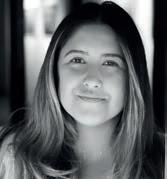
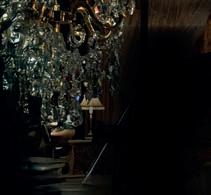
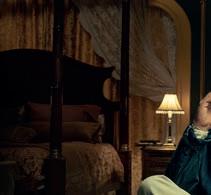


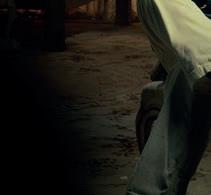
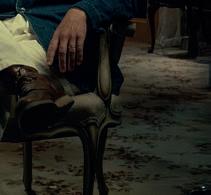

shots Cannes Party 2025
19/06/25 Register for updates about shots annual beach party.
shots Awards APAC 2025 Subscribe to the daily newsletter for updates on all the latest creative news and views from across the industry.
The 2025 awards are now open for entries. To find out more, register your interest here.
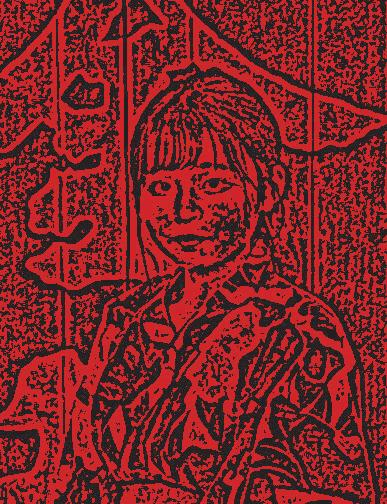
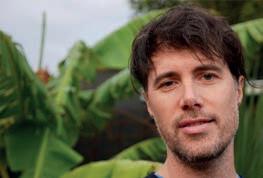

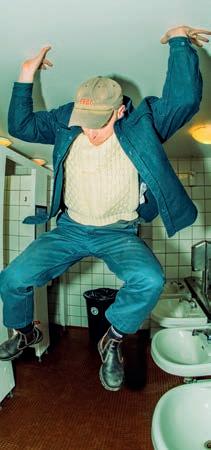

06 FLYING HIGH FINCH’s Nick Simkins on challenges and opportunities.
10 THE PSYCHOLOGY OF SOUND
Tone Aston of Rumble puts sound on the psychologist’s sofa.
14 RAISING THE ROOF New Director of the Year John Stewart on rising up.
18 THINKING BIG Micah Walker’s big ideas.
23 2024 APAC AWARDS
All the winners from the 2024 shots Awards Asia Pacific.
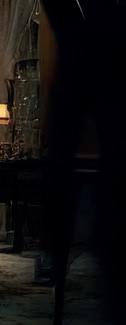



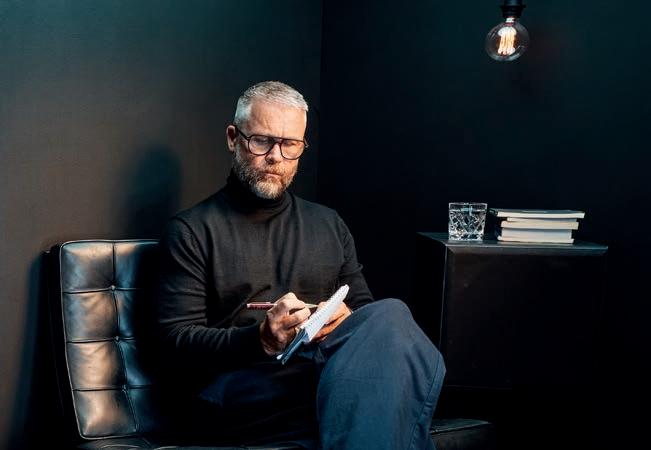


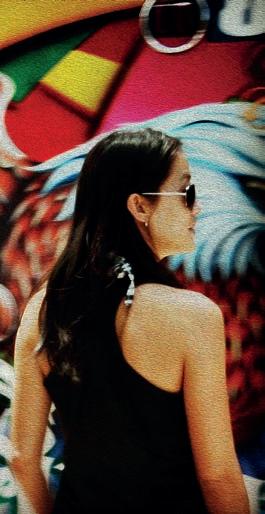
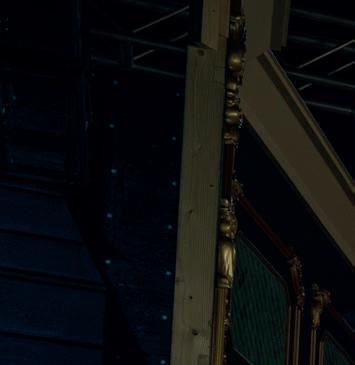
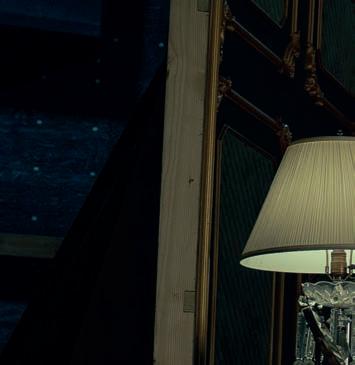
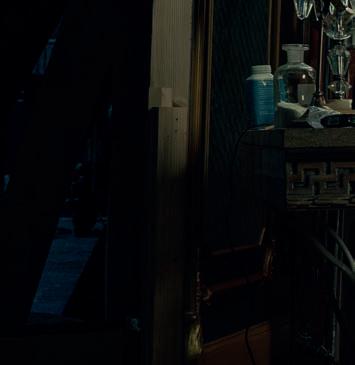
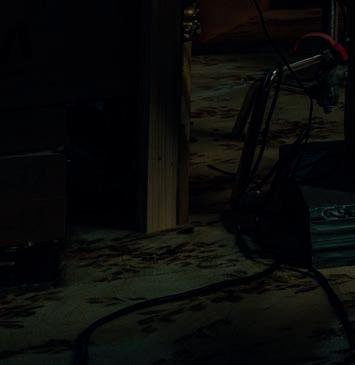
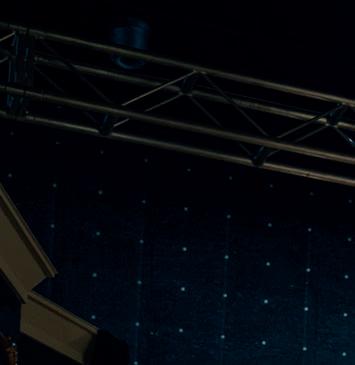
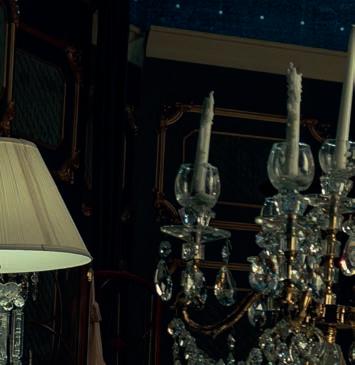
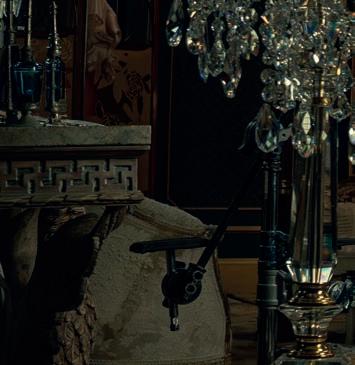
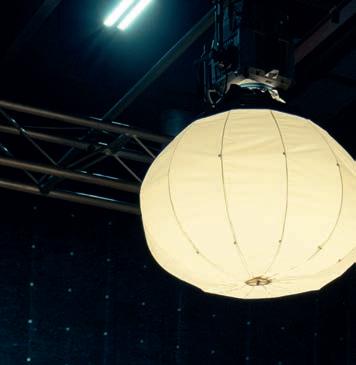
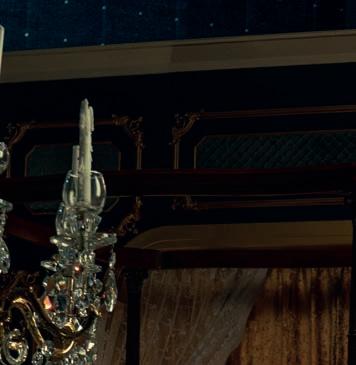
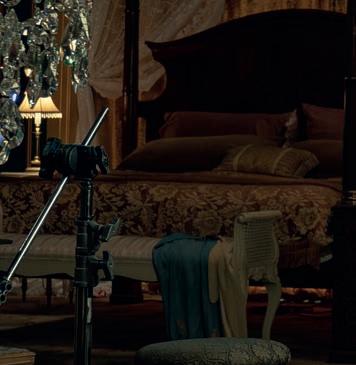

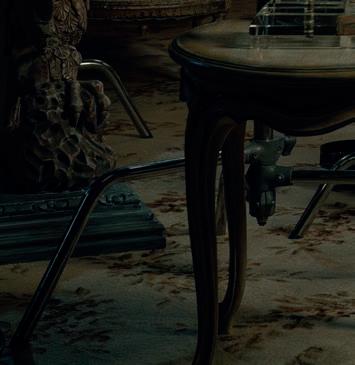
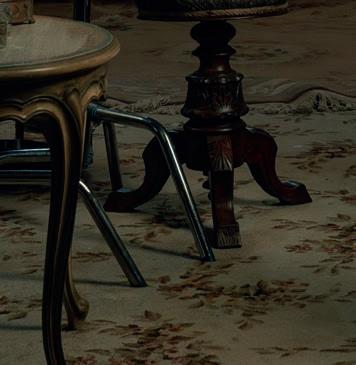



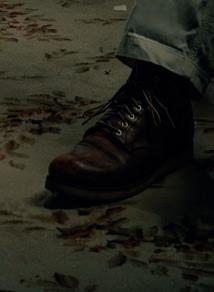
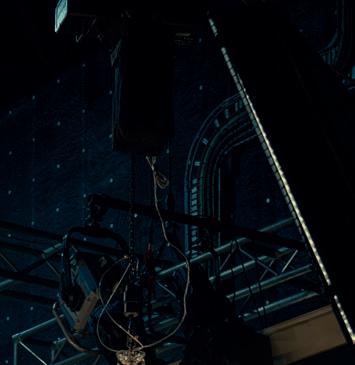
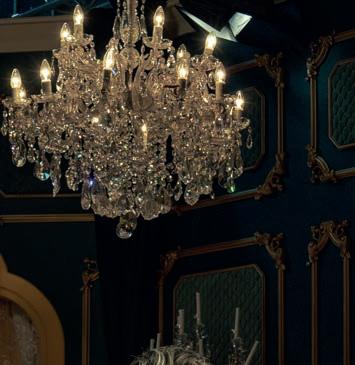

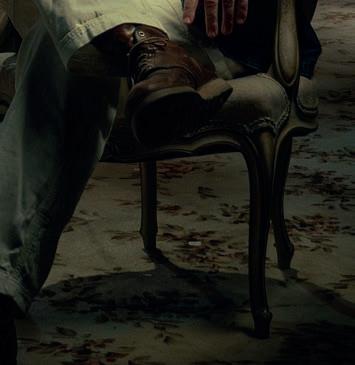

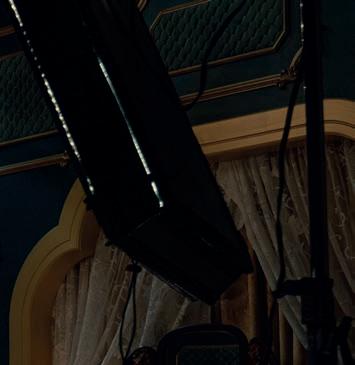
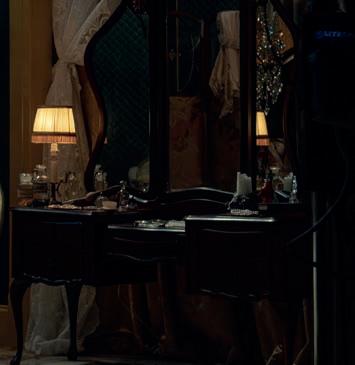
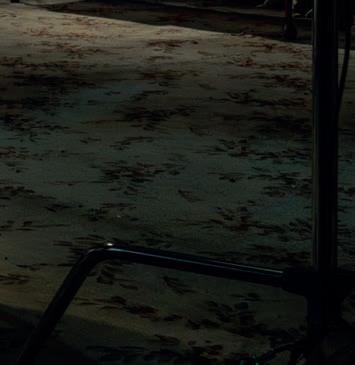
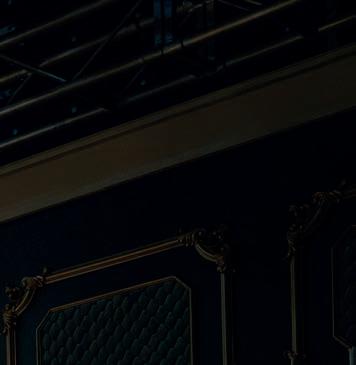
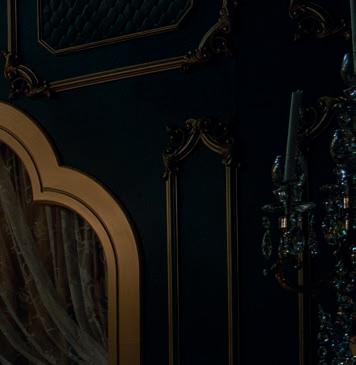
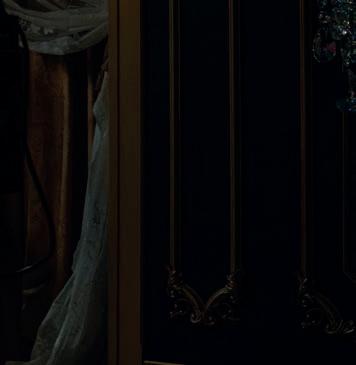
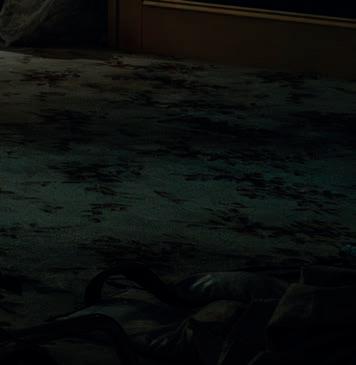



With two consecutive Production Company of the Year wins for FINCH at the shots APAC Awards, the company’s Executive Producer, Nick Simkins, talks to Tim Cumming about the nature of the work coming from Asia Pacific and the region’s challenges and opportunities, including budgetary downturns and cultural and global uncertainty.

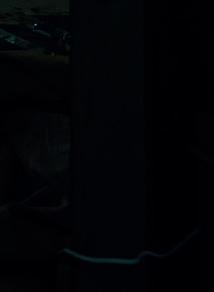
What is it that makes FINCH and its work stand out?
At FINCH we believe in adventure. And this sense of adventure informs all decisions in the business – whether that’s how we embolden our directors to treat on scripts, the type of projects we’re drawn to, the people we hire. Everything. We have a varied and versatile roster of directors that can bring their vision and authentic voice to a project, with a strong focus on craft and quality. We also have multiple EPs with di erent backgrounds, strengths and disciplines, but all with a strong desire to make things, not just talk about them. We approach every project with curiosity and action. Our evidence of exploration makes us interesting, I think.
What is the impact of the win for FINCH, and for you?
Internally, it’s a great reward and recognition for all the hard work and passion of our sta and directors. That’s important after a busy, sometimes exhausting year. Externally, shots is such a respected publication that has championed craft and creativity for decades, so to the wider industry it helps position FINCH as an adventurous, ideas-focused company that will care for and push the best ideas coming out of an agency, regardless of budget or form.
What kind of culture do you foster at FINCH?
One that is both adventurous and compassionate. We’re committed to generosity. The majority of our directors have been with us since the beginning of their careers. Most of our producers started on the front desk. We really care about people and their career development. We want our people to operate in that exciting space just out of their comfort zone. They feel supported and empowered, but also challenged.
What, for you, are FINCH’s stand-out pieces of work?
Standout work for me in the past 12 months has been The Public Diagnosis for The Brain Cancer Centre, I’m Dying Inside for Modibodi, Sport is Our Sport for TAB and Become A Winter Person for Tourism Tasmania.
How did you approach your role as head judge of the Direction and Casting category, and what’s your view on the work across the APAC region you’ve seen this year? Does the direction and casting elevate the idea? That was the central framework I tried to take into the process and impress on the other jurors. I thought the best work was exceptional, but a little thin after the best few pieces. That was a common theme across di erent regions this year from what I’ve seen. My analysis is that making bold, risk-taking work is di cult in an uncertain economic climate. More guard rails are being put up to keep work friendly, non-o ensive and contained within an easily identifiable reference point, and that sort of work isn’t wholly (or in some cases, remotely) original.
How would you describe the creative climate in the APAC region?
A bit fearful and safe, with a handful of exceptions. There’s too many examples of fearful to name – just a lot of derivative, uninspiring work out there. But a handful of great pieces have been a beacon of light.
What do you think will be the challenges and the opportunities of the coming year? The challenges are well documented – macro economic forces, decreased consumer spending. And then, as a result, guiding conservative clients into adventurous, creative, exciting places.
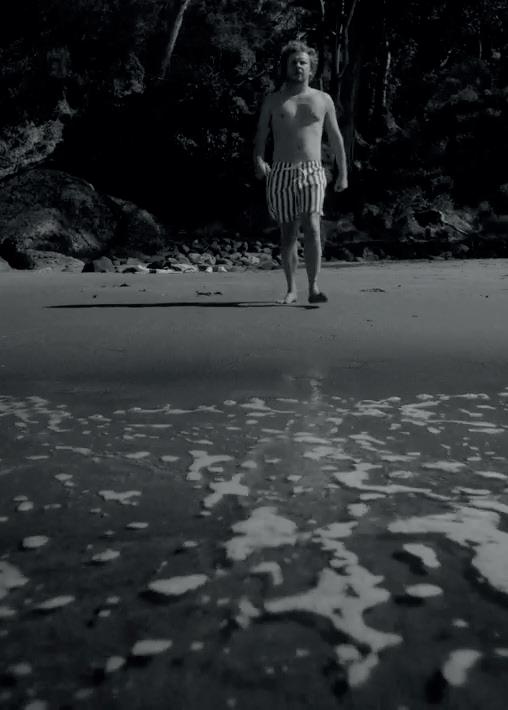
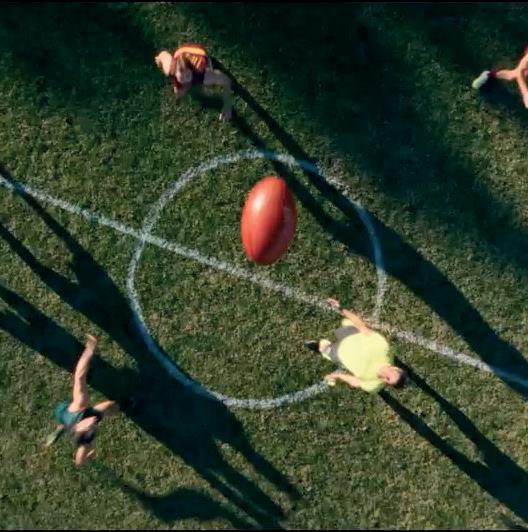
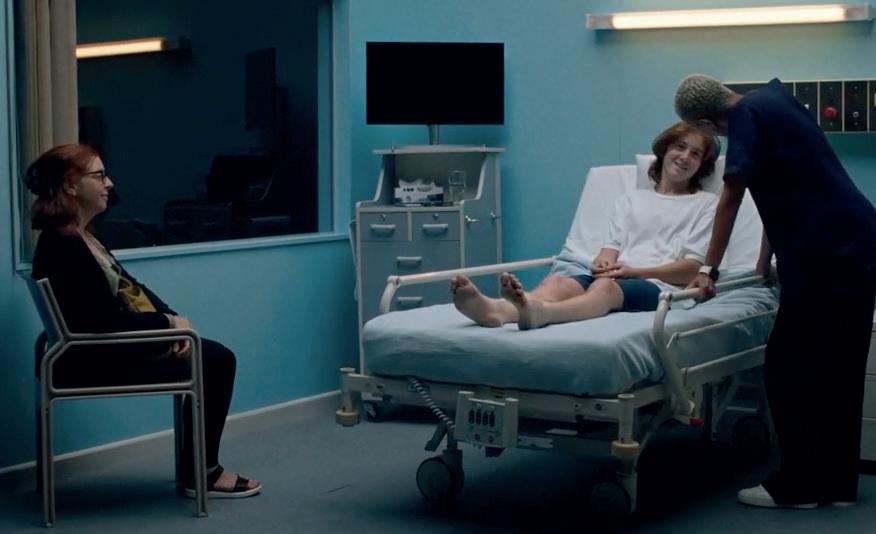
I think branded entertainment or entertainment on brand is an exciting opportunity for us at the moment. EP Loren Bradley is now heading our newly formed Entertainment division. Her first project in the role was creating a five-part, 45-min per episode brand-funded reality TV show. The Big Trip is a perfect example of how brands can show up di erently for audiences, a concept that we are so excited by at FINCH Entertainment.
What are the top three pieces of work from outside of FINCH that have stood out for you this year?
Sammakorn NOT Sanpakorn out of Thailand was batshit crazy and wonderful. Orange WoMen’s Football was original and thoughtprovoking. Telstra Better Network was bold, brave, well crafted and inspirational work.
How do you feel the APAC region’s creative output has developed this year?
It’s been a great year for the region’s output, in terms of where the best work sits globally. The region was awarded a Grand Prix at Cannes for Film, which is a mammoth achievement given the relative budgets of the region. Our strength is still being able to
realise brilliant ideas on film, with great craft and expertise.
Like most regions at the moment, we’re seeing a pretty quick and drastic drop in quality outside of the very best work. I see this both as a weakness and an opportunity. I think the opportunity we have in the region is raising the standard of the median. How can we improve the quality of our output across the board, rather than just leaving it to a brave few to carry the can?
Is there a new generation of ‘AI native’ creatives coming up and using the fastdeveloping machine learning tools that are entering so many parts of the creative industries?
We are looking to explore and experiment with AI with the same adventurous spirit that we look at everything else. We’re excited to see where trying and tinkering takes us. There is definitely a generation of directors and creatives who are using AI in all sorts of exciting, creative and intuitive ways. It’s an exciting time for creatives, with a lot of experimentation, so I think there’s a lot to look forward to regarding the technologies. My immediate misgiving is that I think it will hinder the organic nature of the creative
process a little when clients are involved. I think, now, that there’s so much control and specificity around research, script and treatment imagery that, for instance, multi-layered clients with numerous sign-o stages can really start holding production companies to very specific ideas of what a character looks like. We always need to be conscious of what makes filmmaking in particular such a wonderful art form is the collaborative element and exposure to new ideas from di erent technicians or department heads, whether that be the DoP, the production designer, stylist, editor, whoever. As an industry we need to ensure this space for evolution remains. s
1 Tourism Tasmania Become a Winter Person
2 TAB Sport is Our Sport
3 The Brain Cancer Centre The Public Diagnosis
4 Modibodi I’m Dying Inside
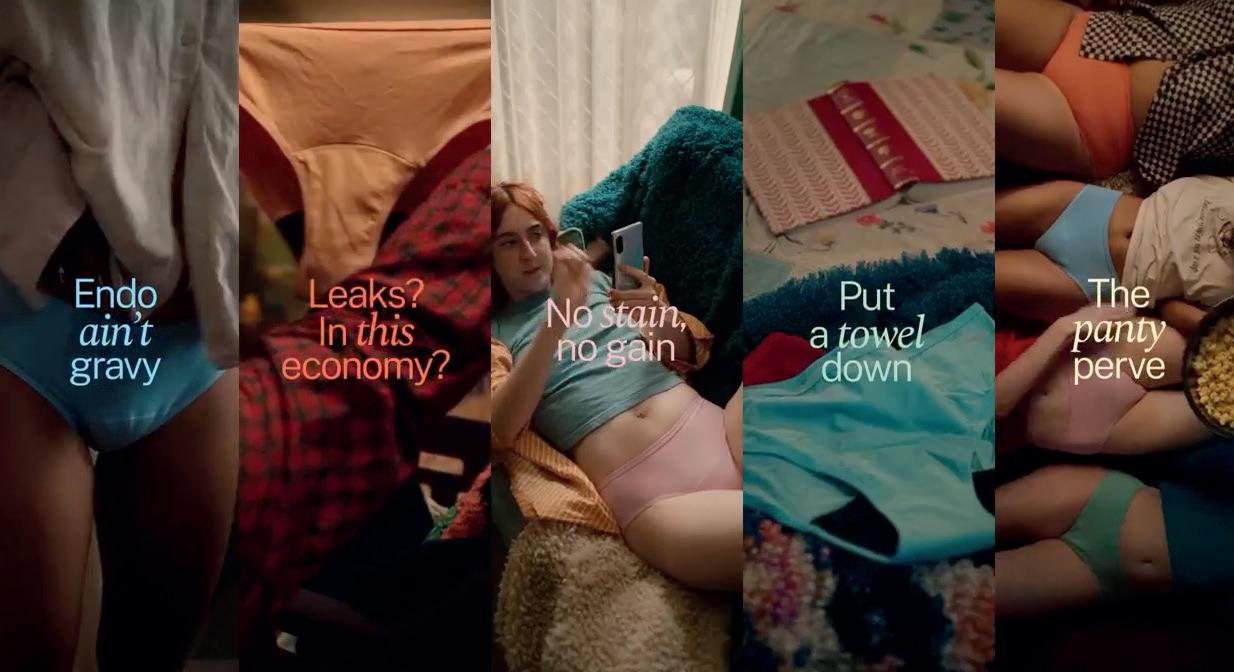
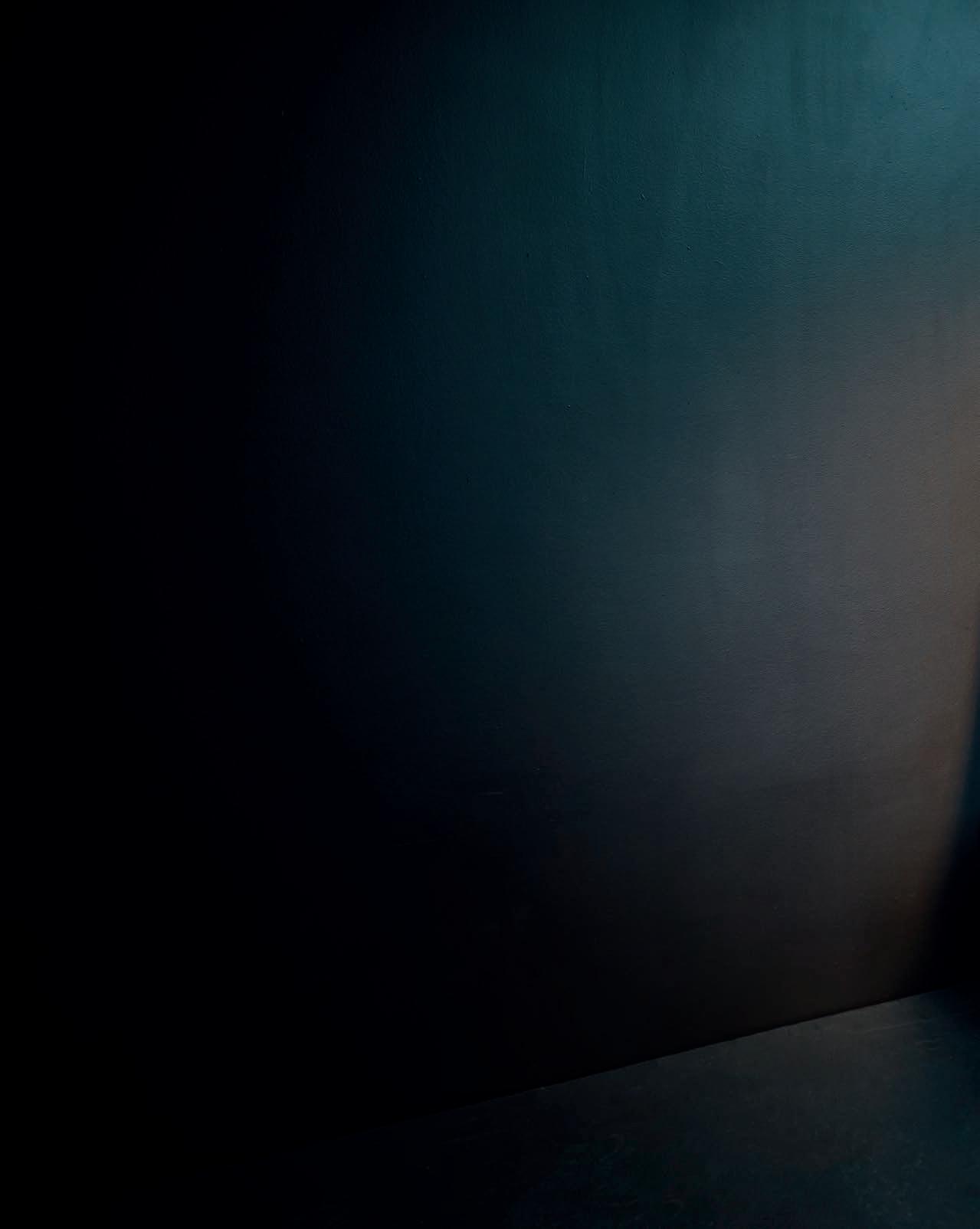
The evolution of sound design, the future of sonic branding and the psychology of sound are among the topics Tone Aston mulls over as he discusses Rumble’s win at the 2024 APAC Awards
ToneAston, Partner and Creative Director at Rumble Studios, has worked in sound design for 25 years, and set up Rumble Studios a decade ago, and this year – for the fourth year in a row – he and Rumble bagged the Music and Sound Company of the Year at shots’ APAC Awards 2024. “It’s an incredible honour,” he says, “and a testament to the hard work, creativity and passion our team pours into every project. For Rumble, it solidifies our reputation as a leading music and sound studio – not just in Australia but across the APAC region.”
They’ve been making waves in the business for a long time – and Aston has seen a lot
of changes in the world of sound design since Rumble opened its doors in the inner-city district of Chippendale in Sydney.
“Scoring and sound design have undergone significant transformation in so many ways,” he says. “There’s the fusion of music and sound design. Today, sound designers and composers collaborate more closely to create unified sonic experiences. Musical elements might incorporate sound design textures, while scores integrate ambient or natural sounds to heighten emotional impact.
“Then there’s the rise of sonic branding, with brands investing in custom mnemonics,
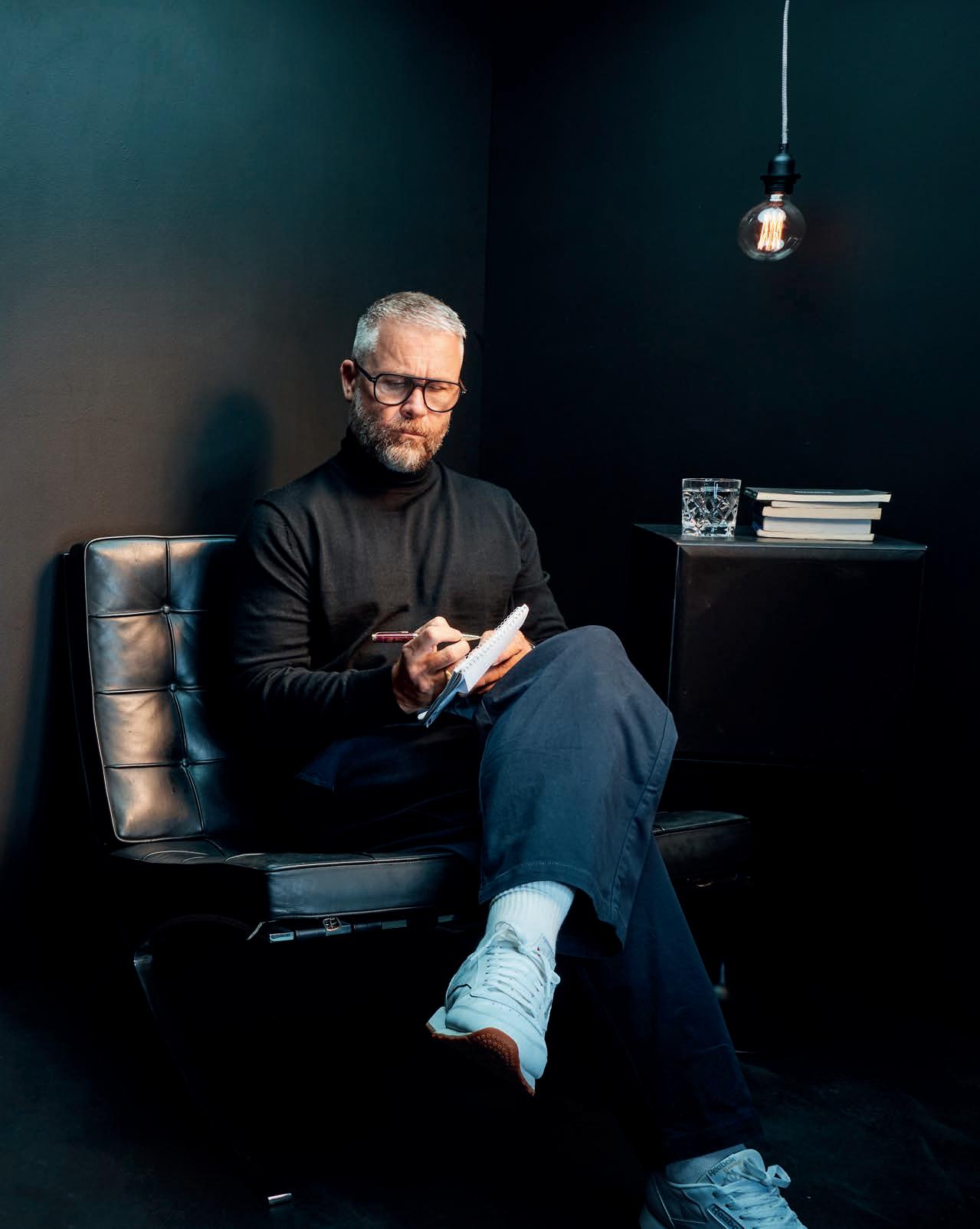
theme music and soundscapes that evoke emotion and enhance recall. This trend underscores the growing understanding of sound as a powerful tool for shaping perception. And the past 10 years have seen a wave of innovation in digital audio workstations, virtual instruments and sound libraries.”
With such an interest in sound-psychology, we wanted to dig deeper into Aston’s aural musings around how the use of sound is becoming ever-more strategic.
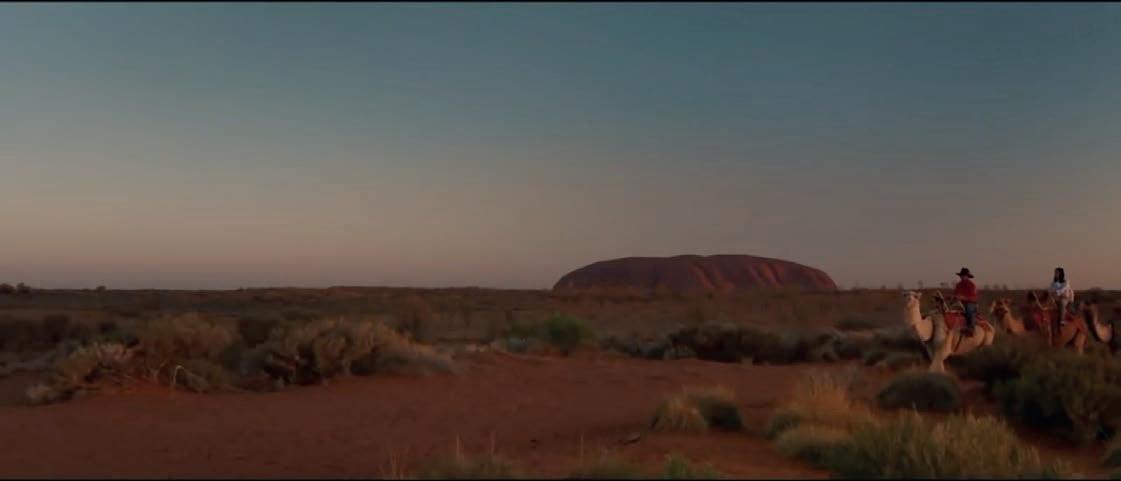
Since founding Rumble, how have you seen the role of sound evolve in shaping audience perception and emotional connection?
I think sound has become more intentional. When we started Rumble, there was already an appreciation for great sound and its emotional impact, but now brands and filmmakers are recognising its role as a strategic tool, understanding the psychology of sound. With the rise of immersive media — spatial audio, ASMR — the expectation for emotionally engaging sound has only grown. We’ve worked on projects where sonic branding isn’t just an afterthought but a key part of a brand’s identity. Whether it’s the way a product ‘sounds’ when you interact with it, or how a commercial’s score subconsciously guides emotional responses, sound has moved from the background to being a key part of audience perception.
What psychological principles influence current trends in sound design and music scoring for TV, film and advertising?
For me, one of the biggest psychological drivers in sound today is sensory branding — where brands create signature sounds that trigger an emotional response and recall. Then there’s the science of psychoacoustics;
for example, the way lower frequencies create a sense of power and urgency, or how subtle shifts in harmony can evoke nostalgia or tension. Most people are already familiar with neuroscience-backed music composition, where tempo can create relaxation or excitement, while tone can create happiness or heartfelt attachment.
How does sound influence consumer behaviour and brand perception in the Australian and APAC creative landscape?
In Australia and APAC, brands are using sound more strategically than ever. Sonic branding is no longer just for global giants; we’re seeing local brands invest in custom sonic identities that resonate with their audience’s cultural and emotional landscape. One example is our work with BMF for Voyages Tourism, where we crafted a sound identity in collaboration with the Irawee Indigenous Choir.
What are the key psychological strategies behind defining a brand’s sonic identity, and how do you create sounds that resonate deeply with audiences?
Well, I believe a brand’s sonic identity should trigger an instant recognition and evoke the right emotional response. At Rumble, we take a psychological approach to sound branding,
considering not just what a brand should ‘sound like’ but how it should make people feel.
Which pieces of sound design and music from outside of Rumble have stood out to you this year in terms of their psychological impact?
Channel 4 Paralympic Games Considering What? (Directed by Steve Rogers. Sound by Factory UK)
This piece is a masterclass in rhythmic storytelling. The way sound is used to build intensity — through precisely chosen sonic textures and percussive elements — creating a deep psychological pull. It mirrors the athletes’ journey, making the audience feel the determination, struggle, and triumph on a visceral level.
Riyadh Season’s Rumble (Directed by Seb Edwards. Sound by 750mph)
This is a great example of how sound design can blend seamlessly with music to create a heightened sensory experience. The mix is beautifully sculpted, allowing the sound design to enhance the emotional energy of the track rather than compete with it. The emotional e ect is e ortless immersion — pulling the audience into a world where sound reinforces movement, grandeur and awe.
The Zone of Interest (2024 Academy Award Winner for Best Sound)
This film’s approach to sound is psychological storytelling at its most unsettling. By stripping back the soundscape to an almost minimalistic level, it forces the audience to engage in an unnerving way. The contrast between what is heard and what is left unsaid creates a deep emotional disturbance. This is a perfect example of how sound can dictate perspective, building tension not through what we expect to hear, but through the absence of it.
What does winning shots’ Music and Sound Company of the Year accolade mean in terms of reinforcing the power of sound in storytelling?
Winning this award for four consecutive years reinforces that sound is no longer an afterthought — it’s a driving force in modern storytelling. For us at Rumble, it validates the belief that great sound design isn’t just about technical perfection; it’s about emotional storytelling. Whether it’s for advertising, film or sonic branding, our goal has always been to create sound that connects, moves and stays with audiences long after they’ve heard it. This recognition motivates us to keep pushing the boundaries of what’s possible with sound, not just in Australia but globally. s
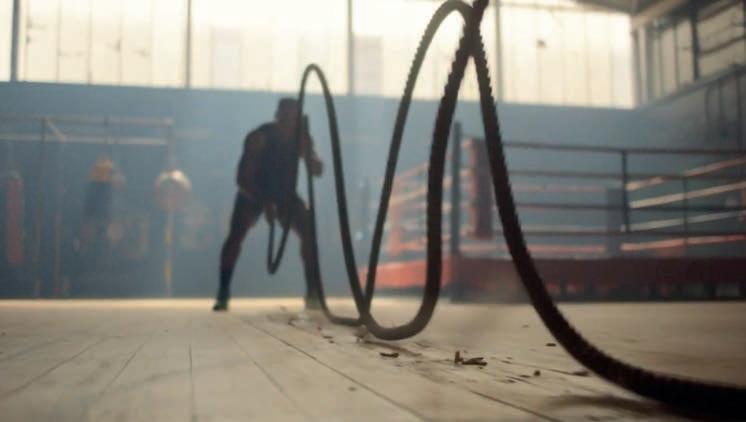
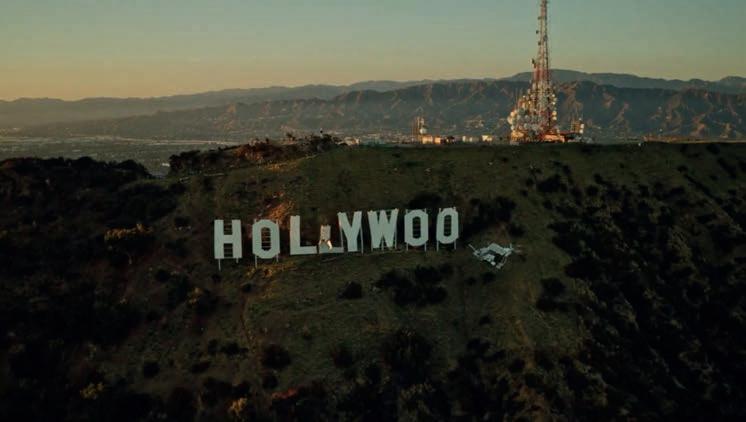
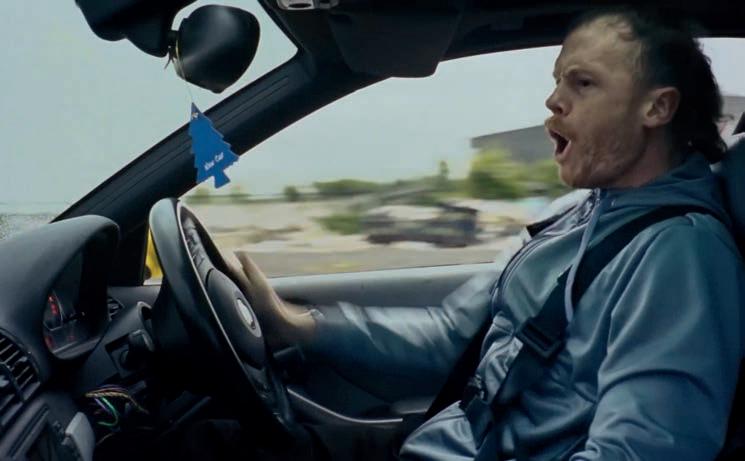
Lauded for his music films and striking spots for Crumpler, 2024’s New Director of the Year winner, PHC, aka John Stewart, talks to Tim Cumming about life, work and career, touching on Love Hotels, tattooed Yakuza and chasing the new.
Melbourne-based director, John Stewart, is most sought after for his music videos and spots that draw from the urban sub-cultures of Australia and elsewhere that few others are able to convincingly bring before the camera. Here he recalls his rigorously independent route into filmmaking, music videos and advertising, while talking us through making a stunning series of spots for apparel brand Crumpler – work that helped him become a joint winner of the 2024 New Director of the Year award and saw him signed to Academy.
“I loved movies. I loved Jack Nicholson. Then I realised it wasn’t him, it was everything around him, and what he brings to it. How could I get as close to that as possible? I never went to film school – I was like, film school is for fuckheads. Even though I know that is bullshit. So I studied art history and English literature. I wanted to make films, and I felt this will help me in some tangential way.
I started working for Warner Music, interviewing bands from Melbourne. It felt so far away from what I wanted to do. Then I worked at a cinema. That felt even further away. I knew I wanted to make films on 35mm, because those were the films I liked. But I didn’t know anyone in film. I didn’t know how to shoot. I scrounged money to buy a 1,000ft roll of 35mm, and made some short films. That’s how I started.
I shared a studio space in an old warehouse with the band Gizzard, who were close friends of mine. One of them asked, do you wanna
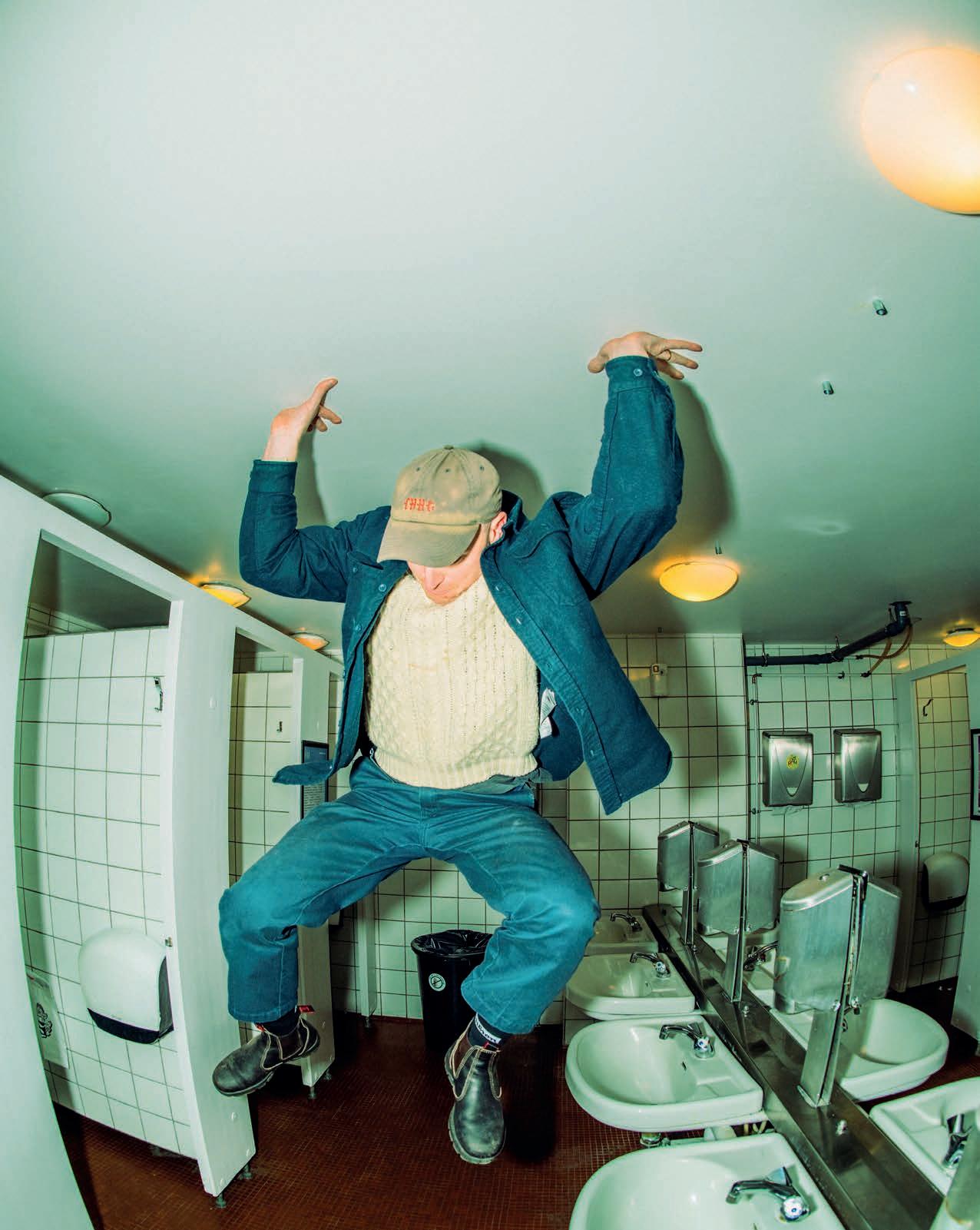


“I hated music videos. They said I’d be great at it, because I hated them. I was recruited because of my cynicism.
”

make a music video? I said I hated music videos. They said I’d be great at it, because I hated them. I was recruited because of my cynicism.
That was a fun couple of years. I started shooting on 16mm. Then we planned a feature film of raw, on-stage footage, and I went to Europe and filmed them, and turned that into the documentary Chunky Shrapnel.”
“‘PHC’ means Preston House Company film. Preston House was the squat where I made my first films. It didn’t have a back door, the kitchen had holes in it and my space was a space between someone else’s room and the staircase. With PHC, I wanted to continue that feeling, but taking it more seriously. If you really fall in love with imagery and connection, and story and tone, you get images that feel just as good something made for a million dollars, as opposed to a
thousand. I’m interested in DIY filmmaking that looks high-end. That’s why I like celluloid so much. The feel of it, the tone of it, the flicker of it. But I haven’t shot on 35mm for a bit. It’s harder to justify when you’re using other people’s money. This year I shot on 16mm twice. One was the Jerkin video with Amyl and the Sni ers. I knew I only needed 40 seconds with each person, otherwise it kills the moment. You want to keep all that feeling and energy in front of the camera.”
“We did our first Crumpler shoot in Tokyo. I wanted to find ways of capturing moments that feel genuine, but with a high-end aesthetic. So how do we do that? I was thinking of amazing street photography with a very strong flash that captures and freezes the moment.
We ended up drinking a lot of sake and
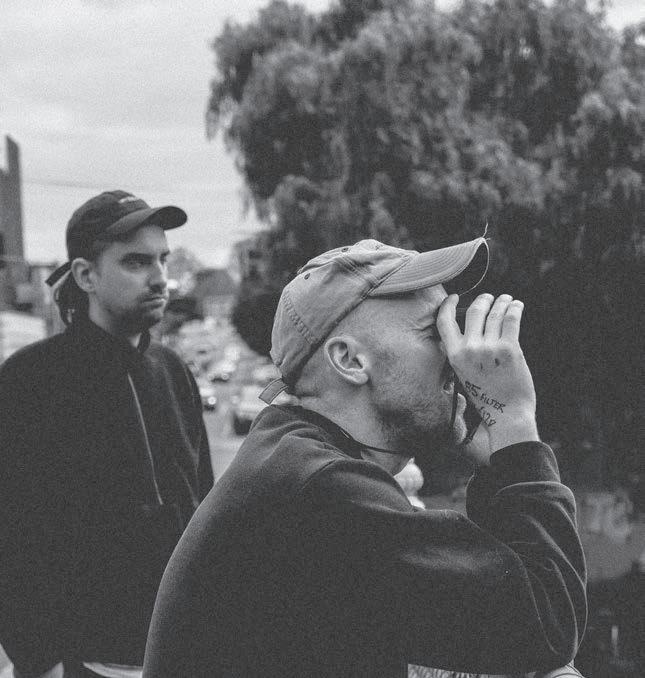
shooting a lot. We had a great fixer-producer, which opened up so much for us there. He used to work in a Love Hotel, where you pay by the hour, and he’d take documentary photos of the rooms after they’d been used – a bed with a yellowy wet patch, bottles of beer, bento boxes. So we got access to shoot him in one of these rooms, and he’d brought his partner, and they became excited by the idea of being filmed. He was like, do you mind if we just have sex? And in a very controlled way, it started happening. It was weird. It wasn’t uncomfortable, it was so natural and non-confrontational. They were so confident. We’d gone in with an open mind, and they were so trusting of us, they let that happen, which never would have happened in another situation. Another day, a Yakuza boss let us shoot him. He was missing one of his fingers, covered it tattoos, with silver hair, in his 50s. We were shooting with all these amazing people you’d never have access to.
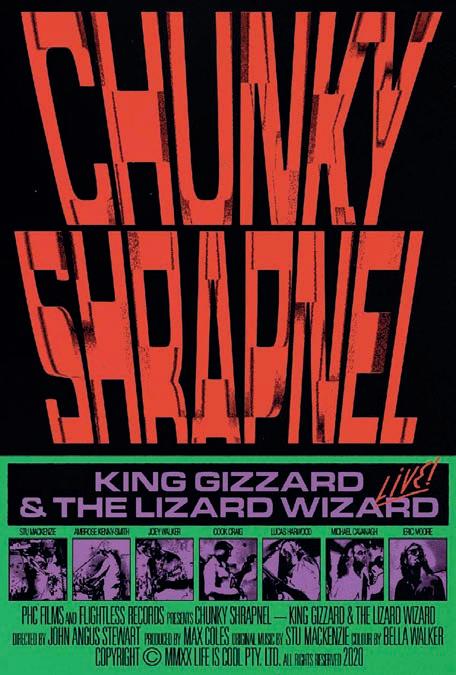
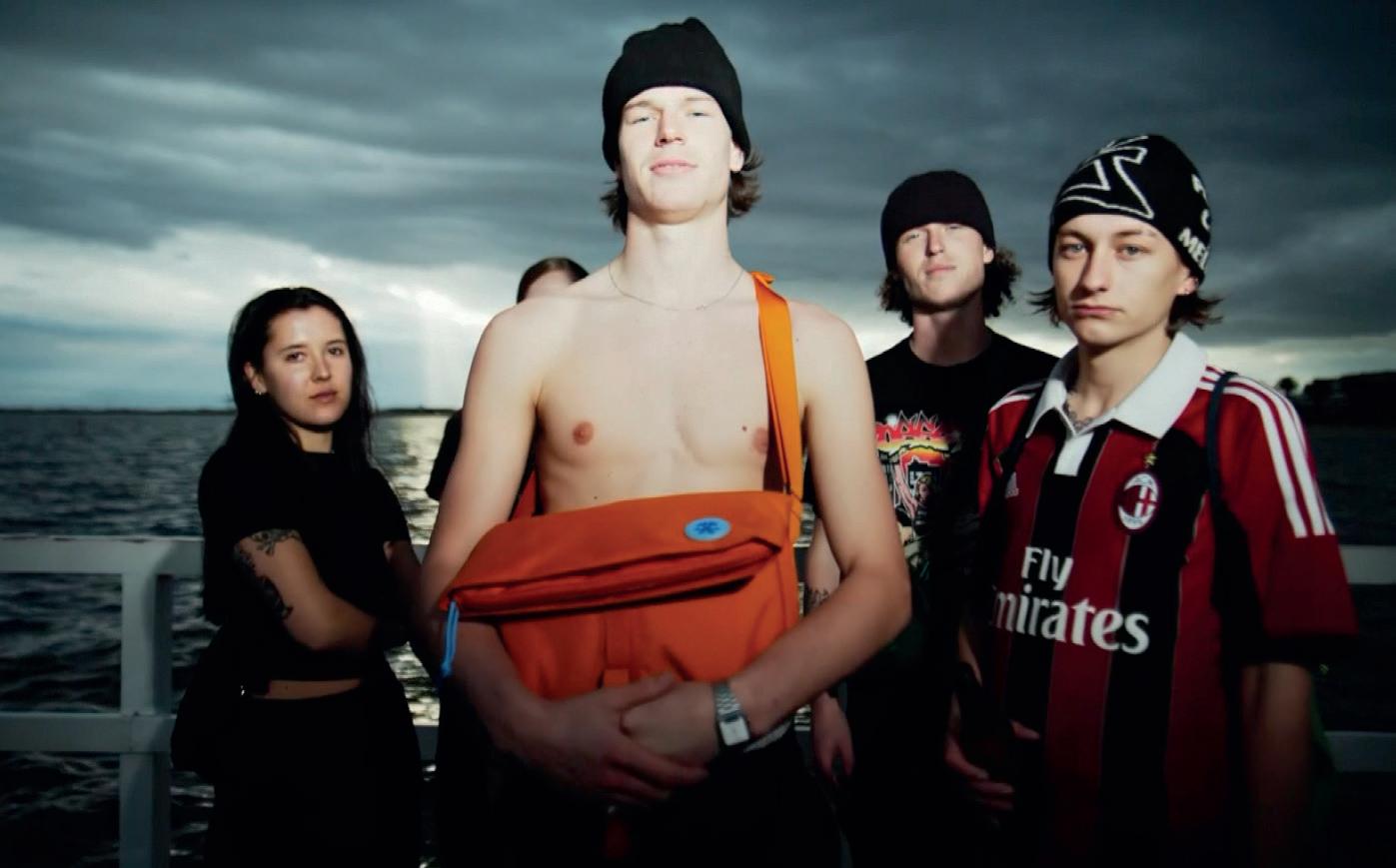
When it came to do Crumpler Sub 3000, we decided to focus on the subcultures of Melbourne. They’re not superstars, they’re not really looked at, so it was like, ‘let’s hold them up high’. I saw them as prophets of urban decay – they have an almost spiritual nature, which is where a lot of music for the campaign came from. One piece is by the Tallis Scholars, another by an Austrian yodelling troupe. That connection between music and image is a classic tool of advertising. If it’s machined correctly it can be most e ective. That’s the essence of cinema, sound and image.
A lot of casting was through friends. There’s a sex worker in it, a friend of ours who helped us cast other sex workers. The skater crew on the pier we got via some underground rapper friends. It was reaching out to people we already knew to reel other people in, and
winning their respect by showing them what we’d already done, and what it would feel like. That was before we signed with Academy in May. I’ve known them for years and loved the work they come out with. And Crumpler was definitely why they were interested in signing us.
“It’s really nice. It’s hard to know what it means, or its impact yet, but it feels cool. It’s a privilege to make stu that people care about and to be recognised. It’s incredible, but that can be a reductive thing to dwell on. Opportunity is what I’m interested in, more than anything.
For me, it’s always the next thing, that next experience. My last work is not an accurate picture of what I want to do, or where I want
to be. I never want to be stagnant. And I’m very resistant. Resistance for me bears the strangest fruit, and I tend to make the best stu when I’m pissed o . And I do get fed up with a lot of advertising, because it’s always a year behind where everyone else is. It’s so slow, and things change so quickly. Being risk averse does advertising a massive disservice. If you’re going to do it, do it.” s
When it comes to Bear Meets Eagle on Fire, the studio that promises to ‘help good people and brands think and make things di erently’, its founder Micah Walker, who opened the agency’s doors back in 2019, is almost apologetic about its distinctive name. “I wish there was a better story, but it’s something I’d done some side work under years ago, so it just felt right. At its simplest,” he adds, “it positions us as something not like other things, which is a good start. Then the proof is ultimately in the work.”
That work includes a series of brilliant and funny spots for Telstra, helmed by APAC Director of the Year Je Low. “We also have a new client, Bankwest,” adds Walker, “and we have some lovely work that comes out in the new year for them.”
When it comes to looking back to where it all began, for Walker it was a case of “stumbling into advertising after studying design and visual communication.” While he grew up and started o in the US, he’s spent most of his professional life on a global stage – working in Asia, Europe, London and
Micah Walker, the Founder and CCO of the extravagantly titled Bear Meets Eagle On Fire, looks back on a global career and reflects on the creative challenges facing the APAC region.
Australia. “After coming back to Australia from W+K in Portland, I knew it was going to be hard to find a place with similar standards and creative culture. So I found myself at a bit of a crossroads. My wife, who has a wonderful business of her own, just said, ‘start the place you want to work’, and as usual, she gave me both the confidence and kick I needed.”
Here, he talks about the creative culture at Bear, his experience of working globally in the industry, the strength of the work across the APAC region, and takes a look at what the coming year may bring its creative industries. »

‘START THE.. PLACE YOU WANT... TO WORK IN’..
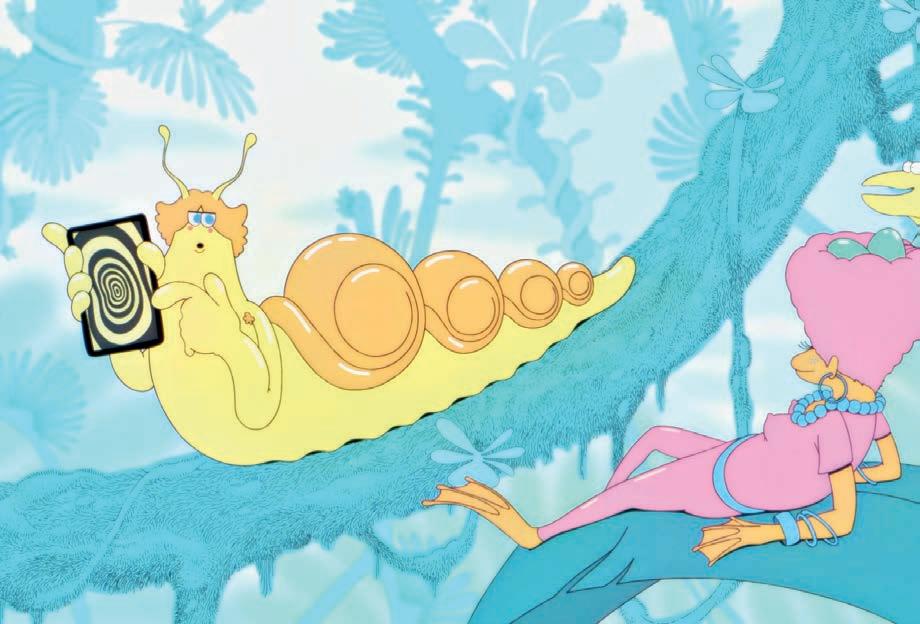
Describe the creative work you’re doing at Bear, and the kind of culture and creative ethos you foster there?
We call ourselves a thinking and making studio, rather than an agency, but that can sound a bit contrived, and the reality is more specific. We sit at the intersection of all things brand – from brand creation and design right through to more advertisingshaped projects, so at even given moment we might have a packaging or brand design project or a big campaign going at the same time. We love them all equally. We’re at our best when creativity is most valuable – so creating, setting or defining a brand or it’s enduring idea and then bringing that to life with a level of craft and care. We care harder, which again, might sound a bit trite, but I believe it’s true and we’ve built the business around that.
I do think a culture built around anything other than creativity and making better things is a waste of time. I hope Bear is a place where you can care hard and genuinely feel challenged and supported to make better things. That means it might not be for everyone, and I’m perfectly okay with that. I certainly don’t want to be everything to
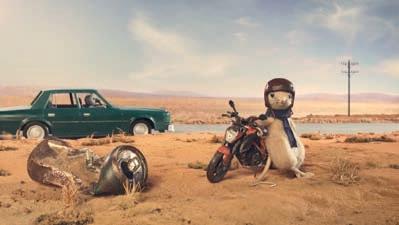
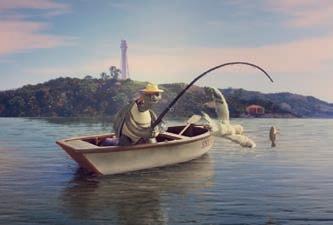
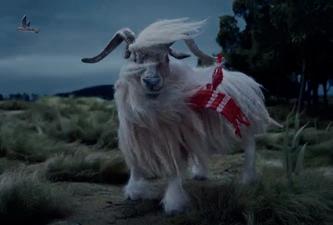
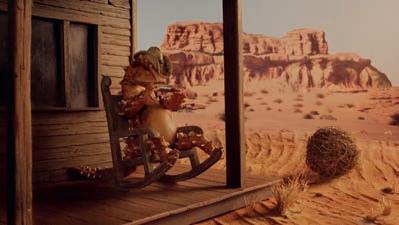

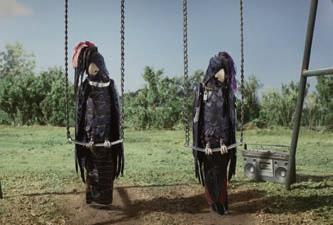
everyone, so finding the right people is really the key to it all. You can’t teach people to care and alchemy is everything.
You’ve worked in the US, UK, Europe, Asia and Australia – what di erentiates these territories in terms of di erent approaches (and outcomes) to creativity?
There are certainly di erences in taste, tone of voice, approach, culture and ways of working. I always think of the UK, London specifically, as a more reductive creative culture in terms of ‘the idea’. There’s a real focus for clarity on that up front. In the US, it’s a bit more executional and additive, so the rigour or even definition of the idea is more performative. I think there’s also an easier relationship with ‘selling’ something. Americans are more comfortable being sold to if it’s delivered in an unexpected way, whereas people in the UK find it a bit crass. These are generalisations, but they reflect my experience.
I don’t think you’d have ever made Sony Balls in the US. Old Spice, and that kind of
overt commercial comedy is something I don’t think would’ve been made in the UK. So again, it’s not that one is better than the other, it’s just di erent. European work varies market to market unless you’re working on something as a regional assignment, and Asia is, again, just very di erent all together – Japan, Thailand, Hong Kong, all very, very di erent.
One thing I love about Australia is that, at its best, it’s kind of mix of all of it.
How would describe the current creative climate in Australia and the APAC region?
I think it’s been a tough year for most. There’s a lot of change and uncertainty happening and I think that’s had an impact on the kind of work you see getting made. There are some solid standouts being made, but most of what you see feels over-rationalised and hovering around safe spaces.
What is the impact of winning shots APAC Agency of the Year?
Any time your work is recognised you feel
humbled. We’re proud that all the care and hard work is being noted and it’s a real honour. We haven’t celebrated yet, but we will.
How do you think the creative industries might evolve across the APAC region?
I could say that the big places will only get bigger, and the middle will kind of disappear, leaving boutique specialists and behemoths to each do what they do, but I’d be guessing. I don’t make a habit of making predictions and rarely trust people who do.
What do you think will be the challenges and the opportunities of the coming year?
I’m not sure there’s a clear answer that’s specifically 2025. All the work we’ve proudly made is already a thing of the past, so it’s really a clean sheet. We’ll grow, we’ll adapt, and we’ll try and make better things than we’ve made before. We already have about five things in production for early in the year. We’ll always want to make more, better things, that’s just the curse. s

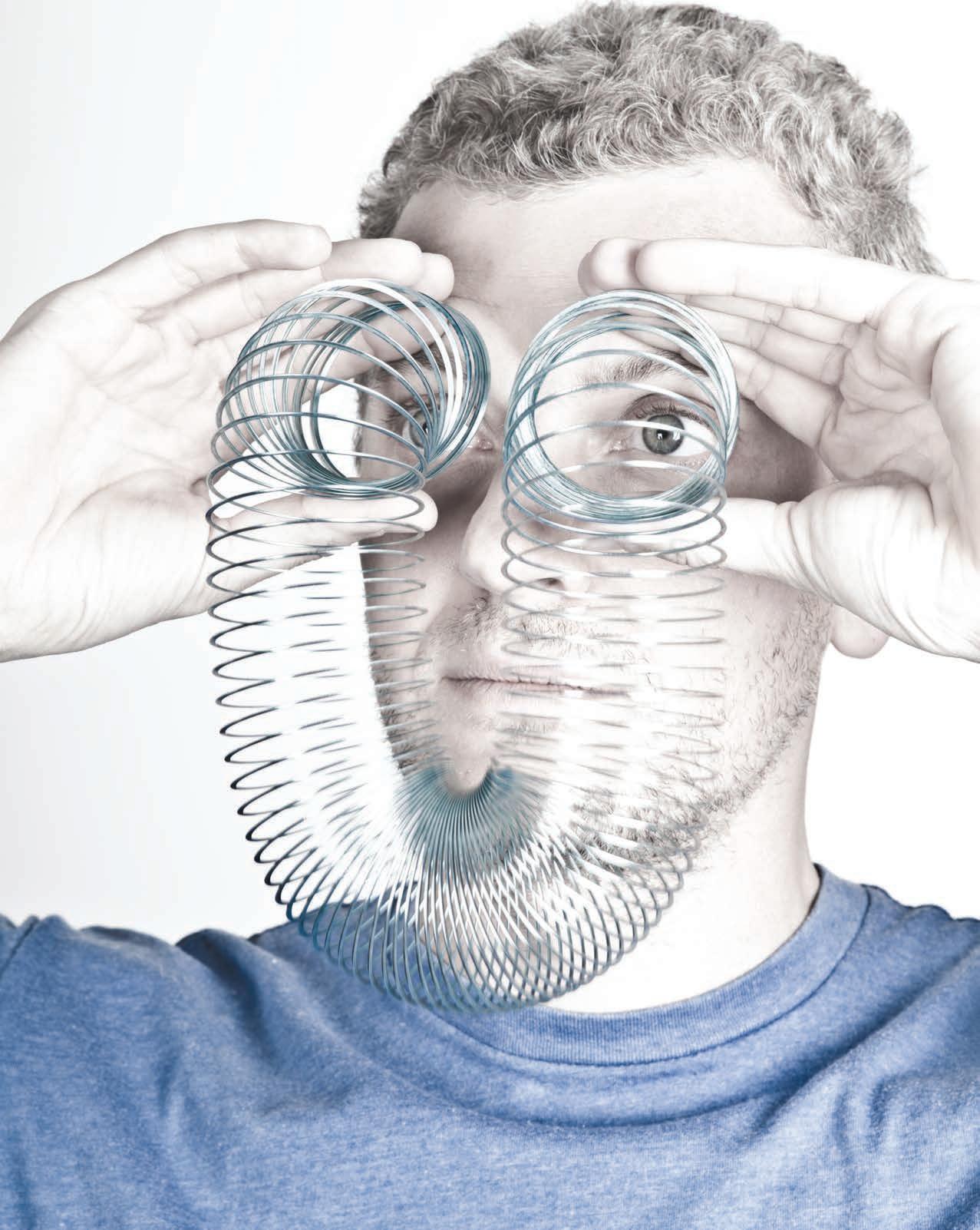
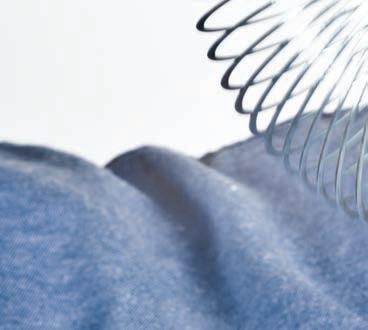




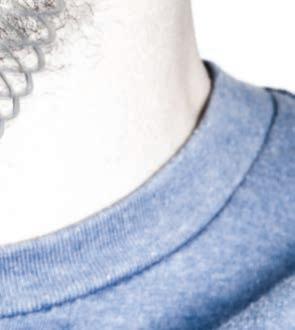



The shots Awards APAC annually celebrates the most inspirational creative work, talented people, pioneering teams and successful companies from across the Asia Pacific region.
With the 2025 awards now open for entries, we take an in-depth look back at the winning work from 2024, with full credits available on shots Vault.
“The submissions showcase the incredible diversity of talent and creativity. It’s a truly exciting experience to see how each project is approached uniquely, conveying distinct ideas and styles. I had a blast reviewing these videos and discovering the innovative ways these artists have used their skills.
-2024 judge
It was a great opportunity to view some of the best work together with fellow industry experts in the region. It has always been inspiring to see the different types of format and techniques used to deliver these beautiful touching stories. I really enjoyed the work!
-2024 judge
On the following pages you’ll find a comprehensive list, category by category, of the 2024 finalists and bronze, silver and gold winners. Plus, there’s an overview of 2024’s expert panel of judges which comprised of renowned industry names who pored over each entry to seek out the region’s very finest work.
”To view all the work in full, scan the QR code or to learn more about the awards go to shotsawards.com/asiapacific

Ainslee Littlemore MADE THIS New Director and Music Video of the Year

Emir
Publicis Groupe Malaysia Concept, Copywriting and Charity/PSA

and Casting
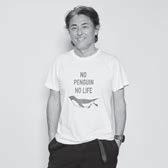
Kaz Shinagawa Toboggan Inc.
Editing, Sound Design and Use of Music
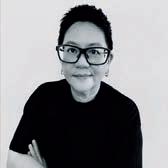
Angie Wong TBWA\Media Arts Lab Animation & VFX
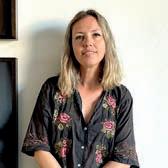
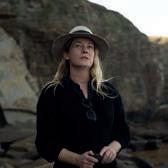
Annie Beauchamp Cinematography, Production and Styling


Charu Menon Heckler Direction and Casting
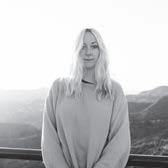

Donny Pereira MassiveMusic Singapore Editing, Sound Design and Use of Music
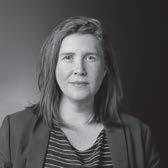
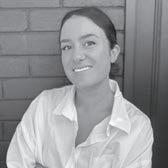
Ella Carey Freelance Director Cinematography, Production and Styling

and Casting


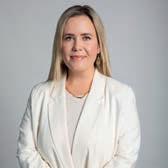
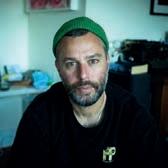
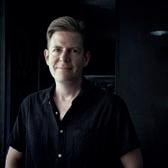

Ko Iwagami Kaiju Inc. Direction and Casting

Leah Churchill-Brown EXIT Films New Director and Music Video of the Year


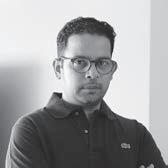
and Casting

Mel Mackintosh
Mackintosh Casting Direction and Casting
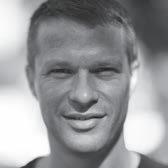
Paul Bruty
The Glue Society
New Director and Music Video of the Year

STINK FILMS Tokyo
New Director and Music Video
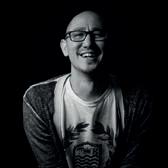
Direction and Casting
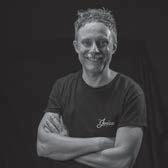
Michal Dwojak-Hara Juice Tokyo Animation & VFX

Paul Le Couteur Squeak E. Clean Studios Australia
Editing, Sound Design and Use of Music
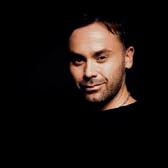
Ryan McGuire Cutters Tokyo
Editing, Sound Design and Use of Music
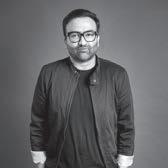
Varun Shah Publicis Production India
New Director and Music Video of the
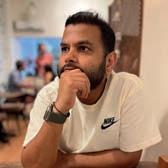
Neelay Shah Dejavu Dubai
Editing, Sound Design and Use of Music
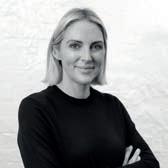
Penny Brown
The Monkeys Direction and Casting
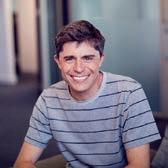
Bang Bang Studios
Editing, Sound Design and Use of Music

Vikram Pandey
Leo Burnett India
Concept, Copywriting and Charity/PSA

Nick Simkins FINCH
Direction and Casting
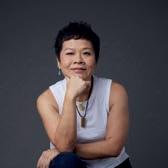
The Sweetshop Asia
New Director and Music Video of the Year


Nicko Septiawan Cut2Cut Studios
Editing, Sound Design and Use of Music

Piyakan Bootprasert I’m Wahaha
Editing, Sound Design and Use of Music
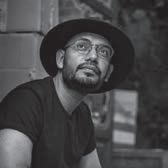

Arai AKQA
Concept, Copywriting and Charity/PSA

Rajay Singh
Think Tank Group of Companies (S.E.A) Direction and Casting
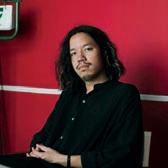

Iceberg Design Singapore Animation & VFX
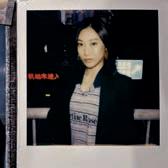
HEAD JUDGE
Yimeng Zhang
Hamlet China
Cinematography, Production and Styling

Yohan Jang PAULUS
Editing, Sound Design and Use of Music
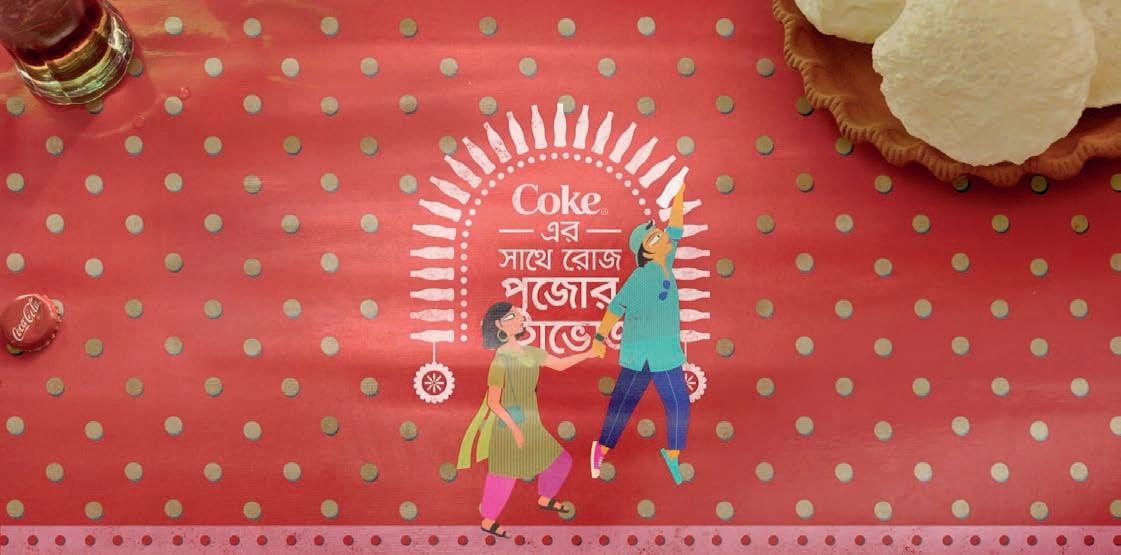
Agency Ogilvy/Mumbai
Production Company Hungry Films/India
Director Vijay Sawant
Chief Creative O cer Kainaz Karmakar
Chief Creative O cer Sukesh Nayak
Chief Creative O cer Harshad Rajadhyaksha
Executive Creative Director Sujoy Roy
Animation Company Hungry Films/India
Sound Design/Audio Post/Music Subhajit
Mukherjee
ROLLiN’ Insurance Smooth
Agency Bear Meets Eagle ON Fire/Sydney
Production Company Division/Australia
Director Mrzyk & Moriceau
Animation Company Division/Australia
NatureLab. Co., Ltd Maro17 Utakata feat.
Tetsu Hen
Agency CAJ/Tokyo
Production Company Geek Pictures/Tokyo
Director Takashi Sato
Animation Company MAPPA
Greenpeace Forests
Agency Client Direct
Production Company Photoplay
Director Dropbear
Post Production Dropbear Digital
Queensland Rail End of the Line
Agency VML/Brisbane
Production Company 3P Studio
Director Guido Pecego
Animation Company 3P Studio
Asia Pacific 2024
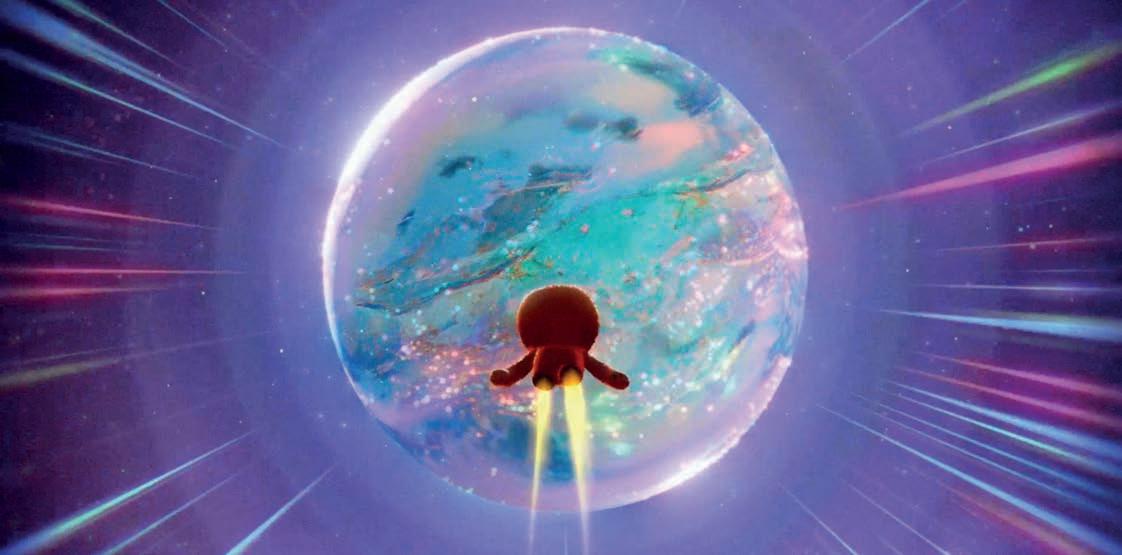
Agency CHEP Network/Sydney
Production Company Finch/Sydney
Director Matt von Trott
Copywriters Kate Enright, Katrina Vo, Louise McClean
McDonald’s Fries Beat 24
Agency Dentsu/Tokyo
Production Company Geek Pictures/Tokyo
Director Takumi Shiga
Post Companies Jitto, KASSEN and MORIE
Animation Company Geek Pictures/Tokyo
Sony Interactive Entertainment Japan Play
Has No Limits feat. King Gnu
Agency Six/Tokyo
Production Company Geek Pictures/Tokyo
Director Sojiro Kamatani
VFX/Post Companies Jitto, LUDENS, LiNDA Inc,
Amana and WACHAJACK
Animation Company Geek Pictures/Tokyo
Creative Directors Will Winter-Irving, Joe Ranallo
Post Company Assembly/Sydney
Animation Company Assembly/Sydney
Art Director + Animator Joshua Fourt-Wells
ANZ DoppelFalcons
Agency Special Group/Auckland
Production Company Revolver
VFX Company Alt.vfx
Animation Company Alt.vfx
Netease Naraka Bladepoint Asian Games
Production Companies Final Frontier and Zombie
Studio
Director Paulo Garcia
Animation Company Final Frontier
Animators Frankie Principe, Elliot Stronge
Sound Designer/Audio Mixer Andy Stewart
Music Sonar Music
Original Music Composition Matteo Zingales
Sound Designer Timothy Bridge
Telstra Better on a Better Mobile NetworkNorthcli e
Agency Bear Meets Eagle ON Fire/Sydney
Production Company Revolver x Biscuit
Director Je Low
Post Production The Editors
VFX Electric Theatre Collective
Telstra Hello Christmas
Agency The Monkeys/Sydney
Production Company Exit Films Sydney
Director Glendyn Ivin
O ineEdit Company The Editors
VFX Company Alt.vfx
Asia Pacific 2024
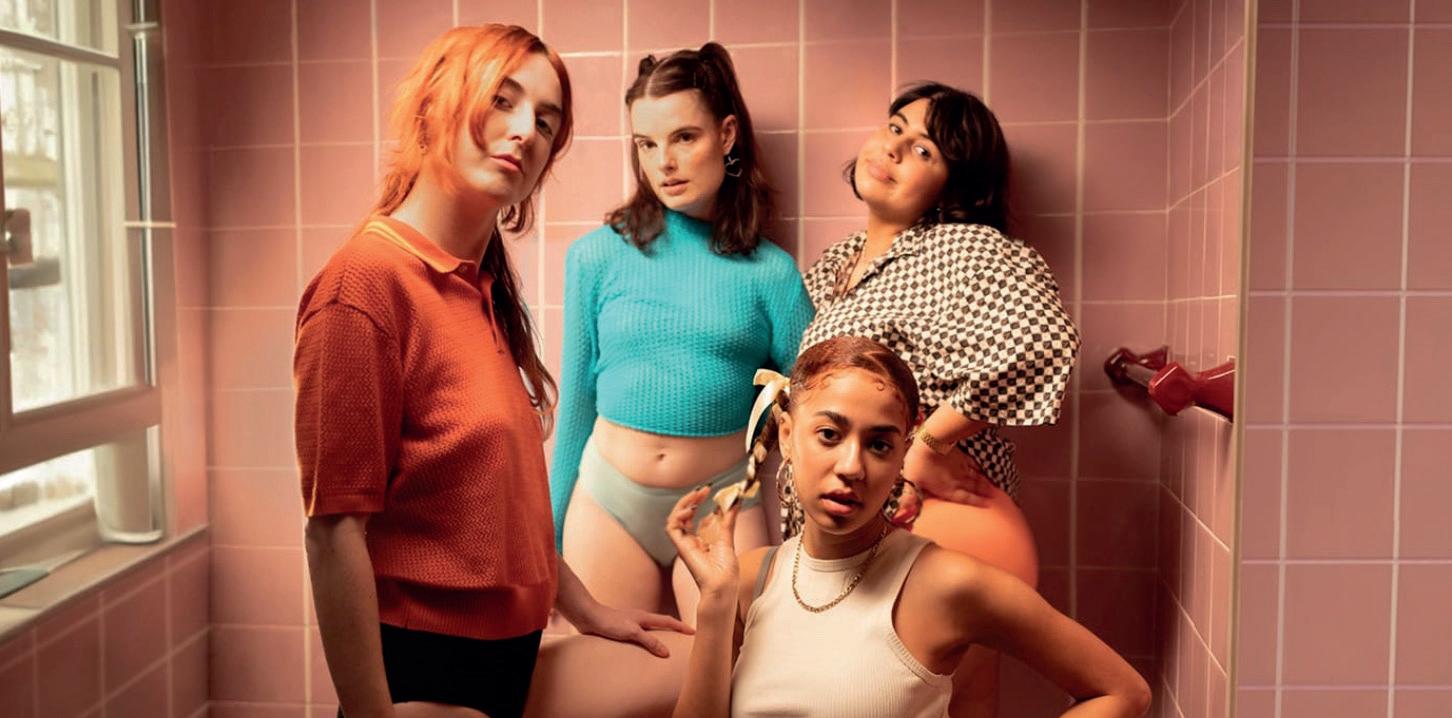
Agency Howatson+Company/Sydney
Production Company Finch/Sydney
Director Arundati Thandur
Casting Company FINCH/Sydney
Stylist Lynn Mathuthu
Silver & Bronze Winners
TAB Our Sport is Sport
Agency The Monkeys/Sydney
Production Company Finch/Sydney
Director Nick Ball
Casting Director Peta Einberg
Telstra Better on a Better Mobile Network
Busselton Jetty, Naracoorte and Warmun
Agency Bear Meets Eagle On Fire/Sydney
Production Company Revolver x Biscuit Filmworks
Director Je Low
Casting Director Natalie Harvey
Casting Company Citizen Jane Casting
DP Tom Black
Art Director Elly Pipiciello
Copywriter Katy Hulton
Executive Producers Loren Bradley, Bill Doig
Producer Amy Dymond
AAMI Athletes in the Making
Agency Ogilvy/Melbourne
Production Company Scoundrel/Sydney
Director Tim Bullock
Casting Company Nick Hamon Casting
Alipay+ The Power of Small
Agency BBC StoryWorks/APAC
Production Company The Sweetshop/Bangkok
Director Zoe McIntosh
Casting Director Jessy Sotvithi
Apple Relax, It’s iPhone - Nice Try
Agency TBWA\Media Arts Lab APAC (Malaysia)
Production Company Holy Momma
Director Max Sherman
Production Designer Alice Lanagan
Post Company Howatson+Company/Sydney
Editors King Yong, Kel Gronow
Colorist Kel Gronow
Music + Sound Mosaic Music
Kia Kia’s Getting a Ute
Agency Innocean Worldwide/Sydney
Production Company Scoundrel
Director Ariel Martin
Casting Company Scoundrel
Quaker Oats Dohale Jevan Poshanchi Vaati
Agency Leo Burnett/Mumbai
Production Company Chrome Pictures
Director Hemant Bandari
Casting Director Aniket Khabade
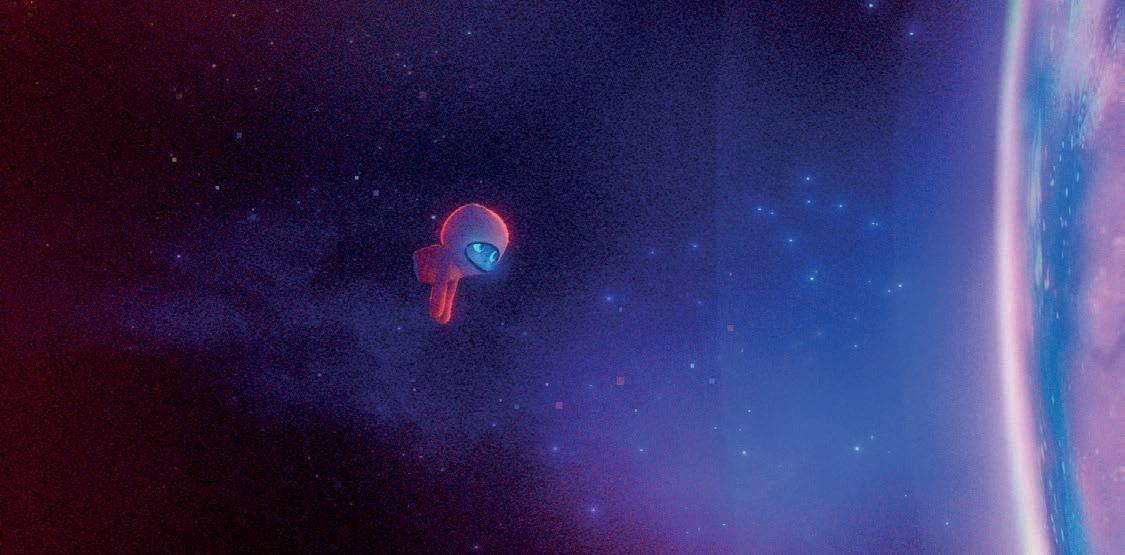
Agency CHEP Network/Sydney
Production Company Finch/Sydney
Director Matt von Trott
Copywriters
Kate Enright, Katrina Vo, Louise McClean
The Brain Cancer Centre The Public Diagnosis
Agency The Royals/Melbourne
Production Company FINCH/Sydney
Director Michael Hili
Post Company Assembly
Creative Directors
Will Winter-Irving, Joe Ranallo
Animation Company Assembly
Art Director + Animator Joshua Fourt-Wells
ABMDR (Strength To Give) There’s No One Like Me
Agency Supersolid/Sydney
Production Company Collider/Sydney
Director Ben Briand
Greenpeace Forests
Agency Client Direct
Production Company Photoplay/Sydney
Director Dropbear
Animators Frankie Principe, Elliot Stronge
Sound Designer/Audio Mixer Andy Stewart
Music Sonar Music
Original Music Composition Matteo Zingales
Sound Designer Timothy Bridge
Up to and including two minutes
30 shots Awards Asia Pacific 2024 | Winners Asia Pacific 2024
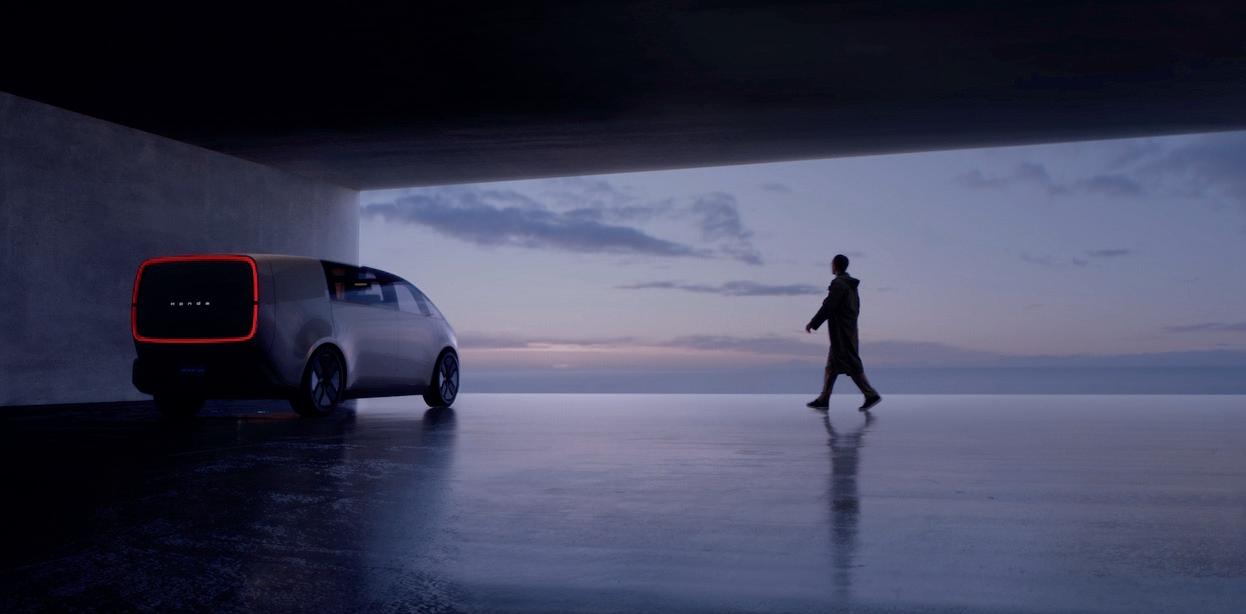
Agency Dentsu/Tokyo
Production Company
Tohokushinsha Film Corporation/Tokyo
Director K iyoshi Ikemune
Casting Director Hiroyuki Nakamura
QLDHydro Hydro is How
Agency Engine Group/Brisbane
Production Company Taxi Film and TV/Brisbane
Director Siobhan Mulready
DP Jake Koning
Yes23 What if I Told You
Agency Clemenger BBDO/Sydney
Production Company Photoplay/Sydney
Director Michael Gupta
DP Gregoire Liere
Kia Kia’s Getting a Ute
Agency Innocean Worldwide/Sydney
Production Company Scoundrel/Sydney
Director Ariel Martin
DP Simon Ozolins
DP Jin Ito
Editor Tetsuya Mukawa
Post Company Omnibus Japan
Sound Design/Audio Post
Black Cat White Cat
AAMI Athletes in the Making
Agency Ogilvy Ausralia/Melbourne
Production Company Scoundrel/Sydney
Director Tim Bullock
DP Jeremy Rouse
HyundaiIoniq Tomorrow Looks Good
Agency Innocean Worldwide/Sydney
Production Company Scoundrel/Sydney
Director James Dive
DP Shelley Farthing-Dawe
Telstra Pointless
Agency 61/Sydney
Production Company FINCH/Sydney
Director Christopher Riggert
DP Ross Giardina
Sound Designer/Audio Mixer Erik Rei
Toyota In the Middle
Agency Saatchi & Saatchi/Sydney
Production Company Scoundrel/Sydney
Director Tim Bullock
DPs Shelley Farthing-Dawe & Danny Ruhlmann
Tyro Tyroflage
Agency Howatson + Co/Sydney
Production Company Scoundrel/Sydney
Director Carl Sundemo
DP Nico Poulsson
WeberBarbequesAustralia and New Zealand
NewQ
Agency Floodlight/Melbourne
Production Company Floodlight/Melbourne
Director Paul Stratton
DP/Editor Henry Williamson
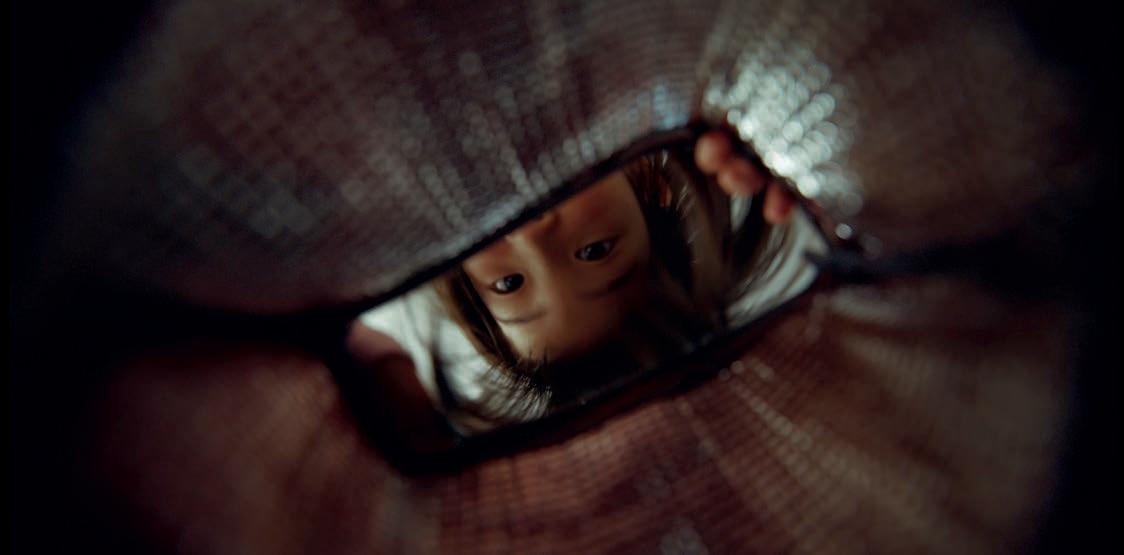
Agency Toboggan Inc.
Production Company Toboggan Inc.
Director Jimmy Vi
Director of Photography Toshihiko Kizu
Sound Design/Audio Post Boom Box Sound
Alipay+ The Power of Small
Agency BBC Studios (BBC StoryWorks APAC)/
Singapore
Production Company The Sweet Shop/Bangkok
Director Zoe McIntosh
DP Natdanai Naksuwan
QuakerOats Dohale Jevan Poshanchi Vaati
Agency Leo Burnett/Mumbai
Production Company Chrome Pictures/Mumbai
Director Hemant Bhandari
DP Tapan Basu
Michael Hill Jeweller A Christmas to Remember
Agency CHEP Network/Brisbane
Production Company Larchmont/Auckland
Director Noah Marshall
DP Marty Williams
NIO Wind Talk
Agency Colorful Nature Films/Beijing, China
Production Company Colorful Nature Films/Beijing, China
Director/DP Zhong Jie
Toyota Team Toyota Asia | Our People Are Our Strength
Agency Dentsu/Singapore
Production Company
Directors Think Tank/Singapore
Director Nichola Lam
DP Charlie Balch
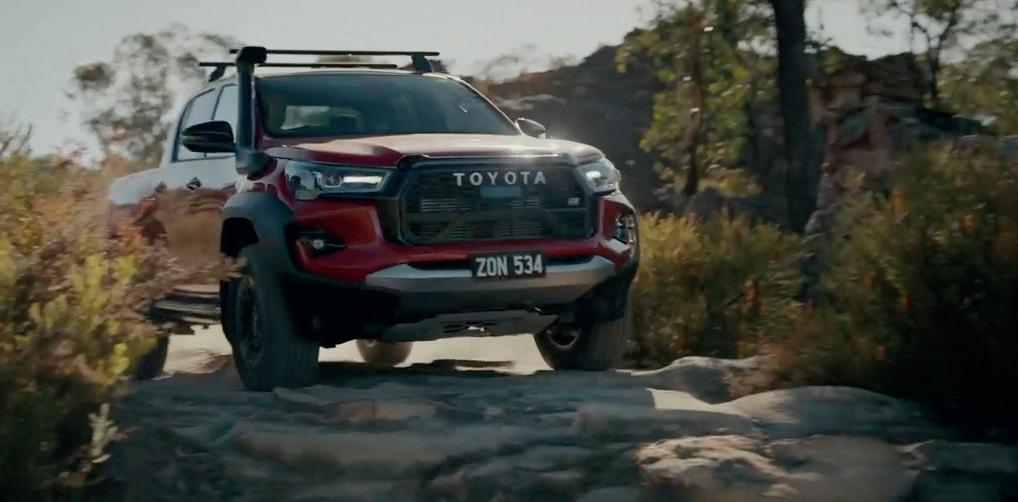
Agency Saatchi & Saatchi/Sydney
Production Company Scoundrel/Sydney
Director Tim Bullock
Chief Creative O cer Steve Cochran
Creative Director
Piero Ruzzene, Kerem Sekerci
Apple Relax, It’s iPhone - Fall Deep
Agency TBWA\Media Arts Lab APAC/Bangkok
Production Company Factory 01/Bankgkok
Director Wuthisak Anarnkaporn
Kia Australia Kia’s Getting a Ute
Agency Innocean Australia/Sydney
Production Company Scoundrel/Sydney
Director Ariel Martin
Asia Pacific 2024
Creatives
Jake Blood, Hannah Payton, Mac Wright
Head of Design Tod Duke-Yonge
DoP Michael Demosthenous, Shelley FarthingDawe, Danny Ruhlmann
Executive Producers Adrian Shapiro, Kate
AAMI Athletes in the Making
Agency Ogilvy Ausralia/Melbourne
Production Company Scoundrel/Sydney
Director Tim Bullock
Gatorade Water Wasn’t Made For This
Agency Akcelo/Sydney
Production Company Taxi Film Production/Brisbane
Director Justin McMillan
Guinness A Whole Universe
Agency FRED & FARID/Shanghai
Production Company DR Film/Shanghai
Director Lulu LOLO
NRMA Insurance Until Then - Hailstorm
Agency Bear Meets Eagle On Fire/Sydney
Production Company Revolver/Sydney
Director Steve Rogers
Gooden, Louis Molines
Director of Production Michael Demosthenous
Producer Claire Kelly, Luke Della Santa
Editor/Post Production Adam Wills
Sound MassiveMusic/Sydney
Music Big Sync Music/Sydney
OPPO Can I Have My Phone Back?
Agency OPPO/Shenzhen
Production Company HAMLET/Brussels
Director Tucker Bliss
ROLLiN’ Insurance Smooth
Agency Bear Meets Eagle On Fire/Sydney
Production Company Division/Sydney
Director Mrzyk&Moriceau
Sunday Cut O
Agency Flash Bomber/Bangkok
Production Company Factory01/Bangkok
Director Wuthisak Anarnkaporn
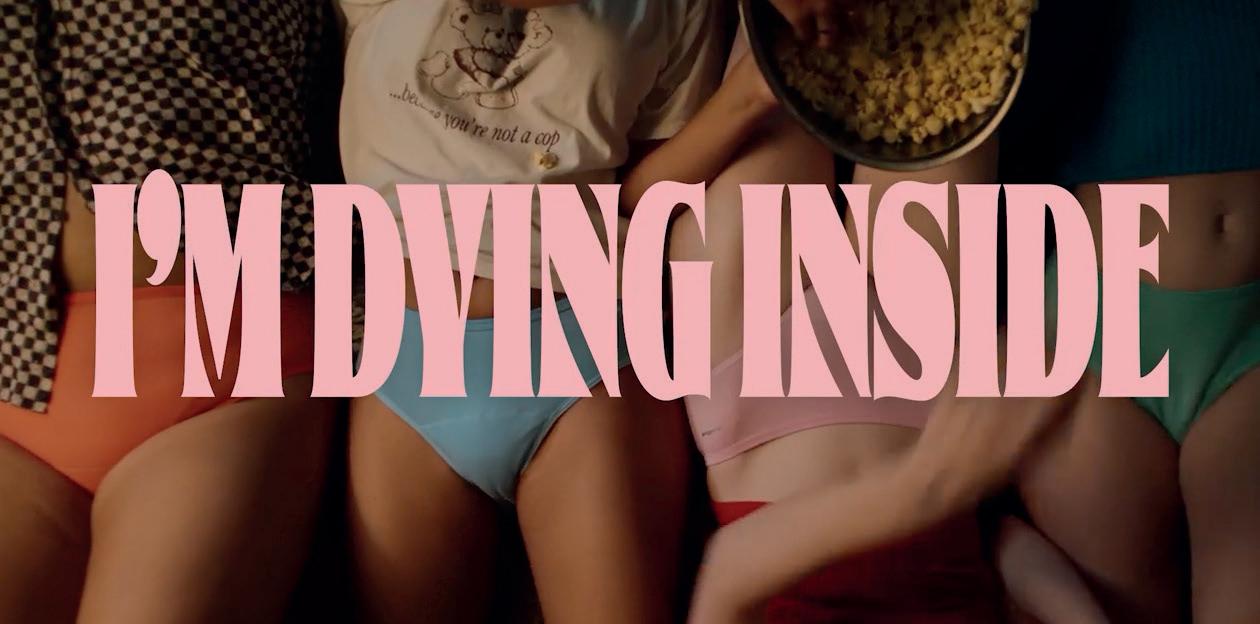
Agency Howatson+Company/Sydney
Production Company FINCH/Sydney
Director Arundati Thandur
Head of Production Holly Alexander
Head of Design Caroline Gilroy
Telstra Better on a Better Mobile NetworkCampaign
Agency Bear Meets Eagle On Fire/Sydney
Production Company Revolver x Biscuit Filmworks
Director Je Low
TAB Our Sport is Sport
Agency The Monkeys | Part Of Accenture Song/ Sydney
Production Company FINCH/Sydney
Director Nick Ball
Art Director Elly Pipiciello
Copywriter Katy Hulton
Executive Producer Loren Bradley
Producer Amy Dymond
Production Designer Alice Lanagan
Acko ACKO Platinum Health Plan
Agency Leo Burnett/Mumbai
Production Company Prodigious/Mumbai
Director Rajkumar Hirani
Michael Hill Jeweller A Christmas to Remember
Agency CHEP Network/Brisbane
Production Company Larchmont/Auckland
Director Noah Marshall
SK-II My Destiny, My Choice
Agency Forsman & Bodenfors/Singapore
Production Company P.I.G./Shanghai
Director He Wenchao
Casting Company FINCH/Sydney
Managing Director Corey Esse
Stylist Lynn Mathuthu
DP Tom Black
Edit Company Howatson+Company/Sydney
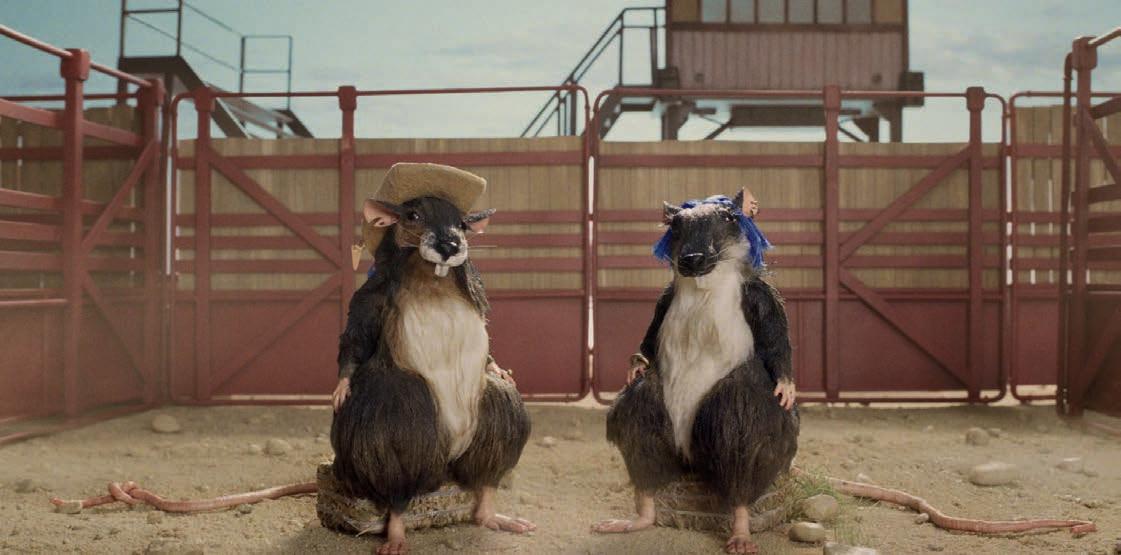
Agency Bear Meets Eagle On Fire/Sydney
Production Company
Revolver x Biscuit Filmworks
Director Je Low
Chief Creative O cer Micah Walker
Pepperstone Don’t Be Fine With It - Tennis
Agency Saatchi & Saatchi NZ/Auckland
Production Company FINCH/Sydney
Director Benji Weinstein
TAB Our Sport is Sport
Agency The Monkeys | Part Of Accenture Song/ Sydney
Production Company FINCH/Sydney
Director Nick Ball
Copywriter Elizabeth Wood
Senior Producer Emma Wright
Executive Producer Pip Smart, Nicoletta
Rousianos, Vic Lovejoy
Producer Caroline Kruck, Adrian Konarski
Casting Company Citizen Jane Casting
DP Jan Pawel Trzaska
Post Production The Editors Post Production/Editing The Editors, Electric Theatre Collective Sound Design Rumble Studios
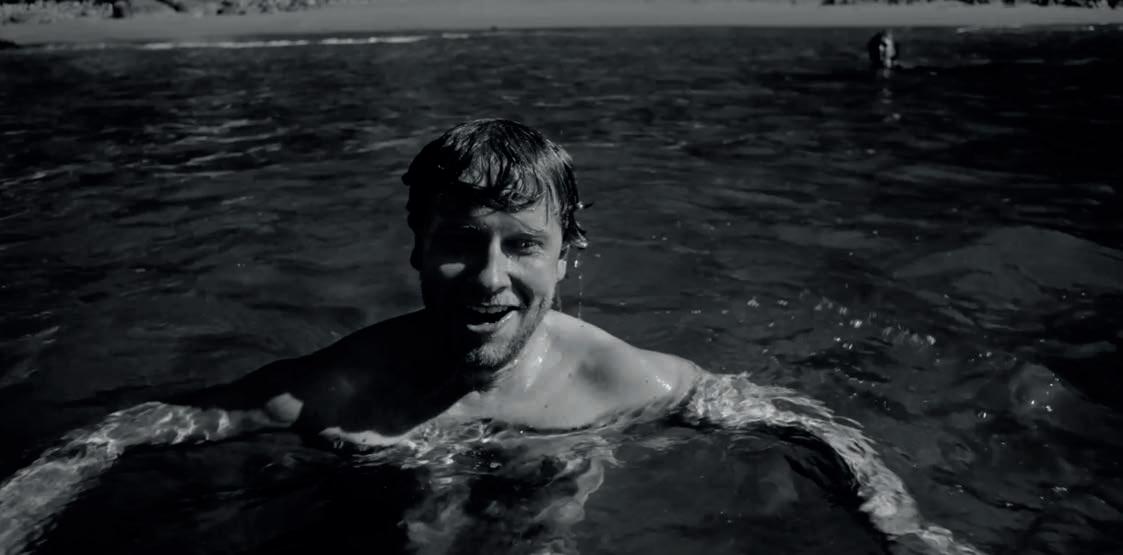
Agency BMF/Sydney
Production Company FINCH/Sydney
Director Kyra Bartley
Chief Creative O cer Alex Derwin
Associate Creative Director Leila Cranswick
Associate Creative Director Lisa Down
Telstra Better on a Better Mobile Network
(Busselton Jetty, Naracoorte, Rocky Cape and Warmun)
Agency Bear Meets Eagle On Fire/Sydney
Production Company Revolver x Biscuit Filmworks
Director Je Low
Uber Get Almost Almost Anything - Magic
Agency Special Group/Sydney
Production Company The Sweetshop/Sydney
Director Damien Shatford
AAMI Athletes in the Making
Agency Ogilvy Ausralia/Melbourne
Production Company Scoundrel/Sydney
Director Tim Bullock
Asia Pacific 2024
Director of Production Karen Liddle
Design Director Iva Madderom
Design Producer Haydon Fanning
Executive Producers Loren Bradley & Catherine Anderson
Edit Company The Editors
Editor Jack Hutchings
Managing Director Corey Esse
Post Company The Editors
Sound Design Rumble Studios
Sound Engineer Tone Aston
Composer Jeremy Richmond
ABC A Jest, Surely
Agency Howatson+Company/Sydney
Production Company FINCH/Sydney
Director Sam Hibbard
Apple Relax, It’s iPhone - Wreckshaw
Agency TBWA\Media Arts Lab APAC/India
Production Company Nirvana Film/India
Director Prakash Varma
Apple Swoop
Agency TBWA\Media Arts Lab/Sydney
Production Company Scoundrel/Sydney
Director Tom Noakes
McDonald’s Driver Tax
Agency DDB Aotearoa/Auckland
Production Company Scoundrel/Sydney
Director Ric Cantor
Telstra Pointless
Agency +61/Sydney
Production Company FINCH/Sydney
Director Christopher Riggert
Tyro Tyroflage
Agency Howatson + Co/Sydney
Production Company Scoundrel/Sydney
Director Carl Sundemo
Uber Get Almost Almost Anything - Period
Romance
Agency Special Group/Sydney
Production Company The Sweetshop/Sydney
Director Damien Shatford
UberReserve Birthday Party
Agency Special Group/Sydney
Production Company MOFA/Sydney
Director Yianni Warnock
From 61-seconds to three-minutes inc
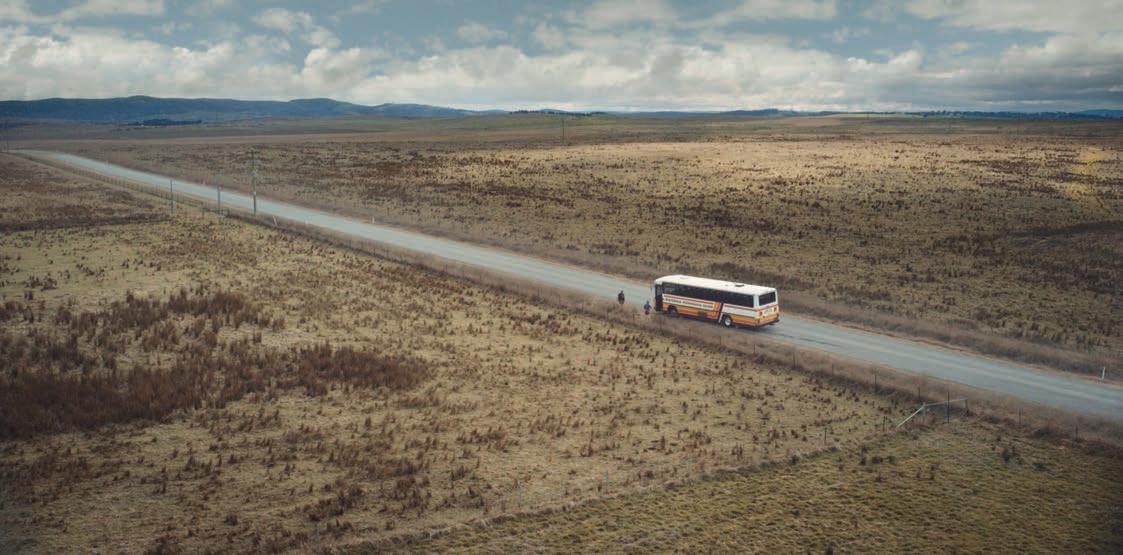
Agency The Monkeys, Part of Accenture Song/ Sydney
Production Company Exit Films/Sydney
Director Mark Molloy, Exit Films
Production Designer Steven Jones Evans
TAB Our Sport is Sport
Agency The Monkeys | Part Of Accenture Song/ Sydney
Production Company FINCH/Sydney
Director Nick Ball
Kia Kia’s Getting A Ute
Agency Innocean Worldwide/Sydney
Production Company Scoundrel/Sydney
Director Ariel Martin
Executive Producer Leah Churchill-Brown
Executive Creative Director Declan Cahill
DP Jeremy Rouse
Editing The Editors
Editor Jack Hutchings
Apple Relax, It’s iPhone - Fall Deep
Agency TBWA\Media Arts Lab APAC/Thailand
Production Company Factory 01/Bangkok
Director Wuthisak Anarnkaporn
Forty Winks Go to Better Sleep
Agency Akcelo/Sydney
Production Company Rabbit/Sydney
Director Owen Trevor
Michael Hill Jeweller A Christmas to Remember
Agency CHEP Network/Brisbane
Production Company Larchmont/Auckland
Director Noah Marshall
Pedigree Dream Maker
Agency Colenso BBDO/Auckland
Production Company Good Oil Films/Auckland
Director Joel Kefalli
Asia Pacific 2024
Audio/Sound Design MassiveMusic/Sydney
Music Level Two Music
Toyota Team Toyota Asia | Our People Are Our Strength
Agency Dentsu Singapore/Singapore
Production Company Directors Think Tank/Singapore
Director Nichola Lam
Toyota HiLux In the Middle
Agency Saatchi & Saatchi/Sydney
Production Company Scoundrel/Sydney
Director Tim Bullock
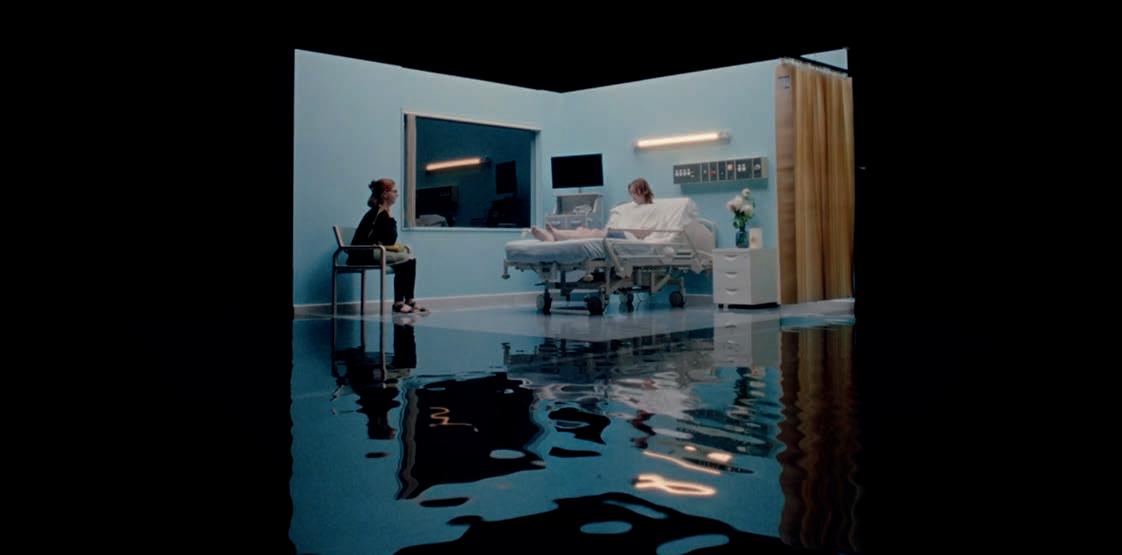
Agency The Royals/Melbourne
Production Company FINCH/Sydney
Director Michael Hili
Executive Creative Director Stuart Turner
Senior Producer Naomi Iland
Creative Director Kevin Pease
Modibodi I’m Dying Inside
Agency Howatson+Company/Sydney
Production Company FINCH/Sydney
Director Arundati Thandur
Art Directors Liam Jenkins, Joost Van Der
Schoot, Sam Lukins
Copywriter Siobhan Jo e & Max Maclean
Executive Producer Loren Bradley
Producer Bryce Lintern
Casting Peta Einberg
Alipay+ The Power of Small
Agency BBC Studios (BBC StoryWorks APAC)/
Singapore
Production Company The Sweet Shop/Bangkok
Director Zoe McIntosh
Hospitals United for Sick Kids Lightyears from Home
Agency CHEP Network/Sydney
Production Company Finch/Sydney
Director Matt von Trott
Maria Fertility Hospital Tae-Mong
Agency Paulus/Seoul
Production Company Paulus/Seoul
Director Yohan Jang
ProductionDesigner Charles Davis
Editor Delaney Murray
Post Production Atticus
DP Sean Ryan
Sound Design Kiah Gossner
Quaker Oats Dohale Jevan Poshanchi Vaati
Agency Leo Burnett/Mumbai
Production Company Chrome Pictures/Mumbai
Director Hemant Bhandari
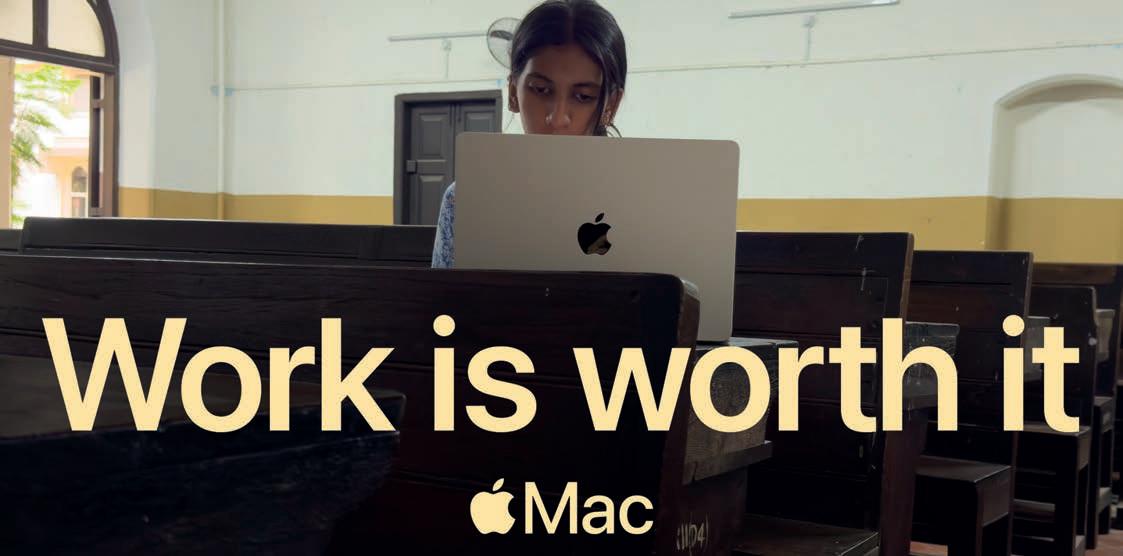
Agency TBWA\Media Arts Lab/India
Production Company Holy Momma/India
Director Mackenzie Sheppard
DP Jeremy Snell
Silver & Bronze Winners
Grand Seiko Grand Seiko - Alive in Time
Agency Hakuhodo Global/Tokyo
Production Company AOI Pro/Tokyo
Director Chris Rudz
Editor Andrew Holmes
RebelSport Sport is Calling
Agency The Monkeys/Melbourne
Production Company FINCH/Melbourne
Director Christopher Nelius
Editor Andrew Holmes
AAMI Athletes in the Making
Agency Ogilvy Ausralia/Melbourne
Production Company Scoundrel/Sydney
Director Tim Bullock
Editor Adam Wills, Scoundrel
Breitling Chronomat B01 42 Triumph
Agency Mojave/Sydney
Production Company Mojave/Sydney
Director Lincoln Caplice
Nike World of Warmth
Agency Wieden + Kennedy/Shanghai
Production Company HAMLET/Shanghai
Director Henry Scholfield
Editor (UK) Sam Bould
Editor (Shanghai) Bing Feng
UberEats Get Almost Almost Anything - Magic
Agency Special Australia/Sydney
Production Company The Sweetshop/Sydney
Director Damien Shatford
Editor Luke Haigh, ARC EDIT
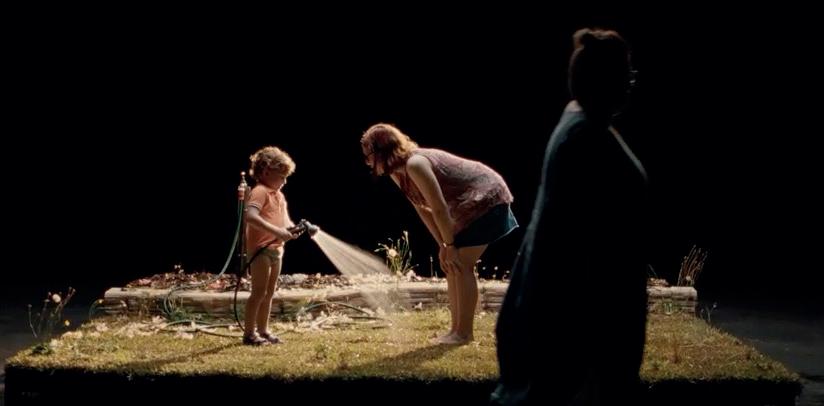
Agency The Royals/Melbourne
Production Company FINCH/Sydney
Director Michael Hili
Editor Delaney Murray
Editing Company Atticus
Post Production Atticus
Sydney Opera House Play It Safe
Agency The Monkeys/Sydney
Production Company Revolver/Sydney
Director Kim Gehrig
Editors Elise Butt &Tom Lindsay
Editing Companies ARC EDIT & Trim
Mandarin Oriental Mandarin Oriental
Agency Forsman & Bodenfors/Singapore
Production Company Heckler Singapore/Singapore
Director Kyra Bartley
Editor Andrew Holmes, Heckler
Executive Creative Director Stuart Turner
Senior Producer Naomi Iland
Creative Director Kevin Pease
Art Directors Liam Jenkins, Joost Van Der
Schoot, Sam Lukins
Copywriter Siobhan Jo e & Max Maclean
KIA Kia’s Getting A Ute
Agency Innocean Worldwide/Sydney
Production Company Scoundrel/Sydney
Director Ariel Martin
Editor Johanna Scott, ARC EDIT
Speedo Go Full Speedo
Agency Mirimar
Production Company Collider/Sydney
Director Scottie Cameron
Editor Gracie O’Connell, The Editors
TAB Our Sport is Sport
Agency The Monkeys/Sydney
Production Company FINCH/Sydney
Director Nick Ball
Editor Elise Butt, ARC EDIT
Executive Producer Loren Bradley
Producer Bryce Lintern
Casting Peta Einberg
ProductionDesigner Charles Davis
DP Sean Ryan
Sound Design Kiah Gossner
Telstra This is Footy Country
Agency The Monkeys/Sydney
Production Company Exit Films/Sydney
Director Mark Molloy
Editor Jack Hutchings, The Editors
Volkswagen Australia Lets Go for a Drive
Agency DDB/Sydney
Production Company Revolver/Sydney
Director Steve Rogers
Editor Jack Hutchings, The Editors

Agency Wieden + Kennedy/Shanghai
Production Company HAMLET/Shanghai
Director Henry Scholfield
CCOs Ian Toombs & Vivian Yong
Head of Creative Matt Meszaros
Creative Directors Zhong How & Iris Liu
Associate Creative Director Ruby Liang
Head of Production Fang Yuan
Creative Director/EP Yimeng Zhang
Executive Producer Claire Qin
Producer Du y Du
DP Pat Aldinger
Tyro Tyroflage
Agency Howatson + Co/Sydney
Production Company Scoundrel/Sydney
Director Carl Sundemo
Production Design Miha Knific
Telstra Better on a Better Mobile NetworkBroken Hill
Agency Bear Meets Eagle On Fire/Sydney
Production Company Revolver x Biscuit Filmworks
Director Je Low
Production Design Oliver Hogan
AAMI Athletes in the Making
Agency Ogilvy Ausralia/Melbourne
Production Company Scoundrel/Sydney
Director Tim Bullock
Production Design Ruby Mathers
Coca-Cola Epic Night Out
Agency Ogilvy Singapore/Singapore
Production Company HAMLET/Brussels
Director Julien & Quentin
Production Design Boontawee (Tor) Taweepasas
Oreo Oreo Space
Agency Leo Burnett/Mumbai
Production Company Hungary Films via Studio Pop
India/Mumbai
Director Vijay Sawant
Production Design Prodigious Mumbai
Costume Seraphine Design Studio
Asia Pacific 2024
Production Designers Maruxa Alvar, A-Liang & Alec Wei
Edit Company Final Cut/London
VFX Wicked Pixels
Sound Design Mr Pape
Racing and Wagering Western Australia (TABtouch) Got The Touch?
Agency Clemenger BBDO/Sydney
Production Company Sweetshop/Sydney
Director Damien Shatford
Unloan Feel The Crunch
Agency Genero/Sydney
Production Company Clockwork Films/Sydney
Director Jesse James McElroy
Production Design Banjo Fitzsimon
Zupee Zupee - Sadiyon Se India Ka Apna Game
Agency Leo Burnett/Bangalore
Production Company Prodigious
Director Sharat Katariya
Production Design Prodigious Mumbai
Production Designer Sandeep Meher
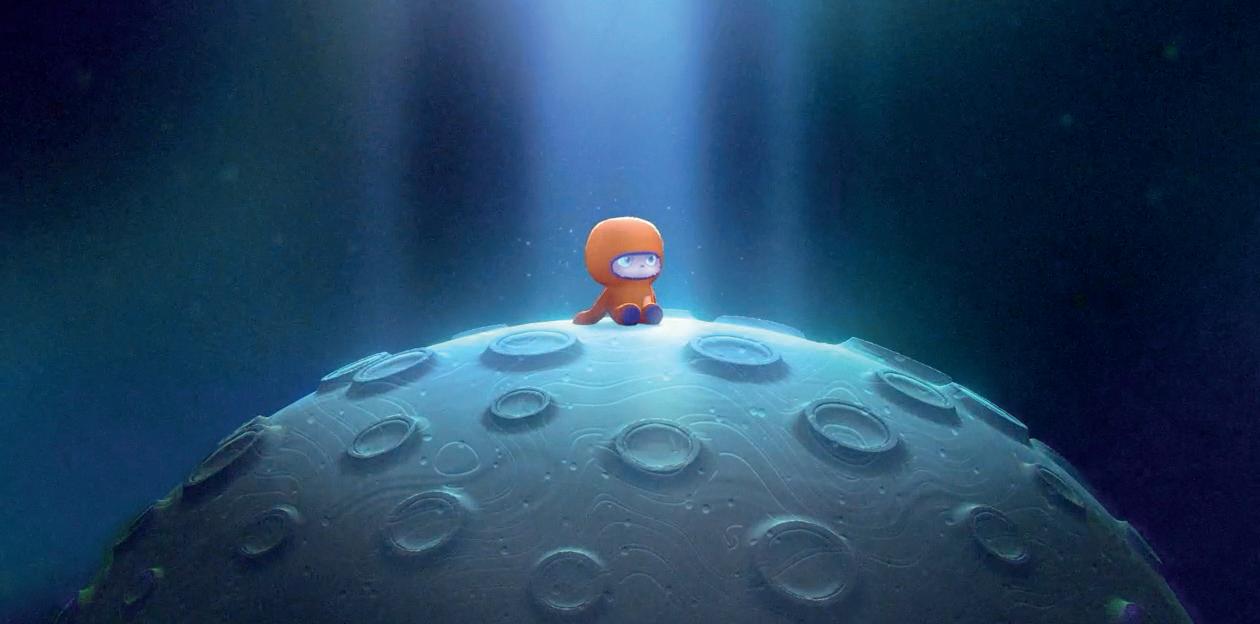
Asia Pacific
2024
Agency CHEP Network/Sydney
Production Company Finch/Sydney
Director Matt von Trott
Copywriters Kate Enright, Katrina Vo, Louise McClean
OnePlus OnePlus 12 | Smooth Beyond Belief
Agency OnePlus creative team/Shenzhen
Production Company Millshanghai/Shanghai
Director Alexei
Sound Design Beijing 20k Miles Culture
Communications
VolkswagenAustralia Lets’s Go for a Drive
Agency DDB/Sydney
Production Company Revolver/Sydney
Director Steve Rogers
Sound Design Tone Aston, Rumble Studios
Creative Directors Will Winter-Irving, Joe Ranallo
Post Company Assembly
Animation Company Assembly
Art Director + Animator Joshua Fourt-Wells
Audi Audi A7L Warriors
Agency Ogilvy&Mather/HongKong
Production Company Shanghai Chengchuang
Advertising
Director Will Wang
Sound Design Beijing 20k Miles Culture
Communications
NRMA Until Then ‘Hailstorm’
Agency Bear Meets Eagle On Fire/Sydney
Production Company Revolver/Sydney
Director Steve Rodgers
Sound Design Tone Aston, Rumble Studios
OPPO OPPO_Good Guys Bad Guys
Production Company Xiongbatianxia_NingBo_Film
culture of media Co.LTD/Zhejiang
Director Adam
Sound Design Beijing 20k Miles Culture
Communications
Animators Frankie Principe, Elliot Stronge
Sound Designer/Audio Mixer Andy Stewart
Music Sonar Music
Original Music Composition Matteo Zingales
Sound Designer Timothy Bridge
ROLLiN Smooth
Agency Bear Meets Eagle On Fire/Sydney
Production Company Revolver/Sydney
Director Mrzyk & Moriceau
Sound Design Tone Aston, Rumble Studios
Telstra Turn O Your Phone
Agency The Monkeys/Sydney, Australia
Production Company Revolver/Sydney, Australia
Director Andreas Nilsson
Sound Design Andy Stewart, Sonar Music
Zeekr Creating the Future Next Legend
Production Company One Shooting/Zhejiang
Director Will Wang
Sound Design Beijing 20k Miles Culture
Communications
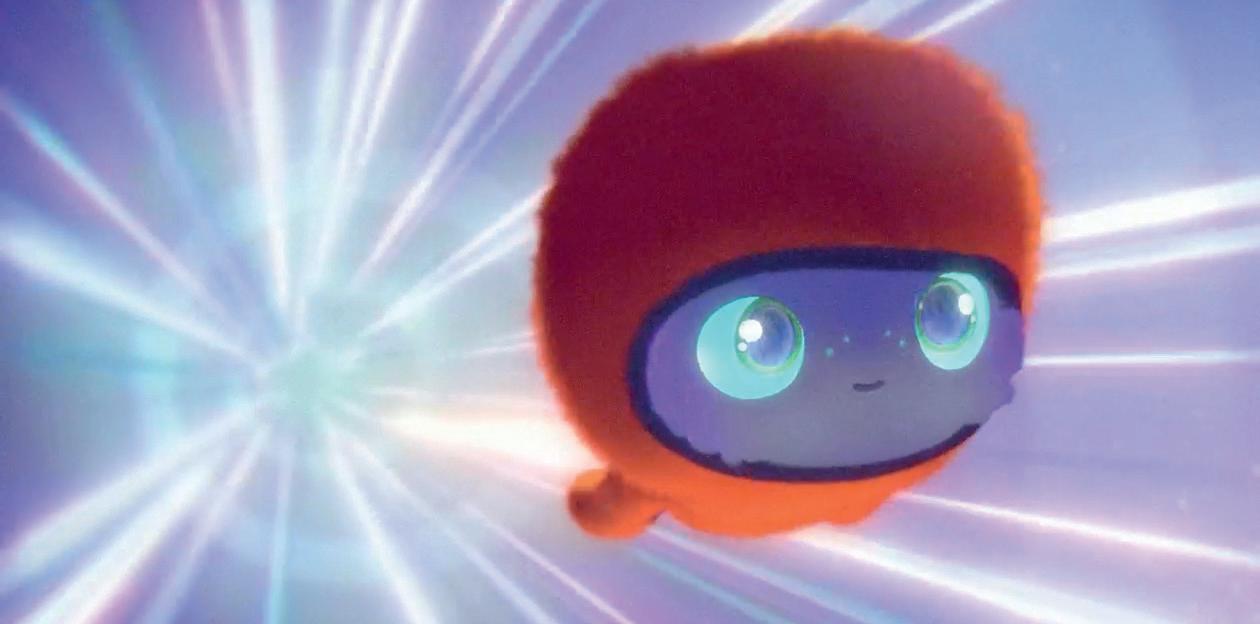
Asia Pacific 2024
Agency CHEP Network/Sydney
Production Company Finch/Sydney
Director Matt von Trott
Creative Directors Will Winter-Irving,
Joe Ranallo
Post Company Assembly
Art Director + Animator Joshua Fourt-Wells
Animators Frankie Principe, Elliot Stronge
AAMI Athletes in the Making
Sound Designer/Audio Mixer Andy Stewart
Music Sonar Music
Original Music Composition Matteo Zingales
Sound Designer Timothy Bridge
Coca-Cola The Real Magic Of Pujo
Agency Ogilvy India/Kolkata
Production Company Hungry Films/Mumbai
Director Vijay Sawant
Sound/Audio Design Subhajit Mukherjee
The Brain Cancer Centre The Public Diagnosis
Agency The Royals/Melbourne
Production Company FINCH/Sydney
Director Michael Hili
Sound/Audio Kiah Gossner
Agency Ogilvy Ausralia/Melbourne
Production Company Scoundrel/Sydney
Director Tim Bullock
Sound/Audio Squeak E Clean Studios
Coca-Cola Epic Night Out
Agency Ogilvy Singapore/Singapore
Production Company HAMLET/Brussels
Director Julien & Quentin
Hong Kong Ballet Hong Kong Ballet
Agency Design Army/Sydney
Production Company Dean AlexanderProductions/
Sydney
Director Dean Alexander
MovemberThe Mo is Calling
Agency DDB/Melbourne
Production Company Revolver/Sydney
Director Matt Devine
Music Company Level Two Music
NRMA Until Then - Hailstorm
Agency Bear Meets Eagle On Fire/Sydney
Production Company Revolver/Sydney
Director Steve Rodgers
Sound/Music Rumble Studios
OPPO For Moments You Have to Get Right
Agency OPPO/Shenzhen
Production Company HAMLET/Brussels
Director Jara Moravec
Sound/Audio Friends With Money
Telstra This is Footy Country
Agency The Monkeys/Sydney
Production Company Exit Films/Sydney
Director Mark Molloy
Music Company Level Two Music
The Kraken Black Spiced Rum Skatedark
Agency Bastion/Sydney
Production Company Photoplay Films/Sydney
Director Lester Jones
Sound/Audio Heckler

Agency Wieden + Kennedy/Shanghai
Production Company HAMLET/Shanghai
Director Henry Scholfield
CCOs Ian Toombs & Vivian Yong
Head of Creative Matt Meszaros
Creative Directors Zhong How & Iris Liu
Associate Creative Director Ruby Liang
Copywriter Nonthapat Cholavit
Head of Production Fang Yuan
EPs Yimeng Zhang &Claire Qin
Producer Du y Du
DP Pat Aldinger
Sony InteractiveEntertainment Japan Play
Has No Limits feat. King Gnu
Agency Six/Tokyo
Production Company Geek Pictures Inc./Tokyo
Director Sojiro Kamatani
VFX/Post Companies Amana, Jitto, LiNDA Inc, LUDENS, WACHAJACK
Animation Company Geek Pictures/Tokyo
Apple Swoop
Agency TBWA\Media Arts Lab/Sydney
Production Company Scoundrel/Sydney
Director Tom Noakes
Post Production ARC EDIT
VFX/Post Production Alt.vfx
Bridgestone Bridgestone Turanza 6i
Agency Leo Burnett/Mumbai
Production Company Prodigious/Mumbai
Director Ashim Ahluwalia
VFX Companies F9 Post Studios, Occult Studios, Post
Stop, Prodigious Mumbai & Rang Studio
Telstra Hello Christmas
Agency The Monkeys/Sydney
Production Company Exit Films/Sydney
Director Glendyn Ivin
VFX Company Alt.vfx
Edit Company Final Cut/London
Editor (UK) Sam Bould
Editor (Shanghai) Bing Feng
Colorist (Germany) Marina Starke
VFX/CGI Wicked Pixels
Sound Design Mr Pape
Unloan Unordinary Home Loans
Agency Unloan/Sydney
Production Company Clockwork Films/Sydney
Director Samuel Bennetts
VFX/Post Company UPP (Universal Production Partners)/London
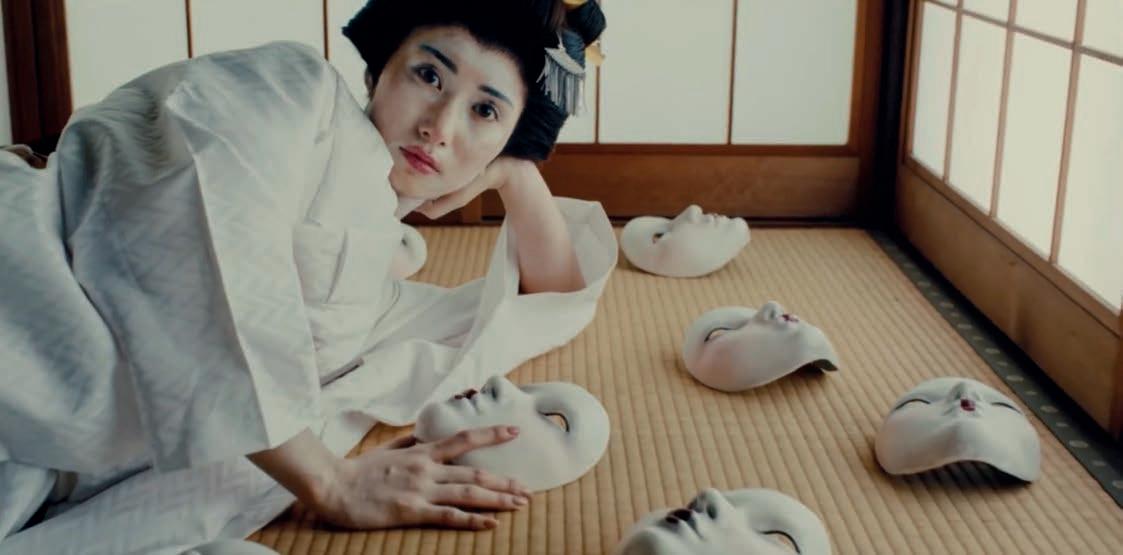
Production Company Mynd
Production Company Wanda Productions
Director Fred de Pontcharra
Executive Producers China Presles, Serge
Thimbre & Peter Grasse
ATARASHII GAKKO! Tokyo Calling
Production Company Cekai
Director Pennacky
Miki Matsubara Mayonaka no Door (Stay With Me)
Production Company Stink/Japan
Director The Fridman Sisters
DPs Julien Lascar & Fabian Parkes
Post Production D-Factory
Post Producer Julien Lanard
VFX VHS Entertainment
Sound Designer Jean-Baptiste Saint-Pol
Apple Shot on iPhone 15 - Don’t Make it
Complicated
Agency TBWA\Media Arts Lab/Ho Chi Minh City
Production Company The P Film Company
Director Bao Nguyen
Arse Kaputt
Production Company Photoplay
Director Sarah Adamson
Mildlife Musica
Production Company MOFA
Director Hayden Sommerville
Production Service Mr+Positive
Line Producer Yukika Tasaki
Servicing Production Company TaProduction
Art Director (Credit Design) Margot Artozqui
Music Company Tallac Records / 92i
Sirotkin Dobriy Zloy
Production Company FMT.Jetlag
Director Oleg Trofim
Winter Swim Late For Love
Production Company Photoplay
Director Michael Gupta
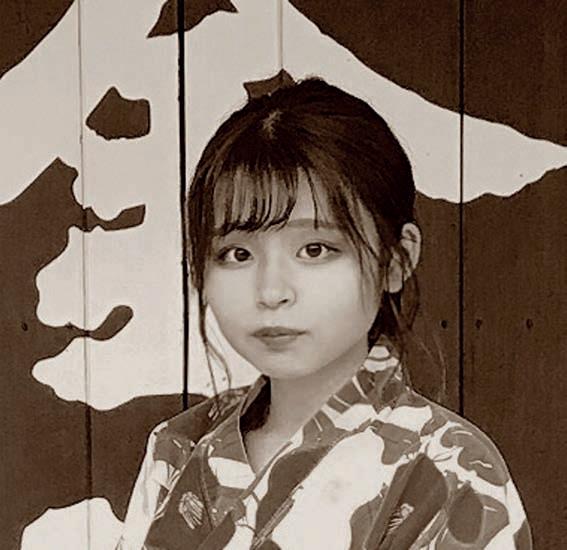
Natsuki Urayama Cut
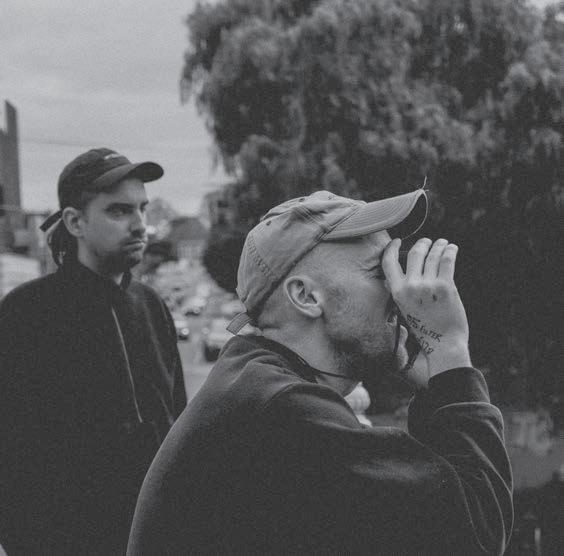
Amyl And The Sni ers U Should Not Being Doing That Crumpler Hero Edit / Sub-3000 Rival Dealer Rival Dealer
Ryotaro Nishi, Field Management Expand
Ryotaro Nishi Upside - Down Genius
Arundati Thandur, Finch
Modibodi I’m Dying Inside
Fish Cheng, Graph Studio
Maxis X The Kancil Sick Six Push-Pull
Fumiya Hara, Field Management Expand
Fumiya Hara Extreme Flashbacker
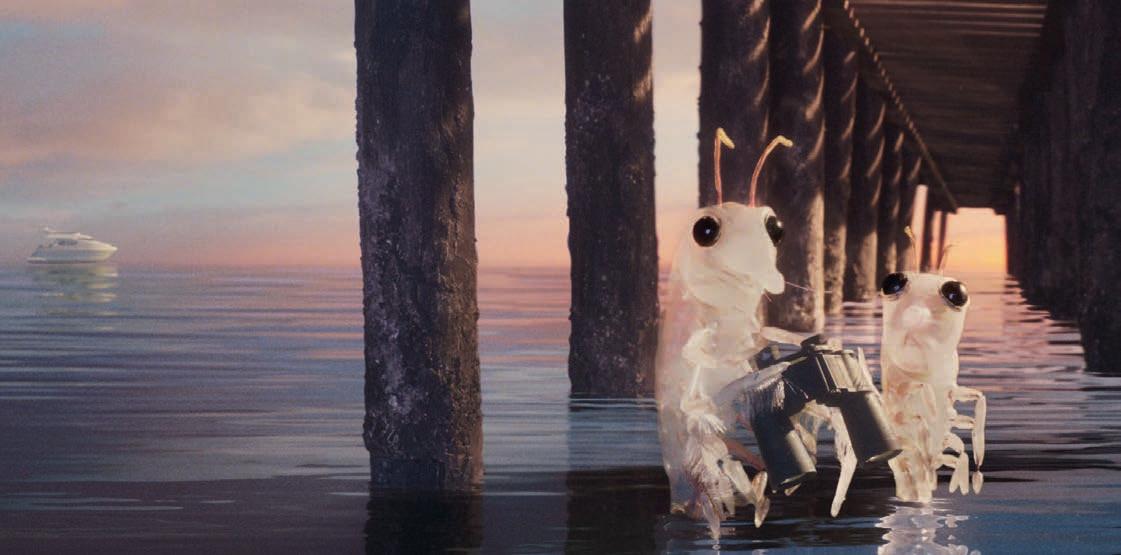
NRMA Insurance
Until Then - Hailstorm
ROLLiN’ Insurance
Smooth
& Bronze Winners
The Monkeys (part of Accenture Song)
Telstra
- Hello Christmas
- This is Footy Country
- Turn O Your Phone
Sydney Opera House
Play It Safe
Nike x Rebel
Sport is Calling
Rebel Sport
Telstra Better on a Better Mobile Network
- Broken Hill
- Burnie
- Busselton Jetty
- Deniliquin
Sport is Calling CHEP Network
Hospitals United for Sick Kids Lightyears from Home
Michael Hill Jeweller A Christmas to Remember
- Naracoorte
- Rocky Cape
- Warmun
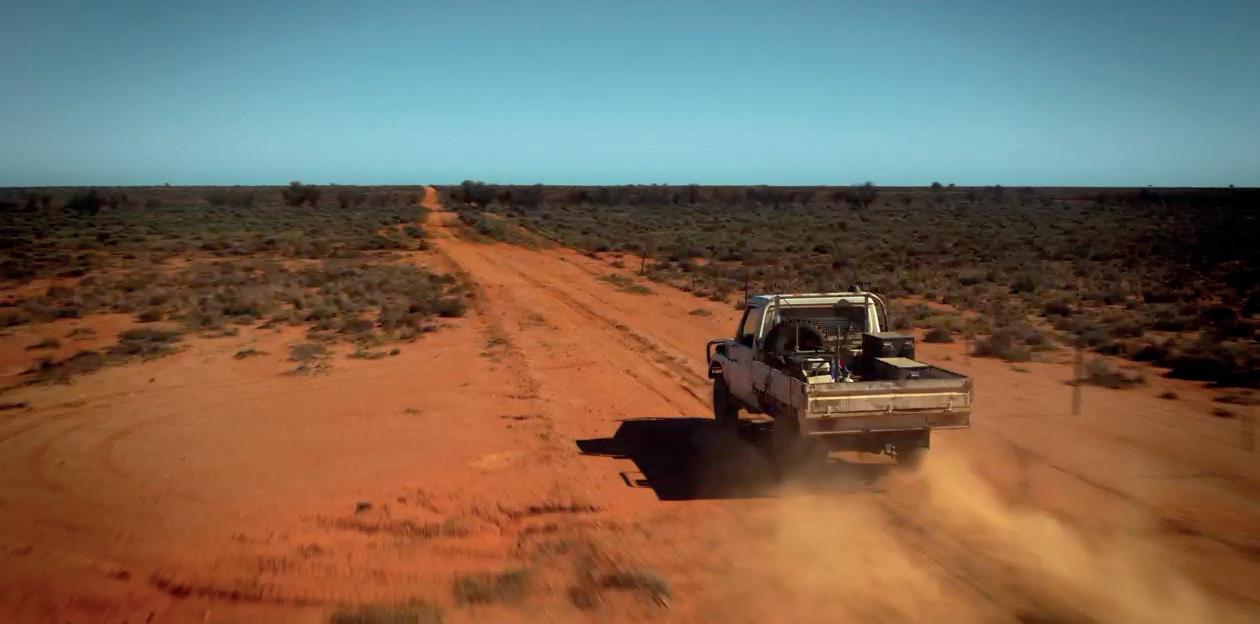
Australian Broadcasting Corporation A Jest, Surely
Hospitals United for Sick Kids Lightyears from Home
Modibodi I’m Dying Inside
Silver & Bronze Winners
Revolver
ANZ DoppelFalcons
Movember The Mo is Calling
NRMA Insurance Until Then - Hailstorm
ROLLiN’ Insurance Smooth
Sydney Opera House Play It Safe
Telstra Better on A Better Network (Compilation)
Telstra Turn O Your Phone
Volkswagen Lets Go for a Drive
Pepperstone Don’t Be Fine With It - Tennis
Rebel Sport Sport is Calling [above]
TAB Our Sport is Sport
Telstra Pointless
The Brain Cancer Centre The Public Diagnosis
Tourism Tasmania Become A Winter Person
Scoundrel
AAMI Athletes in the Making
Apple Swoop
Hyundai IONIQ Tomorrow Looks Good
Kia Kia’s Getting a Ute
McDonald’s Driver Tax
Toyota In the Middle
Tyro Tyroflage
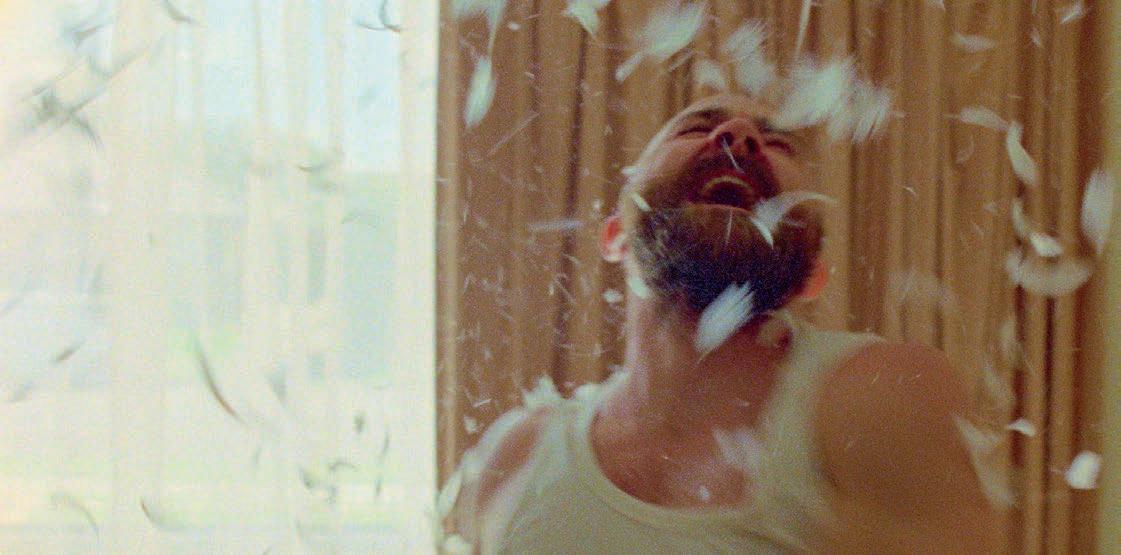
Arse Kaputt [above]
Forty Winks Go to Better Sleep
Gatorade Water Wasn’t Made For This
NRMA Insurance Until Then - Hailstorm
Pedigree Dream Maker
Silver & Bronze Winners
ARC Edit
ANZ DoppelFalcons
Apple Swoop
ABC A Jest, Surely
Kia Kia’s Getting a Ute
Movember The Mo is Calling
Racing and Wagering Western Australia (TABtouch) Got The Touch?
Sydney Opera House Play It Safe
TAB Our Sport is Sport
Uber Birthday Party
Uber Get Almost Almost Anything - Magic
Speedo Go Full Speedo
Telstra Better on A Better Network (Compilation)
Telstra Hello Christmas
Telstra Pointless
Telstra This is Footy Country
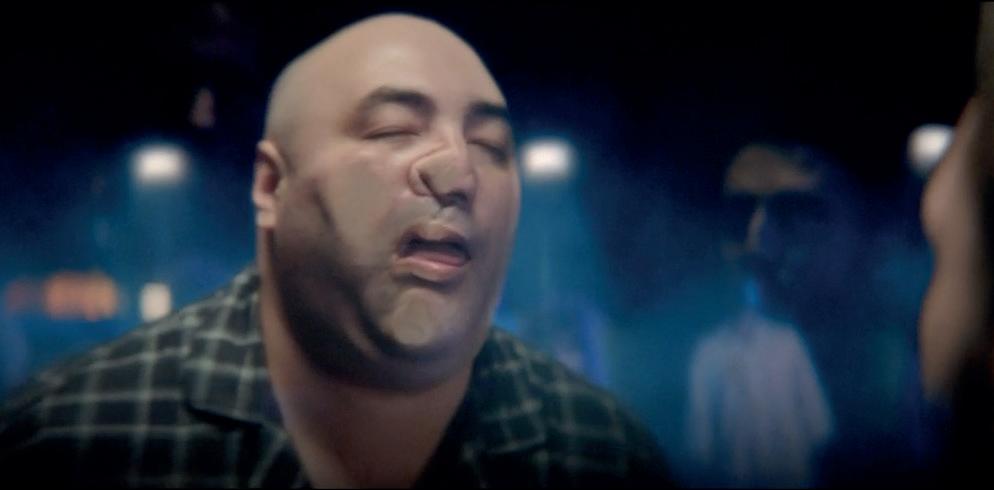
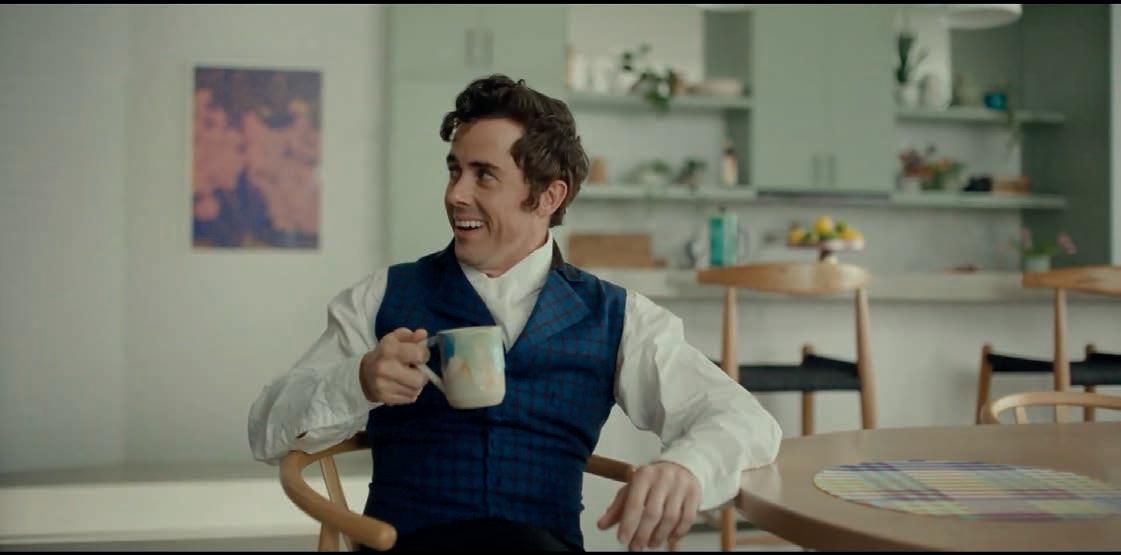
ABMDR (Strength To Give) There’s No One Like Me
ANZ DoppelFalcons
Gatorade Water Wasn’t Made For This HyundaiIONIQ Tomorrow Looks Good
MassiveMusic
Apple Swoop
Kia Kia’s Getting a Ute
TAB Our Sport is Sport
Telstra This is Footy Country
Toyota In the Middle
NRMA Insurance Until Then - Hailstorm
ROLLiN’ Insurance Smooth
Tourism Tasmania Become A Winter Person
Telstra Better on A Better Network (Compilation)
Telstra Pointless
Greenpeace Forests
Hospitals United for Sick Kids
Lightyears from Home
Michael Hill A Christmas to Remember
Uber Get Almost Almost Anything - Magic
- Period Romance [above]
Volkswagen Lets Go for a Drive
Yes23 What if I Told You
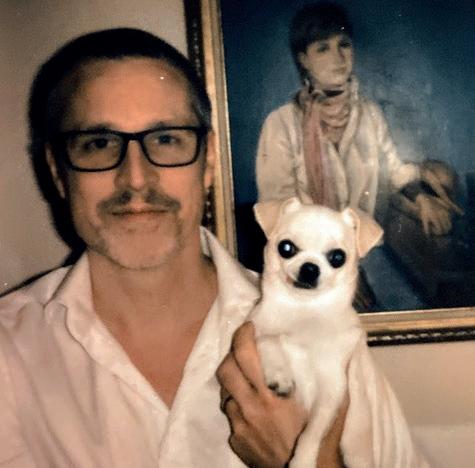
Telstra Better on a Better Mobile Network
- Broken Hill
- Burnie
- Busselton Jetty
- Deniliquin
- Naracoorte - Northcli e - Rocky Cape - Warmun
Silver & Bronze Winners
Arundati Thandur, FINCH
Modibodi I’m Dying Inside EP01
Modibodi I’m Dying Inside EP02
Modibodi I’m Dying Inside EP03
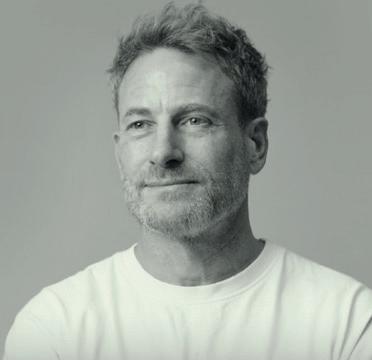
Hospitals United for Sick Kids Lightyears from Home
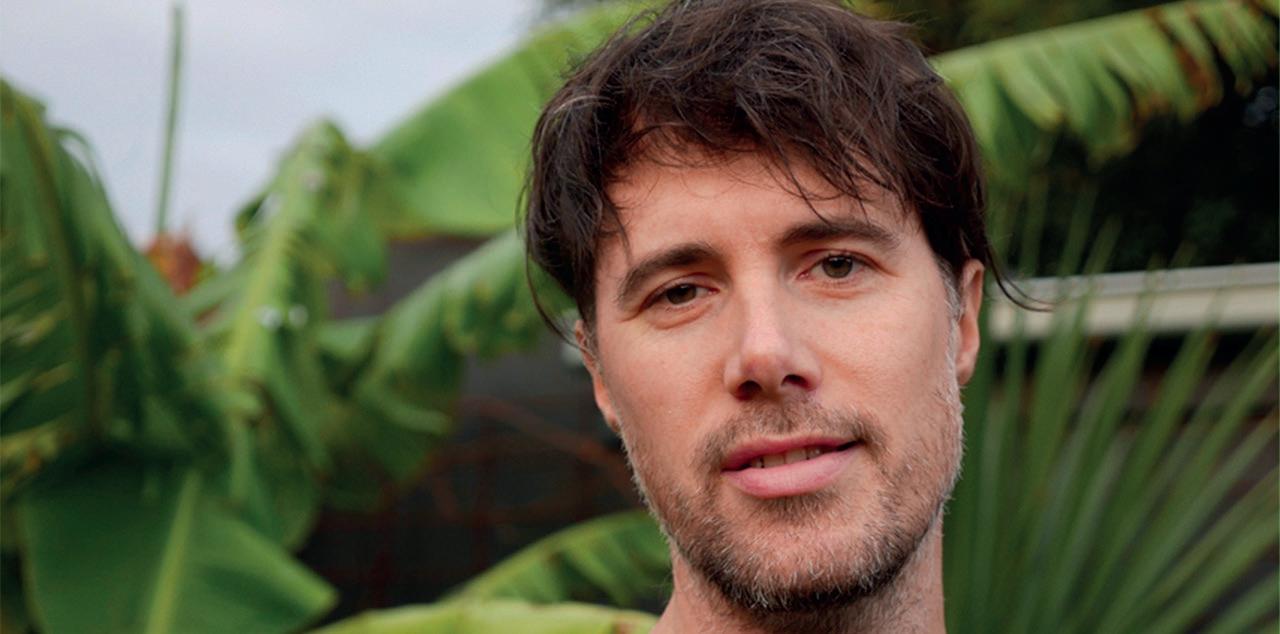
Pepperstone Don’t Be Fine With It - Tennis
Telstra This is Footy Country
Tourism Tasmania Become A Winter Person
Volkswagen Lets Go for a Drive
Silver & Bronze Winners
Elise Butt, ARC Edit
TAB Our Sport is Sport ANZ DoppelFalcons
Australian Broadcasting Corporation A Jest, Surely
Sydney Opera House Play It Safe
King Yong, Howatson+Company
Modibodi I’m Dying Inside
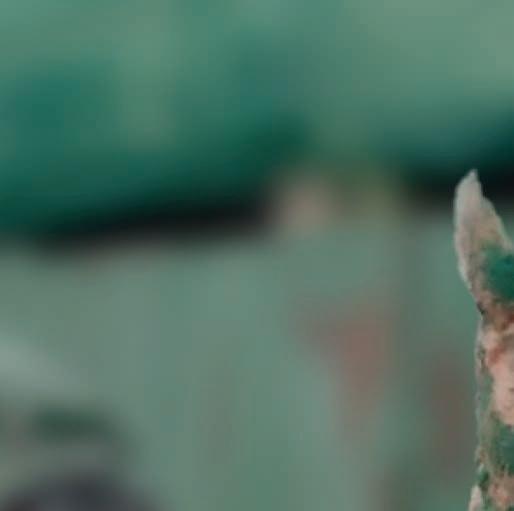































































































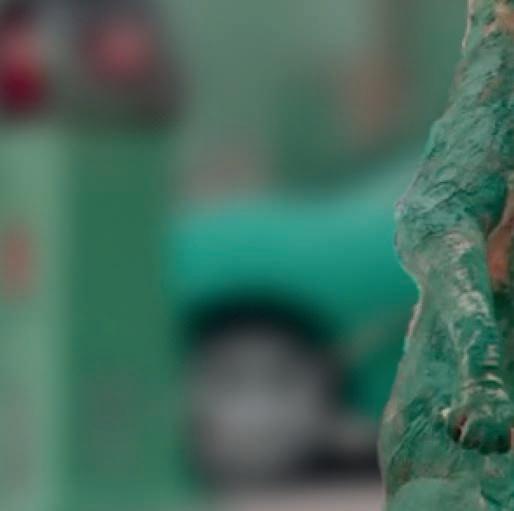



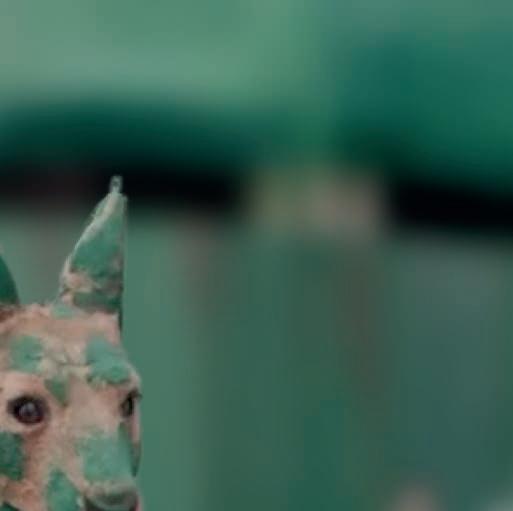






























































































































































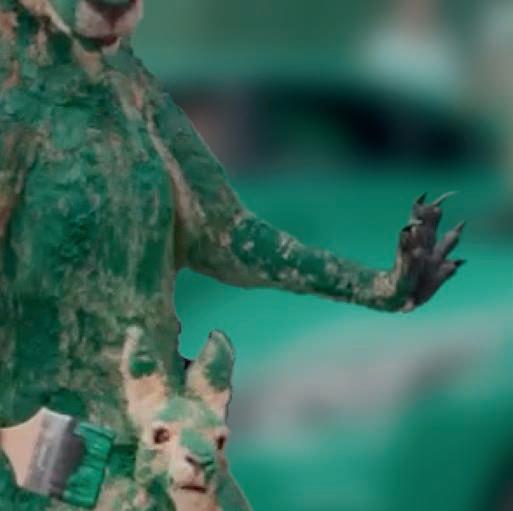
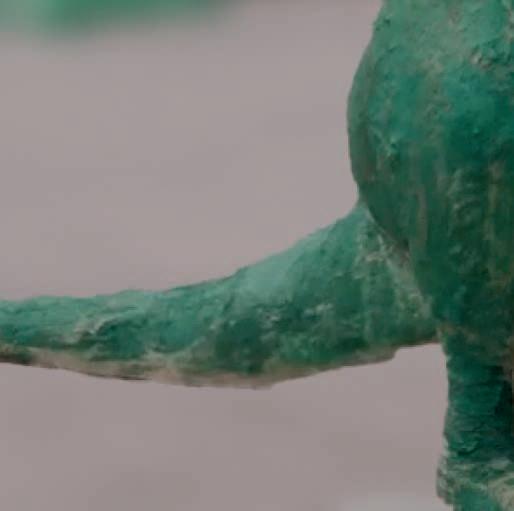






























Thai comedic advertising is a realm where the bizarre meets the brilliant, creating campaigns that resonate far beyond their origins. In this session, moderated by Jamie Madge, Co-Editor of shots, Thasorn Boonyanate, Chief Creative O cer at BBDO Bangkok, joins celebrated directors Un Wuthisak Anarnkaporn and Teerapol Suneta to explore the surreal essence of these globally adored ads.
Through their unique lens, the panellists will unravel how the distinctive blend of absurdity, wit and cultural depth gives Thai advertising its edge - connecting with audiences, subverting tropes and pushing the boundaries of storytelling.
Prepare for an unforgettable deep dive into the strange, surreal, and wildly successful world of Thai comedy, where chaos fuels creativity.
ADFEST, PEACH, Pattaya | Conference Hall
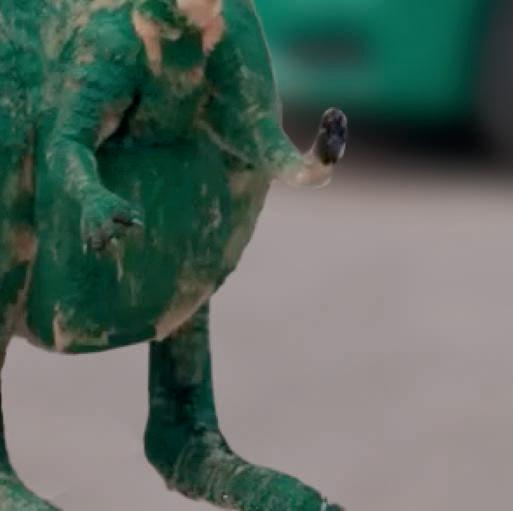

Natsuki Urayama, the young Japanese director of acclaimed short film Cut, opens
up to Tim Cumming about her life, her nascent career and her ultimate goals within Japan’s creative industries.
One of two New Director of the Year winners at the shots Awards APAC 2024, 25-year-old Natsuki Urayama, signed to AOI Pro in Tokyo since 2023, won with her six-minute short, Cut. The film follows a scissor-obsessed young man and a quiet struggle to find place and meaning in his life. Encircled by its own dream logic and subtle poetry of the familiar turning increasingly extraordinary, Cut reassembles everyday settings into a sharp-focused narrative with its own transformational jump-cuts, from school to o ce to street bento stall, where the young man with the scissors cuts out his own reality, to the delight of others. Here, Urayama talks about her background and work, the making of Cut, her creative drive
and how winning a New Director of the Year award impacts her career.
What is your background, and how did you start out as a director?
I was born and raised in Shikoku, the smallest of the four islands of Japan, and a place rich in nature. After studying advertising at Tama Art University, I became a planner and director at AOI Pro in April 2023. I was fascinated by the power advertising has to influence values and shape society. My passion for personally crafting videos that move people’s hearts inspired me to become a director.
At AOI Pro I accompanied senior directors in
their work and cultivated the techniques and expressive skills necessary for planning and directing advertising spots. The knowledge and experience I gained during this time laid the foundation for my receiving shots New Director of the Year award.
What kind of work is being done at AOI Pro?
AOI Pro’s production capabilities cover a wide range of creative content, not only advertising, but also feature films and TV dramas. Under the slogan “AOI MAGIC!”, our philosophy is to create as many moments as possible where films bring magic into this world.

I
wanted to convey the message that people can turn flaws and negatives into positives – which is the strength of
humanity.”
What kind of culture does AOI Pro foster and what, for you, are the company’s standout pieces of work over the past year?
AOI Pro has always nurtured a culture of taking on new challenges. This spirit of exploration and creativity is reflected in the design of the end credits, as well as in various other aspects of Cut
One of the standout works from AOI Pro is Nike Japan’s Imperfect You. The film depicts a teenage girl burdened by the pressure to be ‘perfect’ in today’s world. She meets women from di erent eras of the past and realises what is truly important to her. Through this work, I was impressed not only by the excellence of its visual storytelling, but also by the powerful message it conveys about a woman navigating modern society.
What is your personal favourite of the pieces you have directed, and could you
describe the making of the piece?
My favourite film is Cut, which won the award. In this piece I wanted to convey the message that people can turn flaws and negatives into positives – which is the strength of humanity.
I asked many people for their opinions and advice from the scriptwriting stage, and was conscious of whether the message was being communicated correctly. Throughout the process, I was constantly searching for a better way to express the message.
What’s your view on the work across the APAC region you’ve seen this year?
Among the films I saw this year from the APAC region, many focus on war issues and the violation of women’s rights that are happening across various parts of the world. These films made me more aware
of the magnitude of the problems facing contemporary society.
How would describe the current creative climate in Japan and across the APAC region?
I believe that the creative environment here will be further stimulated by the development of film technology. One example: at the Tokyo Metropolitan Government O ce, which is a landmark of the Japanese capital, the building itself was used for a projection mapping show, Godzilla: Attack On Tokyo, based on the Godzilla feature film. It was projected onto the building at night and created a big buzz.
I believe that utilising new visual technologies such as projection mapping will expand in the future. It is important to always pay attention to the latest film technologies and create advertising content that matches
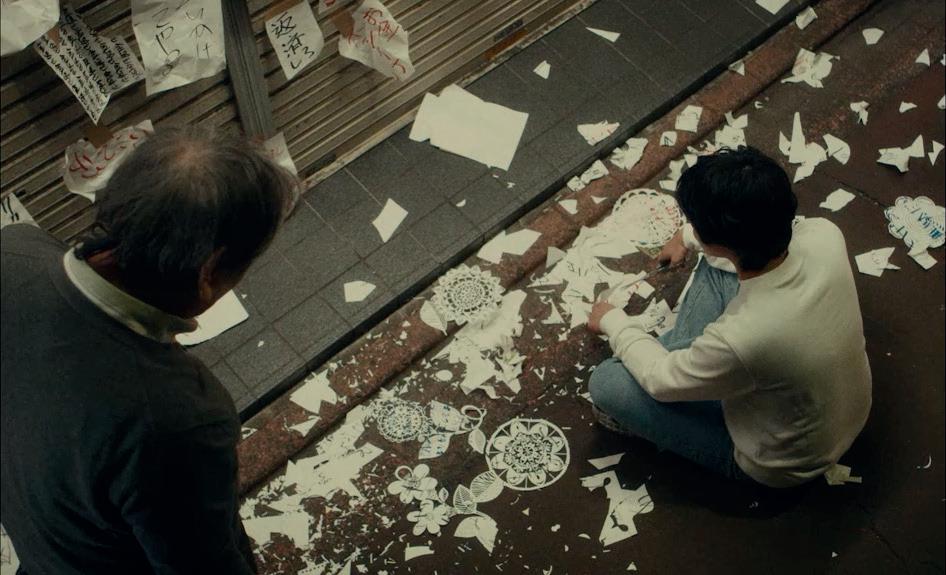

current trends.
How do you think the creative industries might evolve across the APAC region, and in Japan, through 2025?
The Covid-19 pandemic triggered a shift to a society where online interactions are the norm throughout the world, including Japan and the APAC region. This allows for a smoother creative exchange across borders. I believe that cross-border productions will continue to grow, leading to new works that fuse the creative strengths of various countries. This will become a significant advantage.
However, a potential weakness is that, as borderless productions continue to progress around the world, the unique culture and originality of regional filmmaking will fade away.
What do you think will be the key challenges and the opportunities of the coming year?
I believe that next year’s Osaka Expo is an important opportunity for Japan and the APAC region. I’d like to see what kind of exhibits and presentations, especially in the field of visual arts, will be presented at the Expo, which is where creative talents from various countries will come together.
Is there a new generation of ‘AI native’ creatives coming up – and how is the new technology impacting your work as a director?
Around me, AI is being used to improve the e ciency of idea generation and document preparation. I believe that AI is an important tool that will make creative
activities smoother in the future, because it helps articulate ideas more clearly. But I also believe that we should always stay true to our own ideas, and use AI as one ‘tool’ to explain our message clearly, rather than relying on AI entirely. s
Revolver’s Je Low picked up the Director of the Year award at 2024’s shots APAC Awards. He talks to Tim Cumming about his attentiongrabbing Telstra spots, and what needs to go into a campaign in order to extract a laugh.
Low’s retinue of stop-motion spots for Telstra, Australia’s broadband and mobile provider, were wrangled into being with the help of some astute one liners and the dexterity of stop-motion master Tobias Fouracre, whose credits include Isle of Dogs and Fantastic Mr Fox
There are 26 Telstra spots in all, each featuring a critter (prawn, lizard, sheep, parrot, frog, rat… it’s a cast assembled from Aesop’s Fables) extolling the brand’s connective virtues in specific Aussie locations – the likes of Flinders Island,
Northcli , Rocky Cape. And collectively, they won Low a joint Best Director gong at shots 2024 APAC Awards.
It’s not Low’s first rodeo. Wind back the clock to 2015, and there he is, accepting a shots Director of the Year award for his interactive Skittles Cat campaign with BBDO Toronto (just place your fingertip on the on-screen Skittle and let the feline do the work).
“Awards must have an invisible impact on us, right?” he says of his gong hoard. “It’s certainly not a dramatic impact – I still get my ass handed to me by other directors even
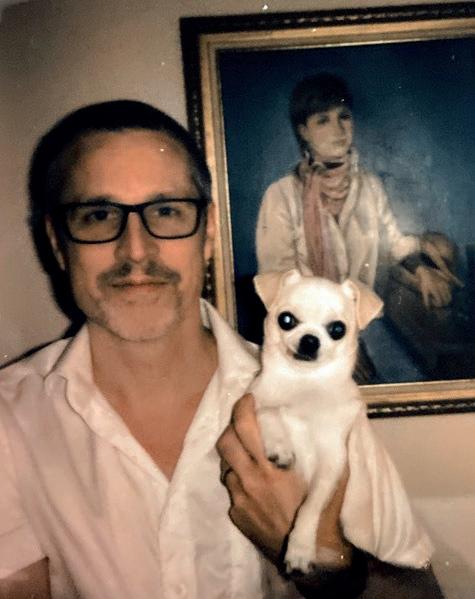
after winning... but it’s flattering and amazing to me that I am not a karaoke host in deep French Canada, divorced and living above a bar. It’s not false modesty to say that I truly cannot believe my luck.”
All in all, it’s not a bad result for a former bassist and keyboard jockey for a bunch of bar bands and Bowie tribute acts playing to liquored-up students. Low got his break by selling a PC to a customer who turned out to be a production manager in search of an assistant. Like music, it seems, a good career break is all about timing.
“It’s a common thing for people in comedy to be failed musicians, in some way, I’ve found,” remarks Low. “It must have something to do with rhythm.” He credits his years as a musician for one of his attributes as a director of comedy. “I do tend to work more with my ears than my eyes,” he says, “at least up front. When I hear a thing, I can see it, and because I spent so much time in recording studios, I know how to get a sound design going pretty fast – and that becomes the
basis for deciding what shots will get the most from a given piece of writing.”
Looking back at the Telstra spots, he hands a lot of credit to Mikah Walker’s Bear Meets Eagle on Fire (see page 18). “The agency was so kind to me on this job. They gave me hard-won ingredients and I was just tasked with making it funnier. I mean, that’s a dream if you’re me. I would take whatever animal and place they had predetermined, and just perform dialogue into a microphone until I hit some bits I felt were a good way to get a laugh. Human truths rather than jokes was sort of how I tried to think of it. Relatable and complex emotional lives inside a childlike visual. It’s a place I feel like I understand pretty well.”
One of the first spots with which he felt he was hitting his stride as a director was the fruity weirdness of his General Mills Fruit Snacks Cocoon spot from 2011. “It was disturbing but had the subtext of a boy ‘coming out of the closet’. I remember being a bit disappointed that I was good at THAT
and not something that looked more like a Paul Thomas Anderson film. I have a cartoon mind – but I don’t want that kind of mind.
“I never had a ‘big break’,” he continues. “It’s mostly all just been a brick-by-brick sort of thing. I will say, though, that my personal world view puts a ton of emphasis on luck. Everything about me and any success I’ve had is, at a minimum, 88 per cent luck. One hundred per cent if you consider the fact that I didn’t author how my brain works.”
When it comes to how comedy works, and works in the service of a brand, Low has some basic tenets. First o , he says: “The writing. Not funny on paper = not funny ever.” And it’s in the writing that he finds his own bottom line from which to make something good. “The way I work now is to ask myself, ‘What would you shoot if this had to be great?’ rather than anything resembling, ‘How do I get this job?’. This forces me to write, or at least to rearrange, to suit my brain. And if I can’t adjust the writing at all, I shouldn’t be on that job and they should hire someone
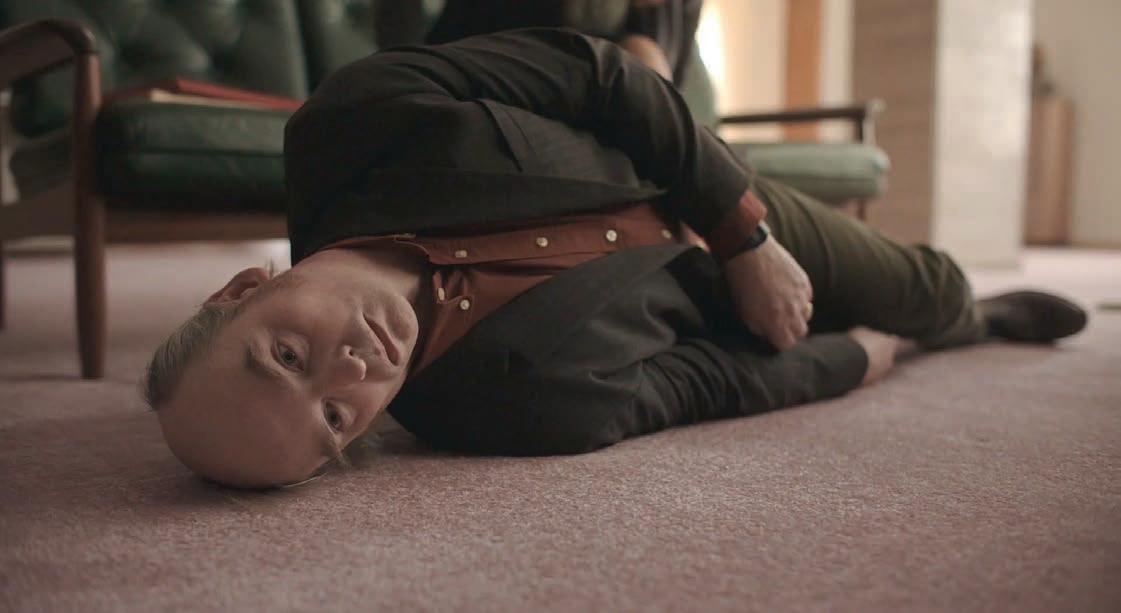
3 Telstra Better Network - Naracoorte
4 Telstra Better Network - Wurman
5 Telstra Better Network - Deniliquin
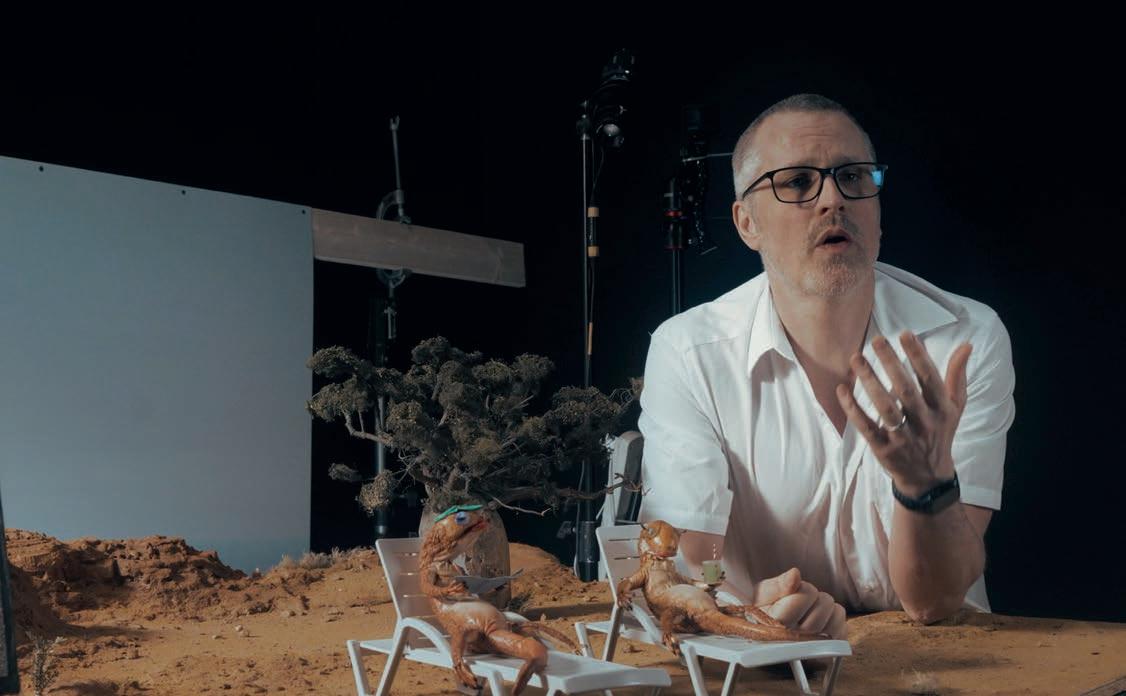
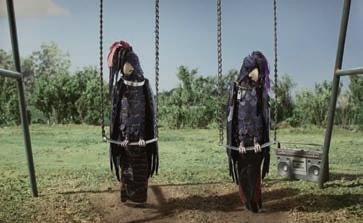
else that’s good at just executing what’s on the page.”
Servicing both the brand and the comedy requires deft creative footwork. “There are competing agendas,” he agrees. “I want a thing to be funny or entertaining. They want to sell a thing. These two objectives often end up tilted too far towards the selling a thing.” Comedy and being funny is a serious business, especially when it comes to hitting the funny bone in the confines of a 15-, 30- or 60-second spot. “Advertising comedy is a weird thing. When it works it behaves much more like curated journalism than ‘comedy’ as we normally think of it. Your audience
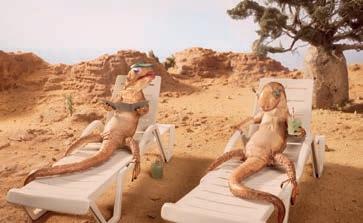
hates you and you have 27 seconds (longer if you’re lucky) to set it up and make it funny. This is what we’re working within and so it adds up that it’s very di erent from making sketch comedy, or a movie or something. This is why non-ad directors tend to make awful ads. They aren’t good at it. Why should they be?”
The ones who are good at it, he adds, include Revolver’s Co-Founder Steve Rogers, whose big hitters include the Tourism Australia Dundee Super Bowl spot from 2018, which corralled a star-studded cast that included Margot Robbie, Hugh Jackman and Russell Crowe, and was watched by a 100 million
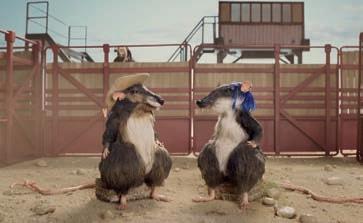
people. Of his own work, however, he’s more reticent in choosing a favourite. “Once I’ve seen the final cut, that’s generally the last time I think about a thing I did,” he admits. “Although I do find that my stop-motion stu feels like my rhythm, so it’s easy for me to not hate it upon re-watch. I like the snake guy,” he adds. “That was funny.” s
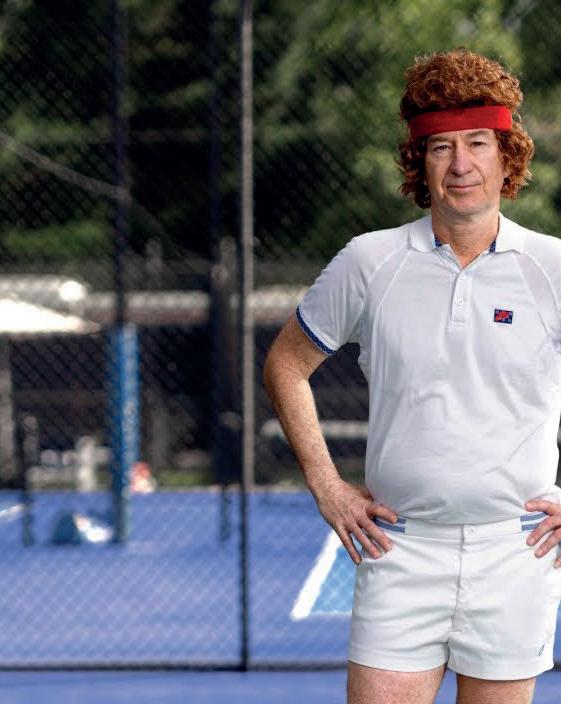
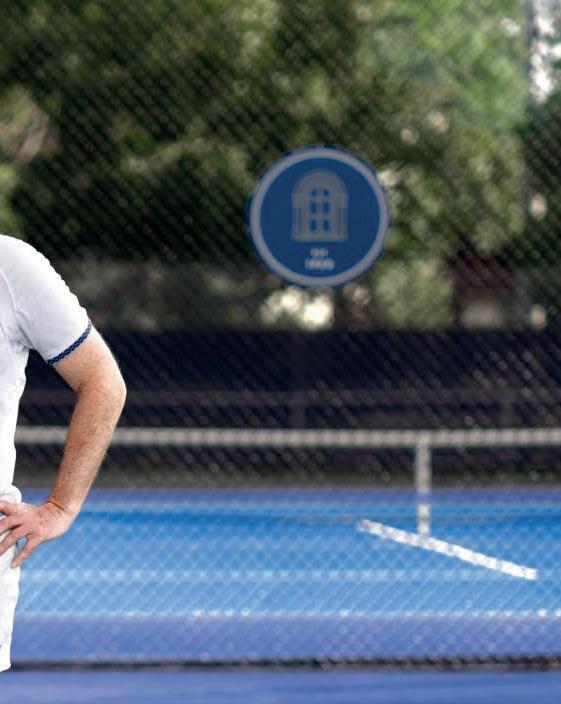
When it comes to getting the best cuts, directors turn to Jack Hutchings, winner of the Editor of the Year award at shots Awards Asia Pacific 2024, who works his magic across spots, shorts and feature-length films at The Editors and ARC Edit.
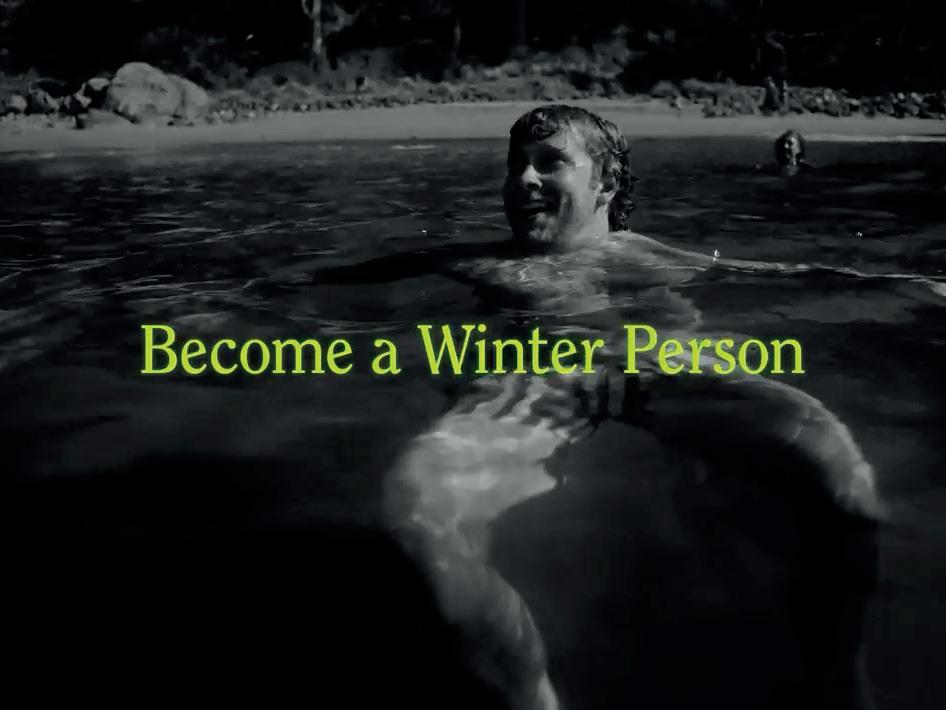
Overthe course of his career Jack Hutchings has won a stack of Cannes gold, silver, bronze and Titanium Lions, plus Clios and D&ADs, as well as a Palm D’Or for short film Cracker Bag in 2003, and work on feature films including 2021’s The Hitman’s Wife’s Bodyguard, starring Ryan Reynolds, Samuel L Jackson, and Selma Hayak.
Hutchings, now in his later 40s, is a wellseasoned pro, whose first reel was on a VHS cassette, drawn from Super-8 shoots, and his first job was a music video for a band called Magic Dirt, directed by Glendyn Ivin at Exit Films, with Greig Fraser behind the camera –both of whom he would work with again.
He’d learnt to load cameras and cut film on linear editing suites while studying a one-year Technical and Further Education film course. With a skater friend, he bought an Avid editing suite and set up a tiny production company on the back of a loan. “We made anything and everything to try and pay it o , and learnt to use the edit suite while doing so” Hutchings says.
His early steps as an editor saw him drawing on favourite films – the likes of Two Lane Blacktop, Lost Highway, Donnie Darko, Chopper, as well as skater shorts –and shadowing editor Martin Connor at Film Victoria while cutting a heist drama starring Guy Pearce. “The film wasn’t superinteresting,” he recalls, “but the process of making it was just so fascinating, and I got to be close to the creating of it, and it was a very generous experience for me.”
Other mentors in the art of finessing the cut included ‘Australian editing royalty’ Alexandre De Franceschi. “He had edit suites in Sydney called Guillotine, and had cut films I’d really loved, and he would talk about his process and work,” recalls Hutchings, “and it was really lovely to connect and talk to someone experienced while working at their facility.”
In 2007, Hutchings set up The Butchery in a Victorian house in west Melbourne, and settled down in what he calls “a quirky knockabout home for almost 13 years”, defining it as a place that helped people to grow into their careers just as they helped
“Make it entertaining. Put the best stu in. End it well. Go for laughs.”
The Butchery grow. There, he grabbed a good deal of the ropes you need to climb up in the industry, and by 2017, had joined forces with The Editors.
These days, with campaigns for big brands like Carlton Draught, Honda, Ikea, and Virgin under his belt, and award-winning work such as World Wildlife Fund’s Space Monkey directed by Steve Rogers, Schweppes Burst by Garth Davis, Sky Murmuration by Steve Ayson, and Boots SummerRush by Garth Davis (now part of the permanent collection of The Museum of Modern Art in New York), he’s well placed to o er a few pointers on the attributes of a great editor.
“It’s about listening, being playful with material, trying to not let one’s ego get in the road,” explains Hutchings. “Being able to talk to anyone, patience, knowing how to tell a story, being quiet when appropriate, being loud when appropriate, timing, knowledge of screen and cinema conventions and when to use them, and equally when to break them.”
These days he’s focused on commercials more than longer form work, but doesn’t
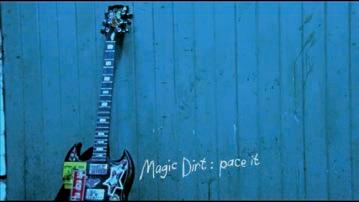
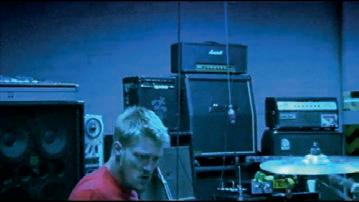
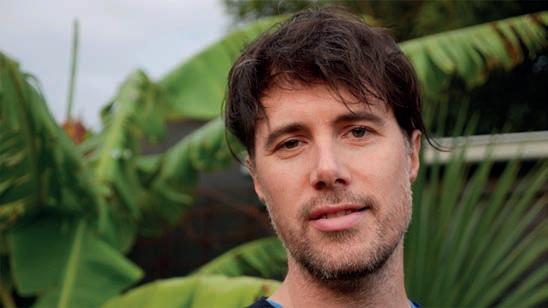
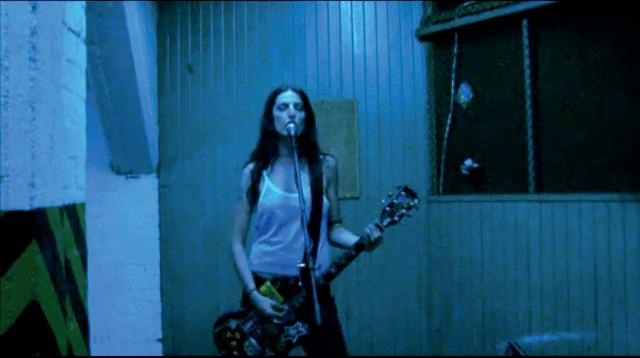
5 Jack Hutchings
see big di erences in the ways he works on di erent editing jobs; whatever the length, it’s all about the quality and to get the quality, there are steps you must take. “Try to get people interested” Hutchings says. “Make it entertaining. Put the best stu in. End it well. Go for laughs, or pathos, keep the tone right. Get the performances right. Fine tune each line. Try every note, however far fetched – it might unlock something. Take ideas from anywhere. Try to be a good person. Take breaks. Go for a walk, talk about it. Investigate every niggle, or fleeting halfthought you have… it’s often very helpful.”
Among the directors he’s worked with regularly over his career, for Hutchings the names Garth Davis, Steve Ayson and Steve Rogers stand out. “All share the same trait, being incredibly trusting, and they’re also very insightful with notes, and are really, really lovely to spend time in an edit suite
with,” he says, adding: “I haven’t had a bad experience with a director for decades.” When it comes to the kind of work he relishes cutting into shape, it’s work with a comedic tone, or straighter tone with an odd, bent angle that attracts him. “I do like trying to make people laugh or chuckle, or get some level of enjoyment with commercials, so if those scripts come up, I’m very keen to work on them.”
The editing process is more or less the same for each job, he says. “Read the scripts, treatment and boards. Feedback if anything is obvious to me that could be helpful. Then, at shoot stage, assemble the job as the material comes in, find some music, sound e ects and atmosphere to build it up. Build up a first cut, explain that it’s rough, and then show it. Then cut together from notes and thoughts. Get happy with it, show the agency or studio, and get them happy with it. Show clients, or
a test audience, and get them happy with it… I don’t think each job is di erent other than the material, the idea and the di erent people involved. And the one good thing about the process of refinement and levels of approval for commercials is that there’s the time and opportunity to fine-tune things or re-invent things completely on occasion... it’s never exactly right first time.”
Winning Best Editor means a lot for Hutchings. Not in terms of his own aggrandisement, but in the companies he works with, whether The Editors or ARC, being generous enough to enter work on his behalf. “It’s work we’ve done together, and been in the trenches for, navigating its intricacies. It’s the nicest part for me, that they have my back, and care about it, and what it means for us all – to be recognised as being among the best of what we all do.” s
As the Festival Director of ADFEST, Kem Suraphongchai is at the heart of Asia Pacific advertising. She talks to Tim Cumming about the past, present and future of the region’s creative ambition.
Tell us about the origins of ADFEST, and how it has grown and developed since the first edition, in 1998?
It all started back in 1994, when my father, Vinit Suraphongchai, was invited to be on a jury at Cannes. He came back with the realisation that the general standard in Asia was not high and we were copying too much of the western culture. He strongly felt there was room for something similar, but adapted to and catered for the Asian region, which is so rich in cultural diversity.
So four years later, ADFEST started with the objective of raising the level of creativity in the region and encouraging local culture.
Since 1998, ADFEST has grown and developed from three Lotus categories and 180 delegates to 22 Lotus categories and over 1,000 delegates in less than 30 years, reflecting ADFEST’s continuous evolution with the changing times.
When did you first begin working with ADFEST and what is your take on how the industry has changed and progressed in the Asia Pacific region since you started?
To be honest, I never planned on joining ADFEST initially. I didn’t want to be known as the ‘nepo kid’ [Suraphongchai is the daughter of ADFEST Founding Chairman, Vinit Suraphongchai]. But as all things in life, I drifted into it and before I knew it, my level of involvement grew into a full-time job somewhere along the way.
Apart from the obvious changes of fragmented media, and the advancement of
technology, the change I’d want to highlight is the emergence of pride in local and cultural heritage. We love seeing this coming through more and more.
Are there particular ADFEST editions that stand out for you – and why?
That would have to be ADFEST 2023, RISE. There was still so much uncertainty amidst the world coming out of Covid. We knew it did not make any financial sense, but if Covid taught us anything, it was that nothing beats human experience and people longed for a sense of hope, of normalcy. And that’s what we set out to do. We needed it, the industry needed it. So we wanted to RISE and play our small part in signalling to the industry that, despite all we have faced, it will be okay. Get up, dust o , and move forward one step at a time. RISE holds a special place for me. I remember the genuine warmth and hugs that year were really special. We all really needed that.
How has the creativity in APAC advertising evolved since ADFEST first started, and what role has the festival helped to play in raising the game across the region?
We love that creativity in the region has developed its own unique voice and very successfully blended global best practices with local insights and storytelling traditions. We’re proud of the fact that we introduced our flagship Lotus category, the Lotus Roots, since 2010 to highlight how we should all be embracing our local, cultural uniqueness. ADFEST has played its part in championing regional creativity, collaboration, and recognition. »
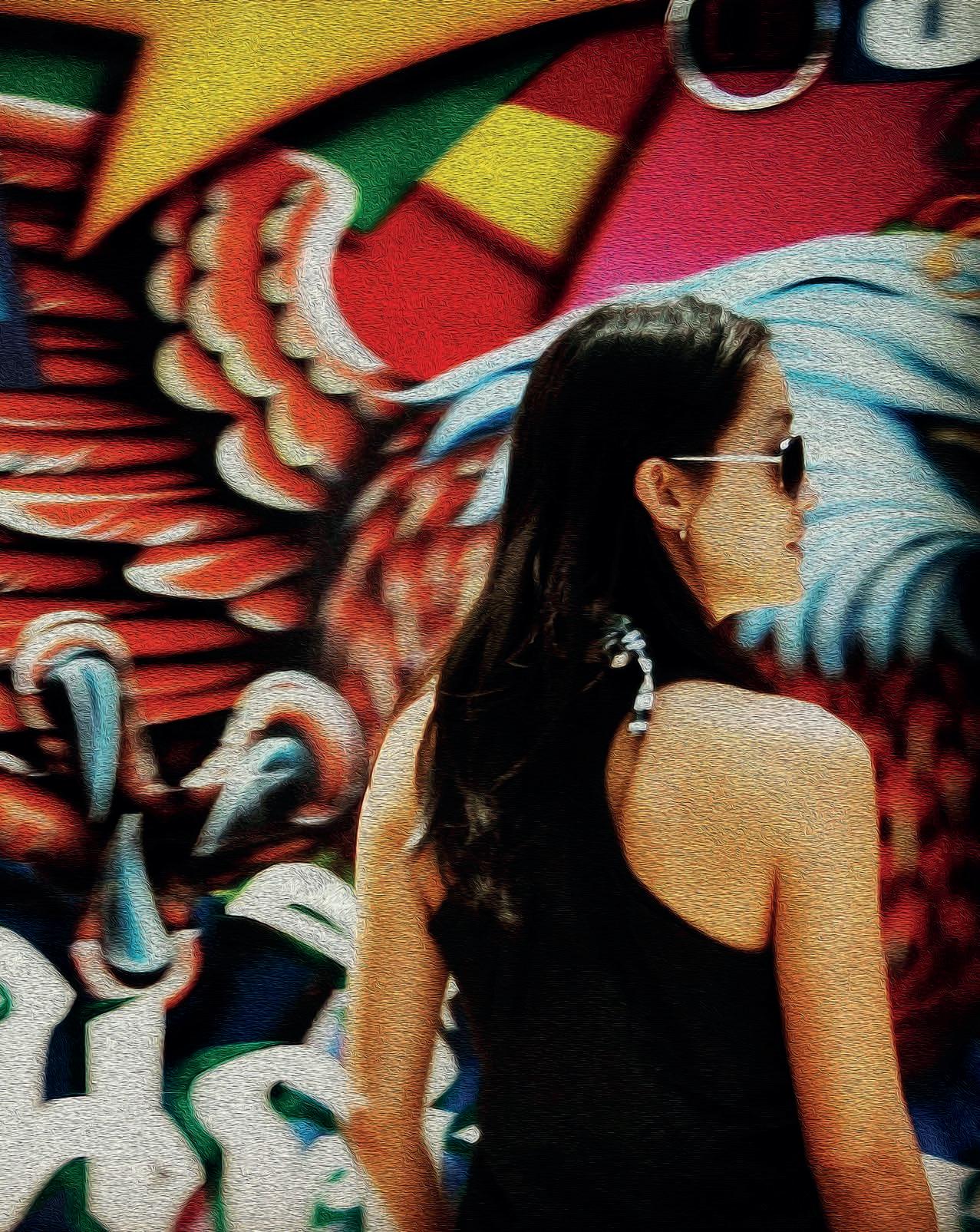
Could you name specific game-changing campaigns and creatives over that time, that illustrate the evolving creativity in the region?
It’s di cult to definitively name the most game-changing campaigns, as “gamechanging” is somewhat subjective, and the bar is raised over time. ADFEST has showcased some of the region’s most innovative and creative campaigns so I’ll share some that come to mind.
The Sound of Honda by Dentsu, which recreated the sound of Ayrton Senna’s legendary lap, was definitely groundbreaking for its time for its use of data and technology to create such an emotional project.
“include a wide array of disciplines. As ‘advertising’ becomes more ‘branded marketing communications,’ we are seeing more cross collaboration across other industries such as gaming, sports, music etc. We would like to extend to include these industries to enrich the festival with diverse perspectives and creative approaches.
You emphasised the crucial role of human connection, experience, and emotions in your closing speech at 2024 ADFEST – how do you see those three qualities playing out across the Asia Pacific region and its creative industries?
it. And not just keeping up with the tech, but to the people using it. Consumers are so fragmented, with an exceptionally short attention span. Economic, geopolitical, social and ethical considerations will also add to the uncertainty.
Overcoming these challenges will require the right mix of strategic foresight, adaptability, and creativity… and a splash of luck.
How do you see the Asia Pacific industry evolving over the next few years?
CJ Worx’s The Unusual Football Field for AP Thailand wasn’t only a creative solution, but one that also improved the quality of life for
one that also improved the quality of life for
Nothing beats the human connection, and I stand by that. I think Malcolm Poynton summed it up best in his keynote at ADFEST; It’s about how things make us feel that is most important. And for me personally, I know that’s the case. It’s the things that made me feel that I recall the best. It’s not how tech-
I think the sense of social and cultural identity will become even stronger. And while technology will be utilised more, I believe we will see more campaigns that set out to be meaningful and impact positive change. What a brand stands for will be as important as what a brand produces. What do you think are the major engines of change in the work across the region –
If Covid taught us anything, it was that nothing beats
the local community.
And one of my favorite Lotus Roots campaign was The Immunity Charm by McCann Worldgroup India for the Ministry of Public Health, Afghanistan. It was such a beautiful blend of cultural traditions, and addressed the vital issue of vaccinations in such a simple and e ective way.
With the increase in the frequency and severity of natural disasters due to climate change, the game-changing One House to Save Many for Suncorp, by Leo Burnett Sydney, has endless potential to literally change the game to save countless lives.
How has ADFEST itself evolved and changed over the years, and what future changes or innovations would you like to make?
ADFEST continues to evolve with the changing media landscape to encompass the full range of creative communications. Our program o ering has also expanded to
savvy it was, or how groundbreaking, but how it made me feel at the time. Those are the things that stick with you. I don’t think that’s a trait unique to APAC though, I believe it’s just a human trait. We’re social creatures. We strive on interactions, on support from - and of - each other. So the combination of the human connection, the experience, and how we feel... nothing beats that.
What new creative trends do you see coming up at this year’s festival?
I think we can expect to see a continuation of the use of technology, an increase in integration of brands with sub-cultures in gaming, sports, or music, and campaigns that further push for positive and sustainable social, economic and environmental changes.
What are the challenges that the industry faces as we move through 2025?
The most obvious challenge would be the evolving technology, and keeping pace with
culturally, technologically, and creatively?
I think the main driver for change going forward will be a bottom-up change. It is no longer one-way tra c, with marketers talking to consumers; it is marketers responding and reacting to consumers. What matters to them, where they are and how they consume will determine the change that is to come. s


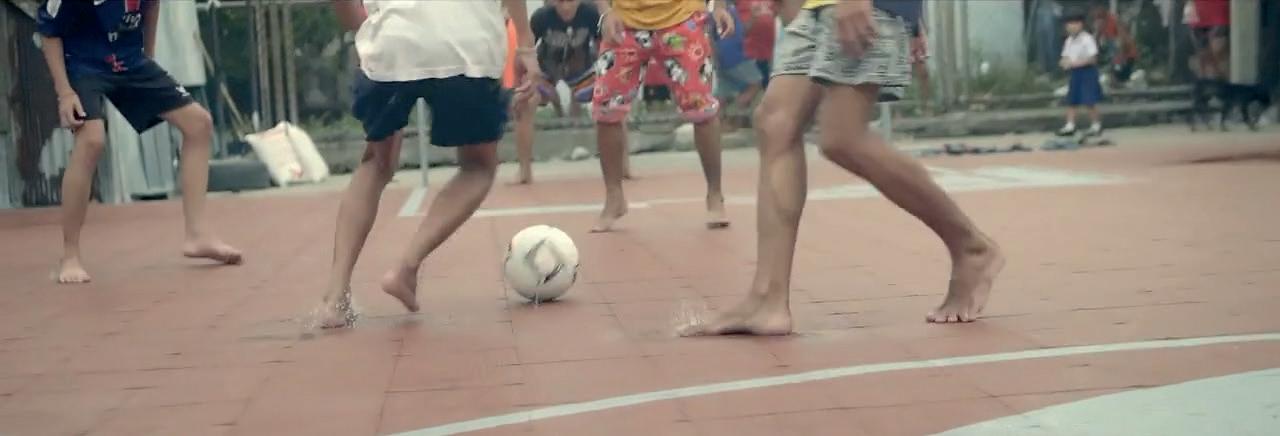
Nicoletta Rousianos knows how to get things started, and how to finish them, as EP and Managing Partner at industry bighitter The Editors
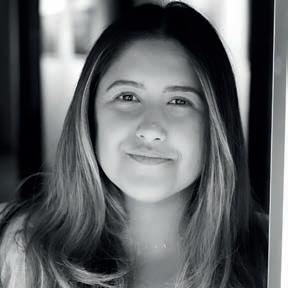
Executive Producer and Managing Partner at The Editors, which handles some of Australia’s biggest movies, series and spots, Nicoletta Rousianos started out as an assistant editor at Postmodern Sydney and has been with The Editors since 2010. This year The Editors won Post/VFX and Editing Company of the Year at the shots APAC Awards 2024 for its work on brand campaigns ranging from Telstra and Tourism Tasmania to Forty Winks and Gatorade. Here she talks about her journey to becoming Managing Partner, her favourite work from The Editors’ communal roster of talents, and her take on the creative health of Australia and the wider APAC region.
Where did you cut your teeth and learn the ropes as a producer?
Fresh out of university, I landed a job at Postmodern Sydney, where I was exposed to the ins and outs of post production. After my time there, I moved on to assist editor Danny Tait in setting up The Tait Gallery and in 2010, I joined the team at The Editors; I’ve always been passionate about the art of editing, and The Editors has been the perfect home to nurture that love. In 2016, I was proud to become a partner.
Who were your mentors and inspirations along the way?
My business partner, Bernard Garry, and the original Executive Producer of The Editors, Josephine MacKenzie, have been pivotal mentors, shaping not just my professional journey but also the person I am today. You’re also always inspired by the broader creative community – the directors, producers, and editors who understand the power of storytelling and the artistry behind it.
What was the impetus behind setting up The Editors, and how has it developed and grown?
The Editors was originally established by four of Australia’s most respected editors, with a clear vision to create a dedicated home where editors could master their craft and focus on storytelling at the highest level. This foundation was built on the belief that editors deserved a space where creativity could thrive.
Over the past decade, The Editors has grown beyond all expectations. We’ve expanded, opening a space in Melbourne, and diversified our services in our VFX arm and launched a long-form division. Along the way, we’ve been privileged to represent some of the industry’s finest editors, who continually set the standard.
How does being a collective impact how The Editors works and the work it makes?
Being a collective deeply shapes how The Editors functions and the work we produce. Our collaborative structure fosters a strong sense of camaraderie, allowing us to draw on a diverse pool of talent and resources. This teamwork enables us to consistently deliver high-quality creative work, even in the face of tight schedules and budgets. Additionally, the collective environment provides an ideal setting for mentoring and training the next generation of editors, ensuring a continuous flow of knowledge and growth within our industry.
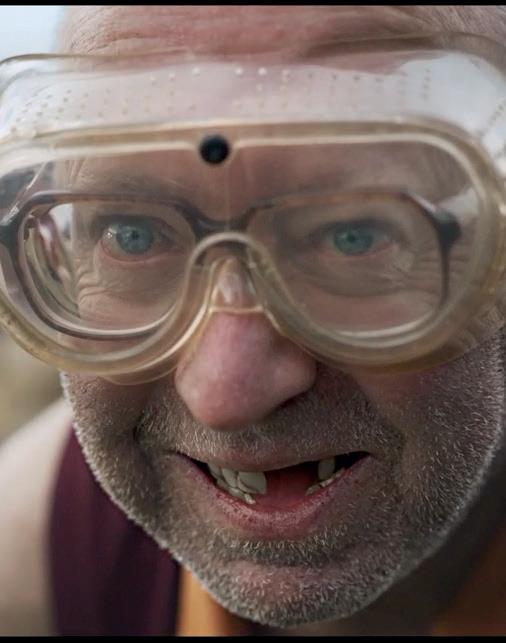
And in turn, how has it impacted the wider industry, and the art of editing and post?
We see a great response from our clients and the industry when the environment is centered solely on the craft. By maintaining a space dedicated to excellence in editing and post production, we’ve not only elevated the quality of our work but also inspired higher standards across the industry.
How would you grade the editing and post/ VFX talent coming up in Australia and the APAC region?
The emerging talent is impressive, standing on par with some of the best globally. This growth is supported by a strong, competitive talent base that continues to demonstrate relevance and impact on the international stage.
What would be your stand-out pieces of work from The Editors in the past year?
We truly enjoyed collaborating with Exit’s Mark Malloy and The Monkeys on Telstra’s This is Footy Country, edited by Jack Hutchings and Grace O’Connell. The campaign has been a stand-out in the industry, earning significant recognition on the award circuit both locally and internationally – a success that’s always incredibly rewarding!
Another significant milestone for us was the establishment of our long-form arm, allowing us to embrace more ambitious, narrativedriven projects. Alexandre de Franceschi and Lily Davis collaborated with Justin Kurzel and Curio Pictures on the highly anticipated, yet-to-be-released series The Narrow Road to the Deep North. Additionally, editor Leila Gaabi’s exceptional work on Bonnie Moir’s Exposure series has not only showcased our
growth in long-form storytelling but has also earned her a well-deserved AACTA nomination for editing.
What is the impact of The Editors winning shots APAC Post/VFX and Editing Company of the Year?
It’s a significant achievement for us at The Editors, an incredible recognition for the team’s hard work and creativity, and it really cements our reputation as one of the leading post production and VFX companies in the region. The honour is a real morale booster for everyone and puts us in a stronger position to attract new opportunities, strengthen our relationships with existing clients and be more appealing to top talent in the industry. It gives us global visibility.
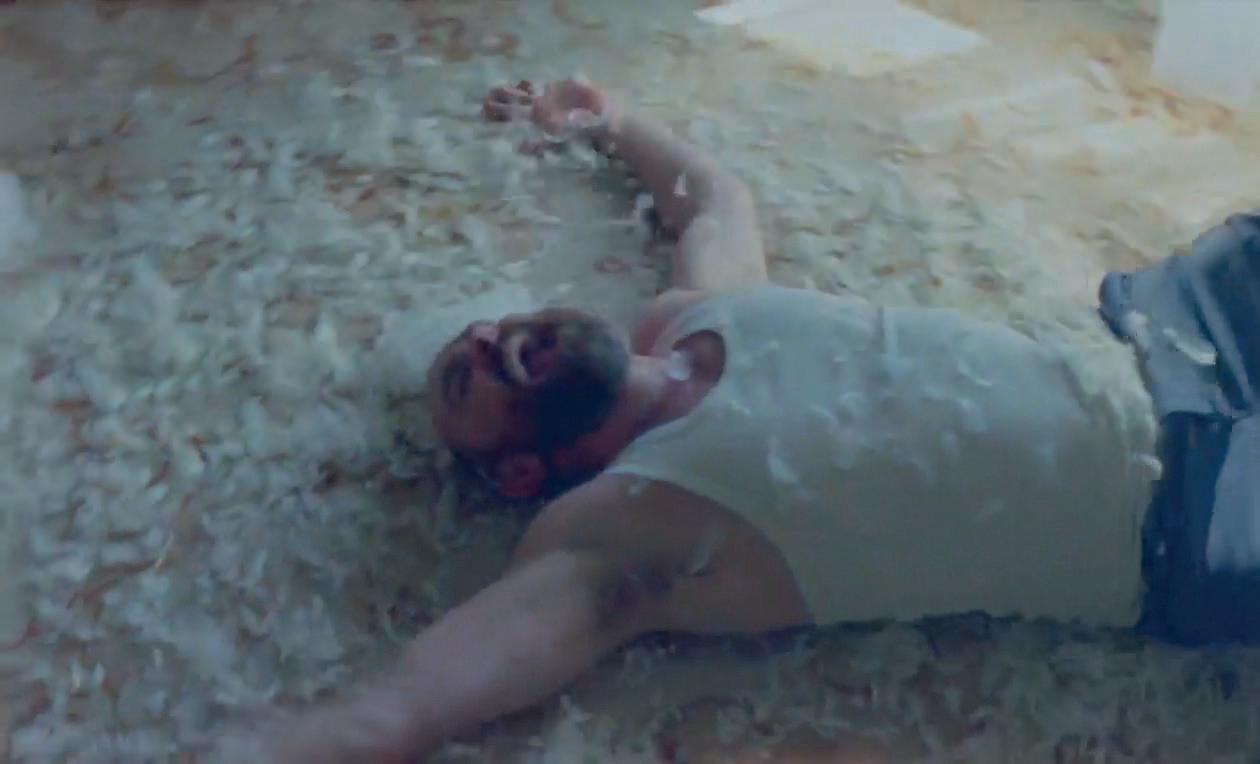
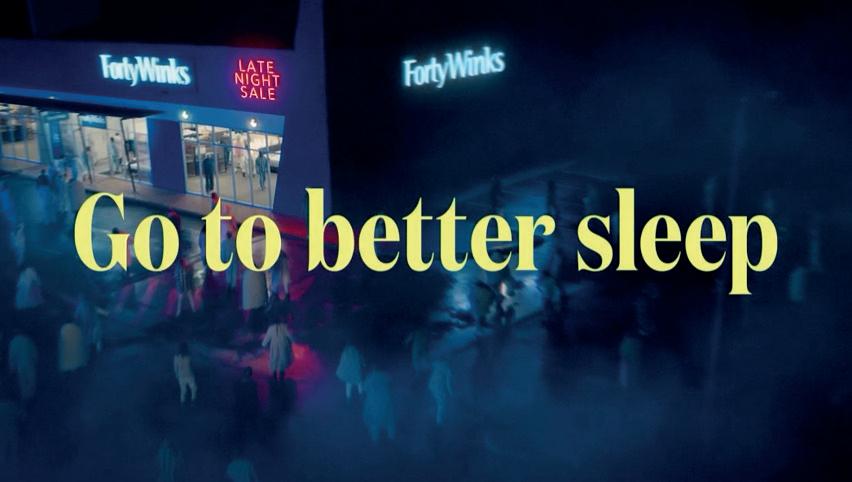
2/3/4 Forty Winks Go to Better Sleep
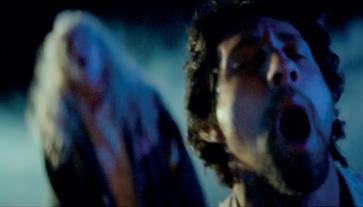
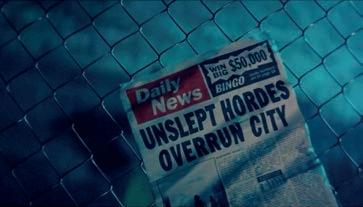
What are the latest innovations/ revolutions in terms of editing, post and VFX that are entering the industry?
The most significant innovations in recent years have been the rise of remote editing platforms and the evolution of established software, with tools like DaVinci Resolve striving to be all-encompassing post tools for o ine editing, colour grading, and online work at an elite commercial level. As a result, our assistants, cutters, colourists and VFX artists are becoming increasingly versatile, with many mastering DaVinci Resolve to streamline workflows and boost e ciency. AI has also played a transformative role, particularly in the early stages of production, by automating tasks such as generating guide VOs and organising footage. When used e ectively, AI has proven invaluable in
supporting tight-turnaround projects, helping to lighten the load and enhance productivity across the entire post production process.
What impact is AI having on how The Editors works?
AI technology is making significant strides in the editing, post production and VFX landscape, and it’s exciting to see suppliers adopting innovative AI tools that assist these processes. We are keenly focused on exploring how AI can be integrated into universal production workflows, streamlining the journey from set to the edit room.
How do you feel the APAC region’s creative output has developed this year?
Its creative output remains strong, with bold
ideas driving impressive results. However, tight budgets continue to challenge every stage of the process, requiring greater resourcefulness to maintain quality. Despite these constraints, the region’s talent consistently delivers impactful work.
What do you think will be the challenges and opportunities of the coming year?
Delivering high-quality work while staying commercially viable, especially as budgets remain tight. We will continue to use e ciencies gained over time and embrace new technologies to maintain creativity and competitiveness without compromising quality. s
At the very start of this magazine
shots-creative
Editorial material for consideration to be submitted to shots@extremereach.com
Many thanks to those companies that submit material for consideration on shots.net. We welcome entries from across the globe and if you feel that your company has produced anything that would complement the shots site please let us know.
© shots
All rights reserved. No part of this publication may be reproduced, copied or transmitted, either by conventional means or electronically, without written permission of the publisher.
Danny and Jamie talked about change, and how the word ‘but’ allows for unending possibilities. Well, shots will always stand for – and squarely behind – creative excellence, but… we’re also changing.
From now on, our suite of products will all come under the shots banner, with the words across these pages, and those created for our online publication, coming under the new (but also old) name of shots
Magazine
Our other products, each of which helps those working in advertising navigate the sometimes-uncertain creative seas, will also be changing. While their core o erings and functions remain the same, they will all sit under the shots brand, with their individual names reflecting the unity of the shots suite of products.
Source becomes shotsVault
Slate becomes shots Reels
Treatments, our new application allowing users to seamlessly create brilliant treatments, becomes – you guessed it – shotsTreatments
The shots Awards and shots Out of the Box event remains part of shots Magazine’s output, and each of the products retains its devotion to making your working life smoother and more e cient.
Over the coming weeks you’ll notice that the product branding will alter, as will the site design, but rest assured that our commitment to delivering the excellence you’ve come to expect from each of the shots brands remains. And, what’s more, as a shots customer, we will soon be implementing single sign on capabilities which will enable our members to have seamless navigation between the di erent shots products. So, things change, but things stay the same…
shots sta
Co-Editor
Danny Edwards danny.edwards@extremereach.com
Co-Editor
Jamie Madge jmadge@extremereach.com
Features Editor
Carol Cooper carol.cooper@extremereach.com
News Editor
Daniel Huntley daniel.huntley@extremereach.com
News Reporter
Amy Hey amy.hey@extremereach.com
Contributing Editor
Tim Cumming tim.cumming@talk21.com
Marketing & Events
Louise Lenzi louise.lenzi@extremereach.com
Nafisa Ahmed nafisa.ahmed@extremereach.com
Sara Brady sara.brady@extremereach.com
Renée Forbes renee.forbes@extremereach.com
Production
Neil Sinclair neil.sinclair@extremereach.com
EMEA sales
Sofia Ilie sofia.ilie@extremereach.com
Franck Chardon franck.chardon@extremereach.com
North and South America sales
Andrew Sweeney andrew.sweeney@extremereach.com
Nicki Masterson nmasterson@extremereach.com
Graciela Blackburn graciela.blackburn@extremereach.com
APAC sales
Lee Michael lmichael@extremereach.com
Global Sales Director Simon Furse simon.furse@extremereach.com
Managing Director James Straker james.straker@extremereach.com
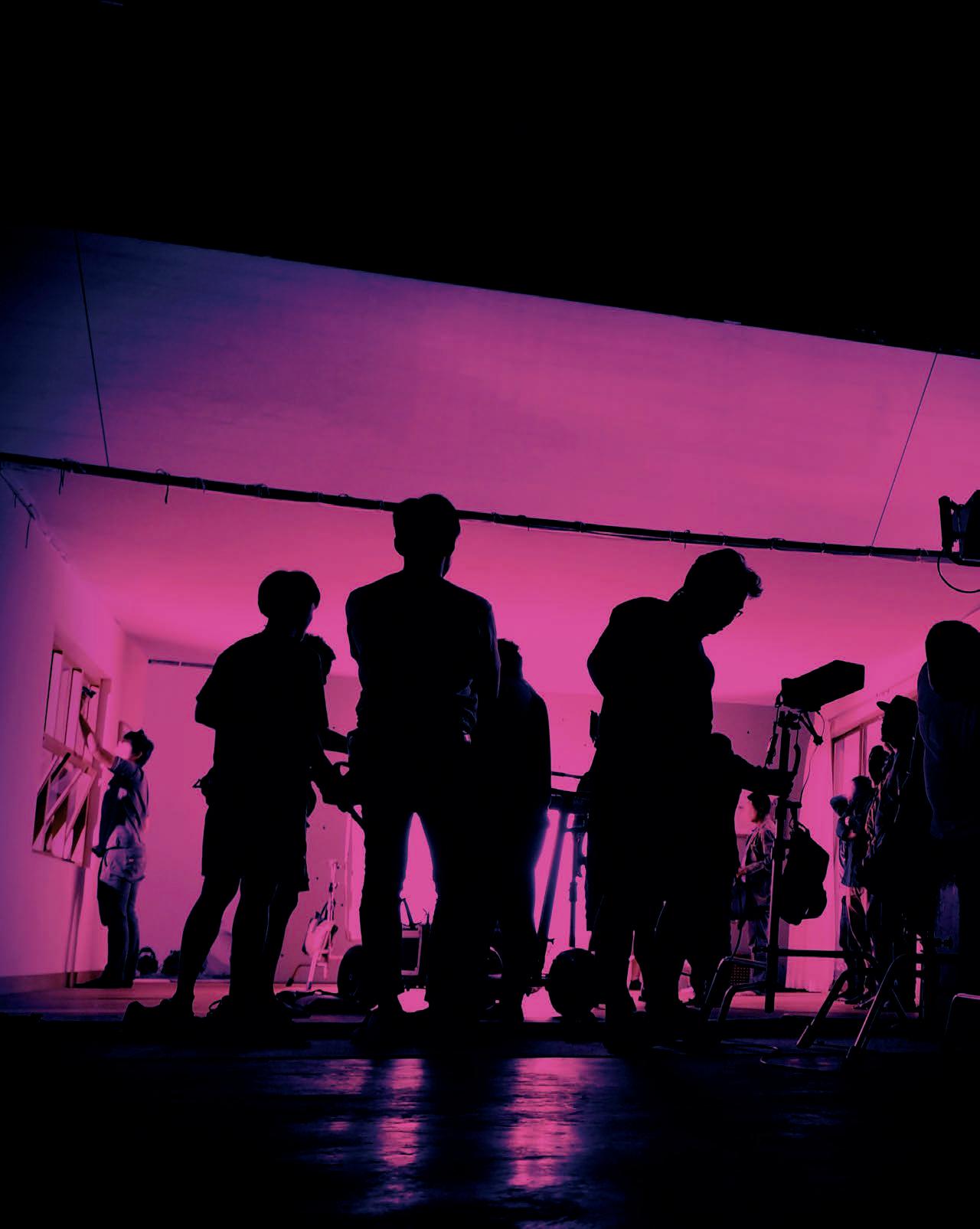
The World Producers Summit is an open forum for all ADFEST delegates interested in the future of production. Share intelligence, discuss new opportunities and spotlight the challenges around production in the Asia Pacific region.
THURSDAY 20th MARCH
13.00 - 15.30
ROOM PATTAYA 3, MEZZANINE FLOOR, PEACH
Register to attend at workshop@adfest.com
Enter now at shotsawards.com/asiapacific or scan the QR code